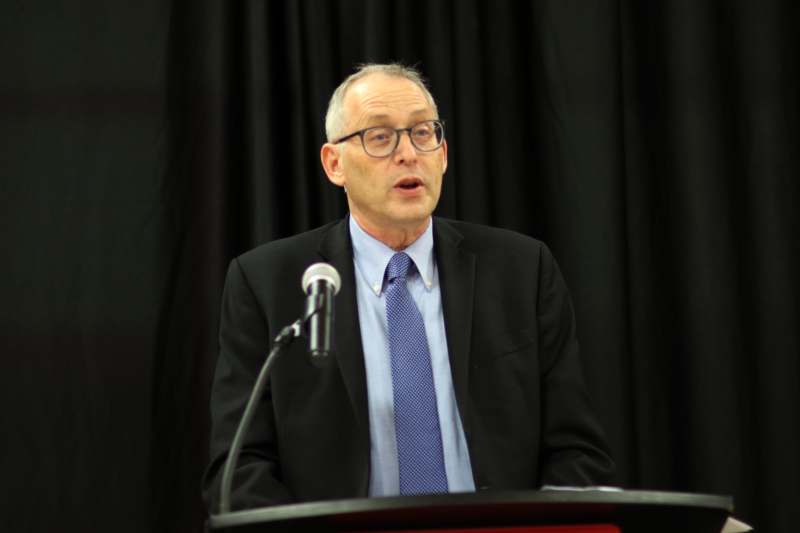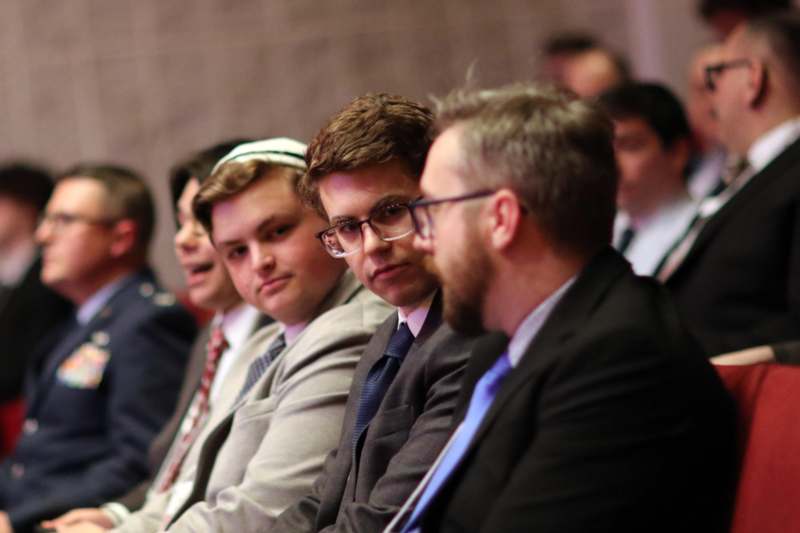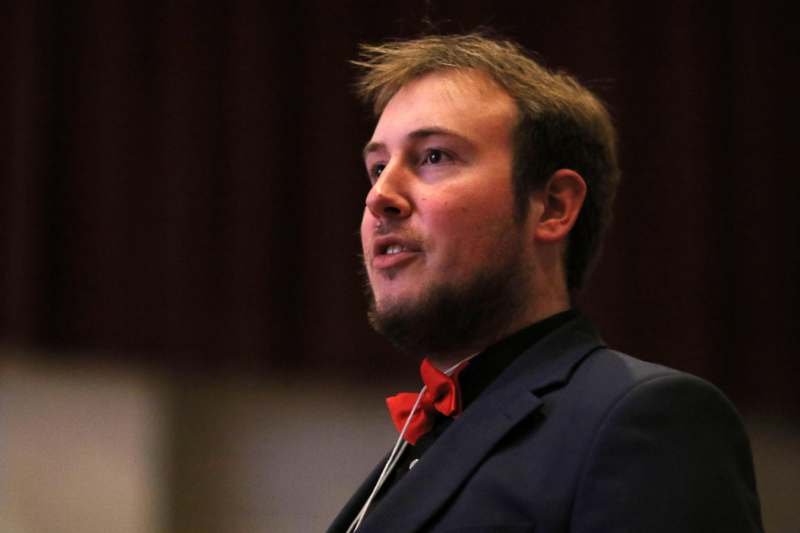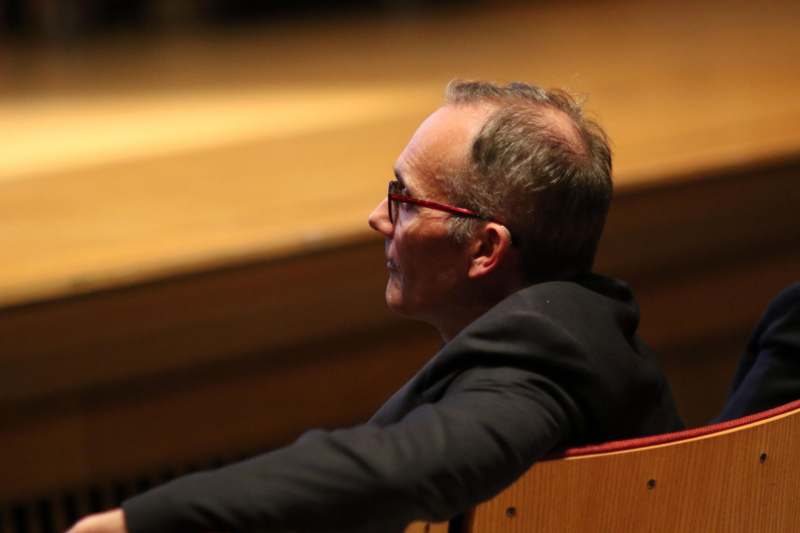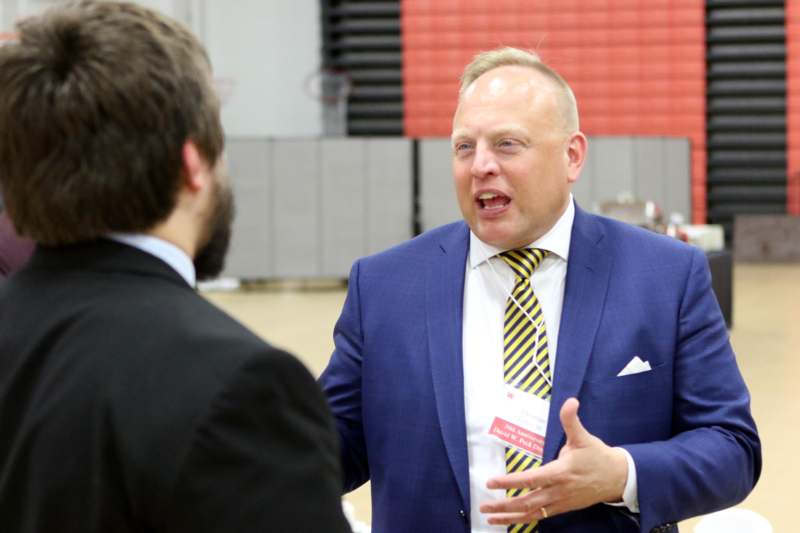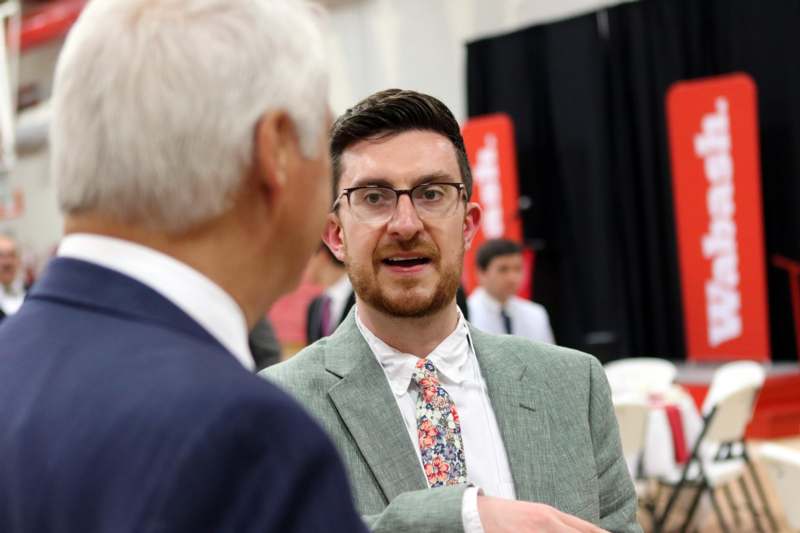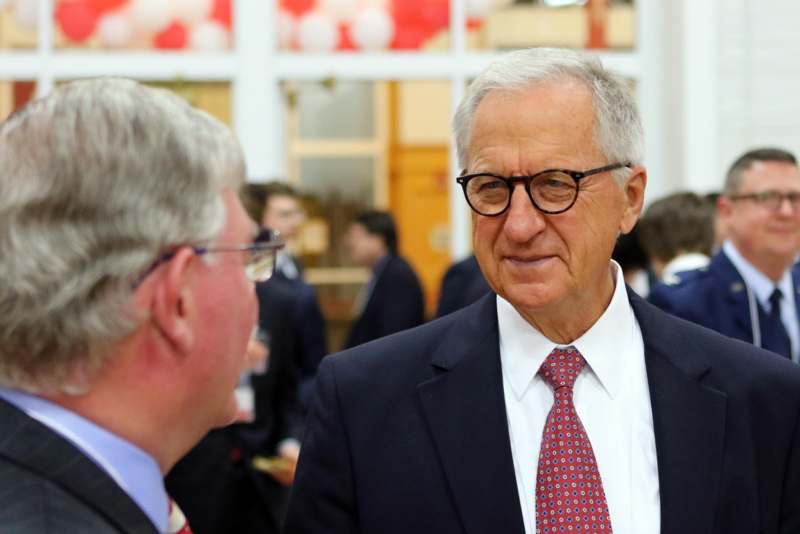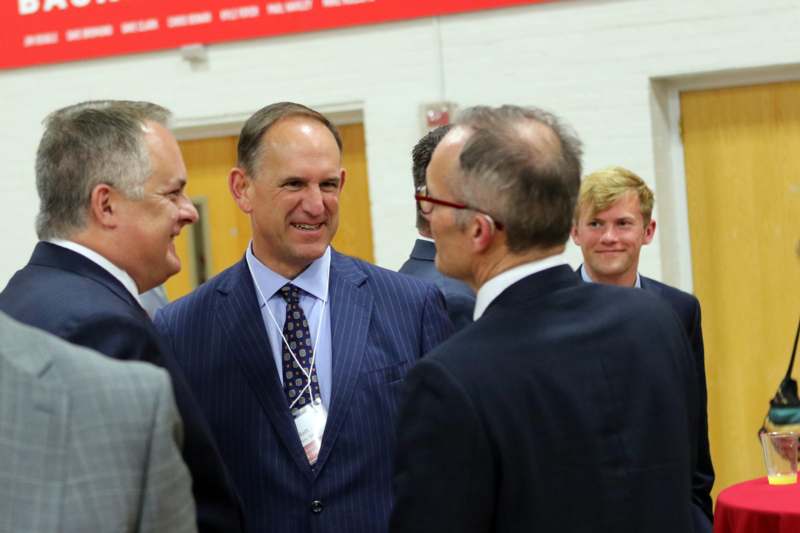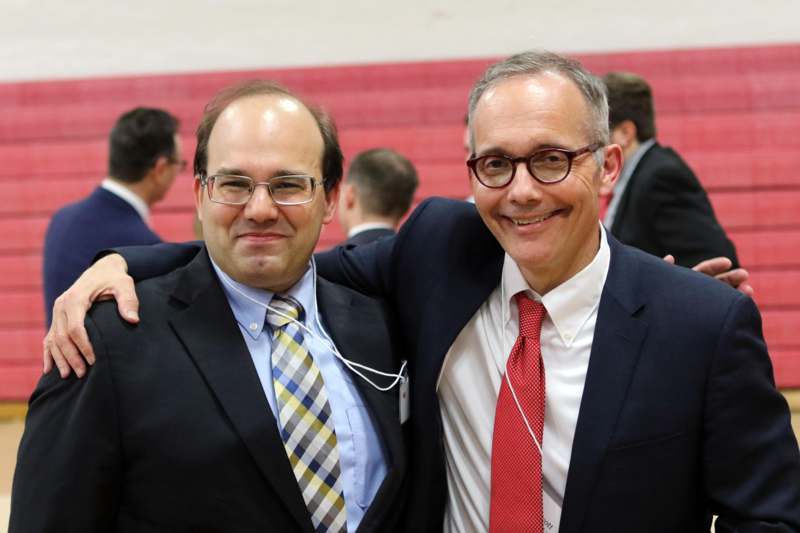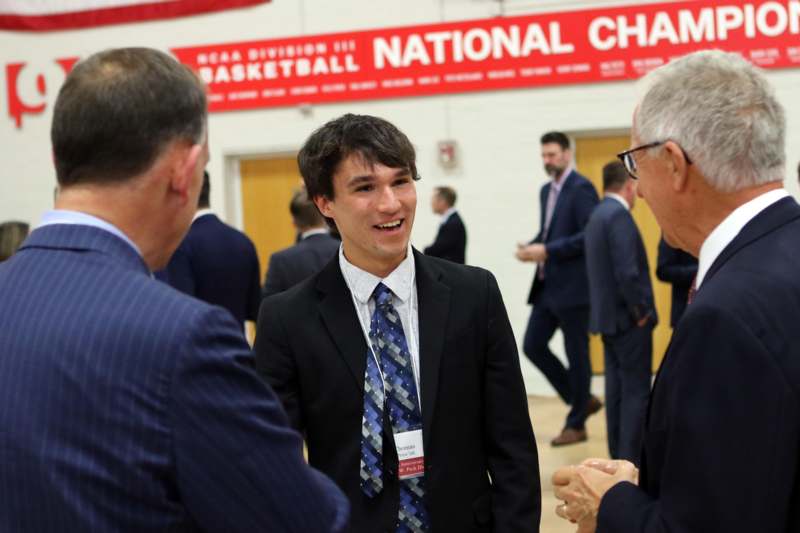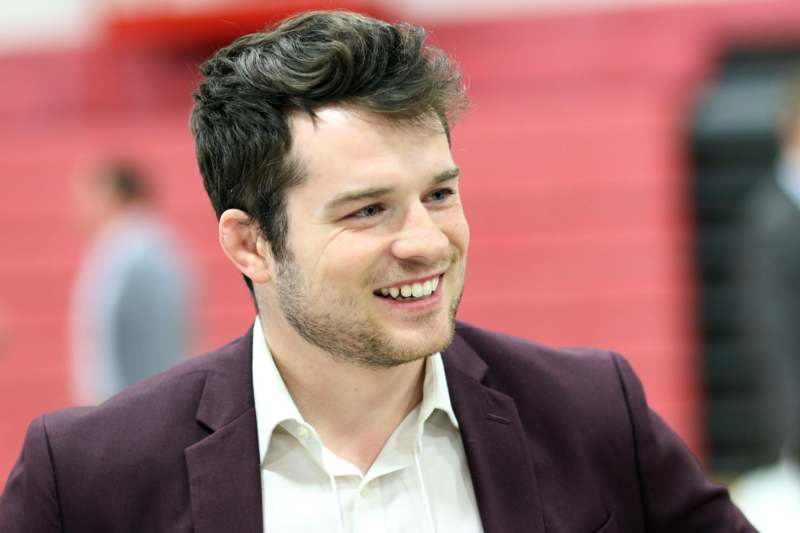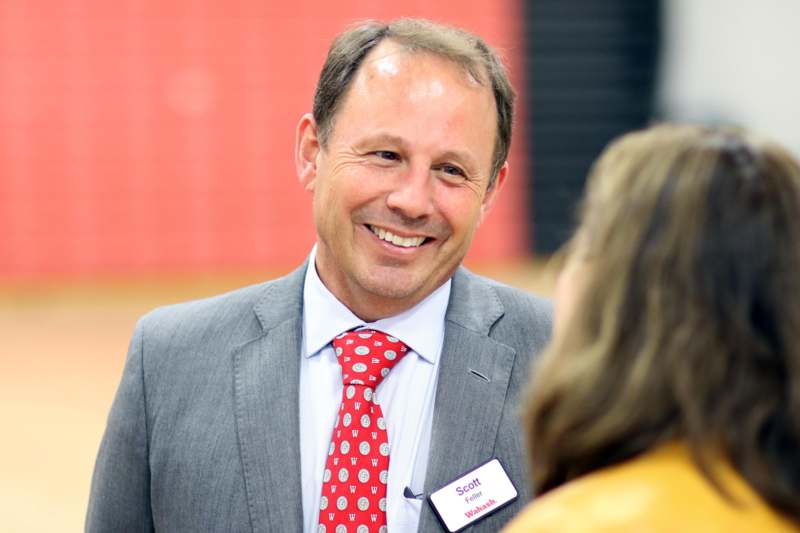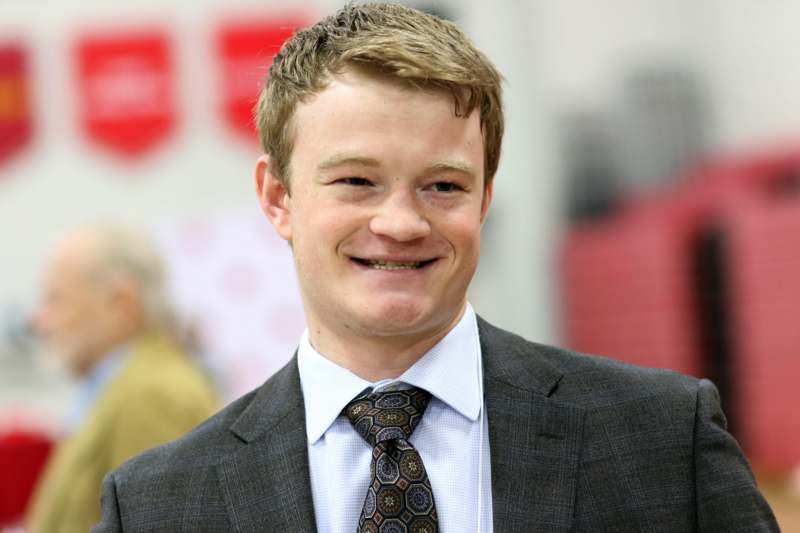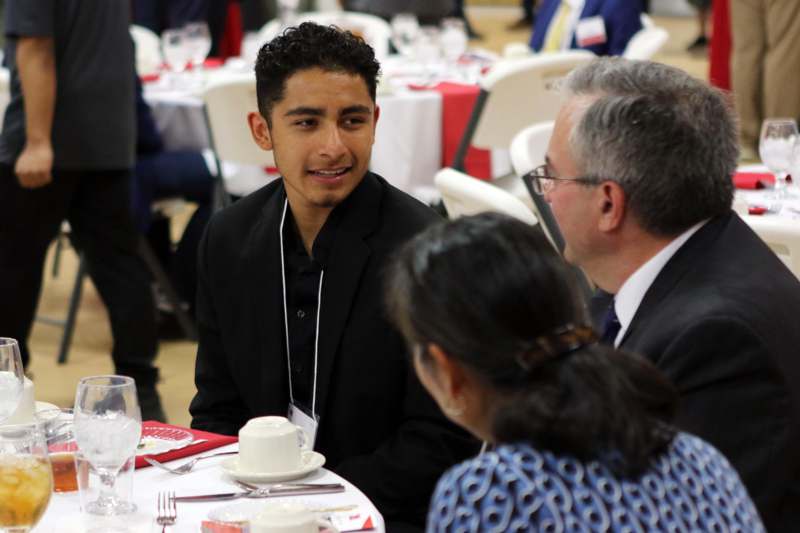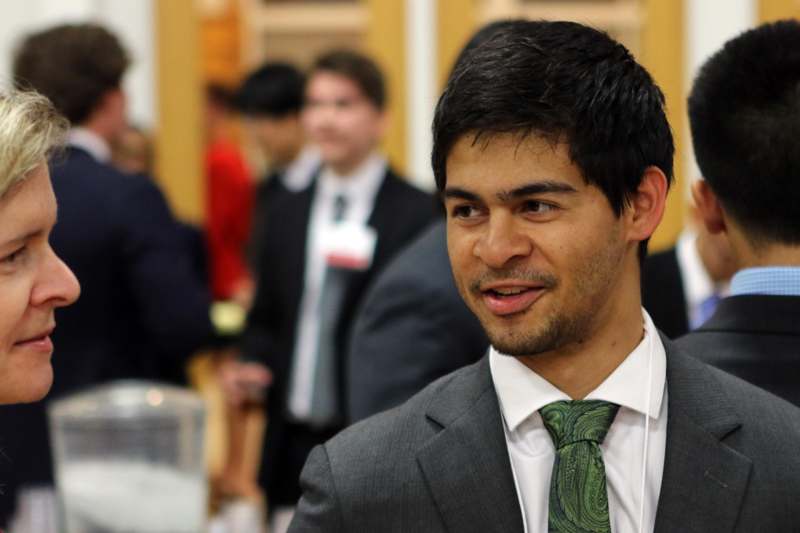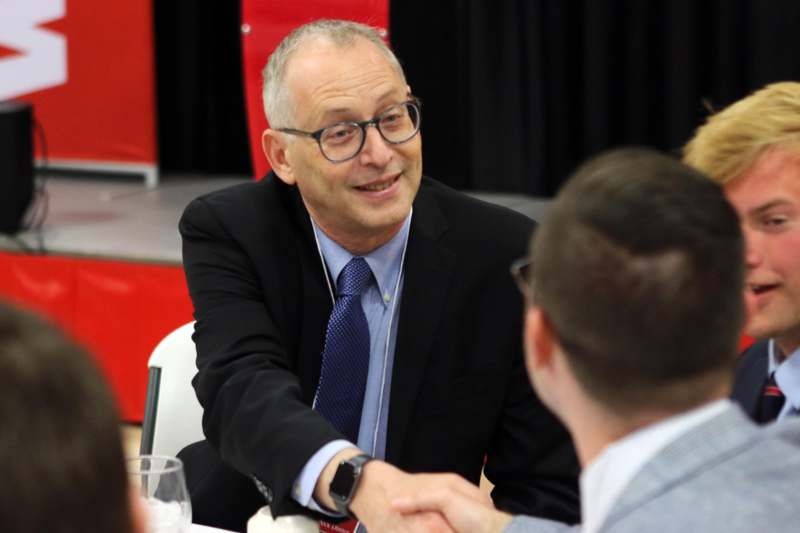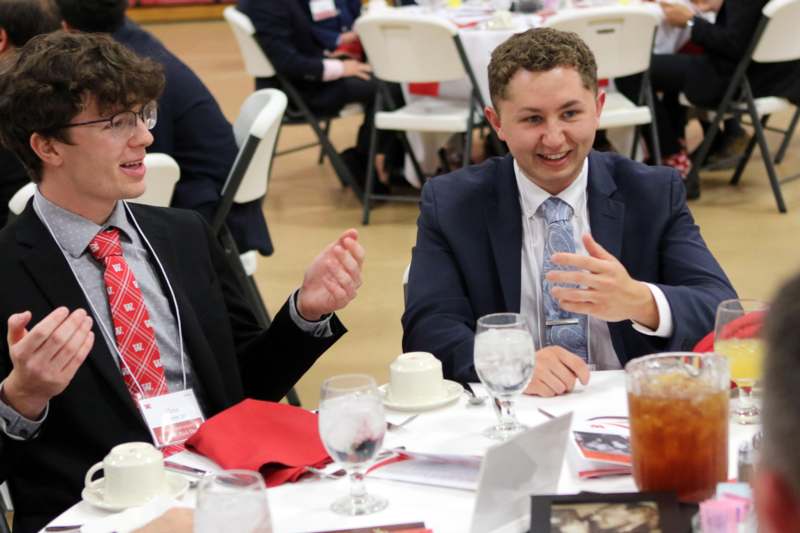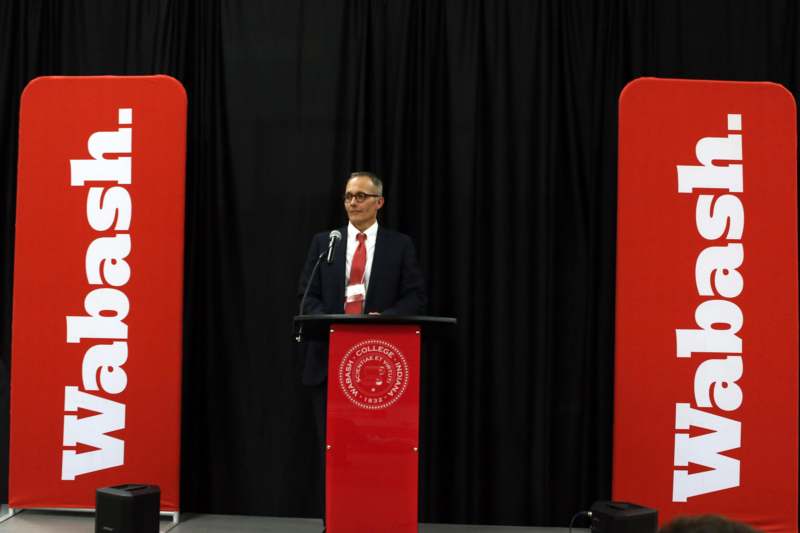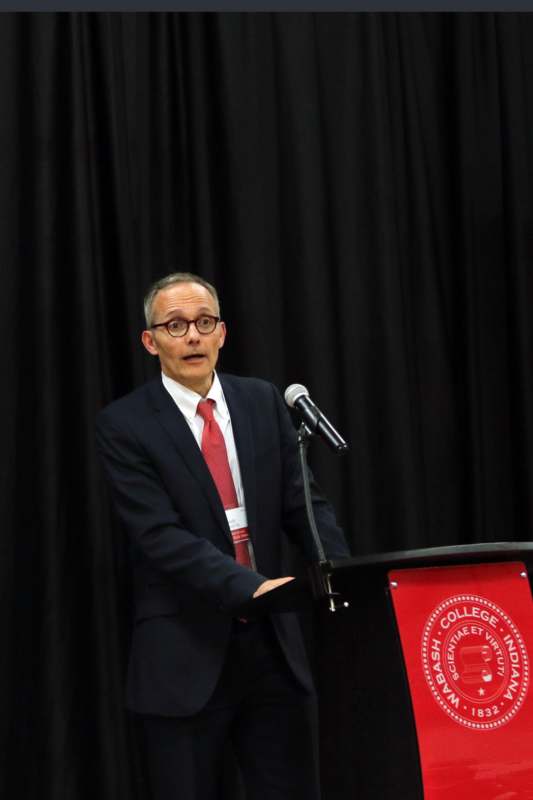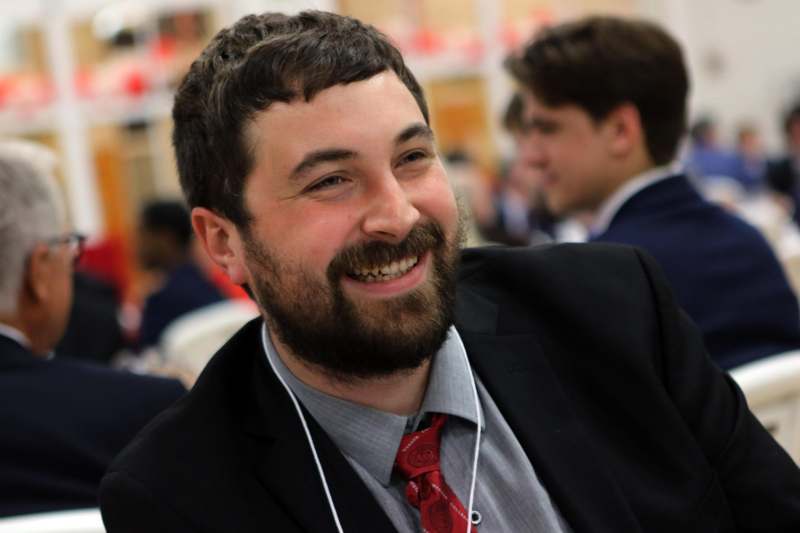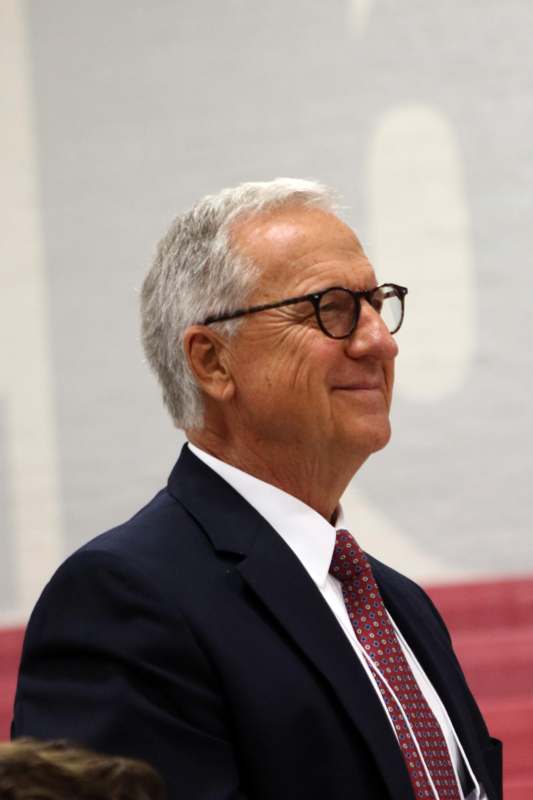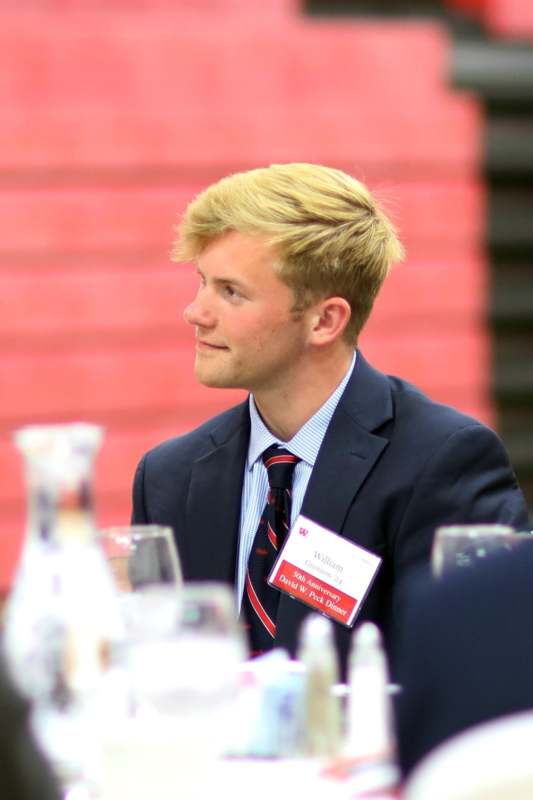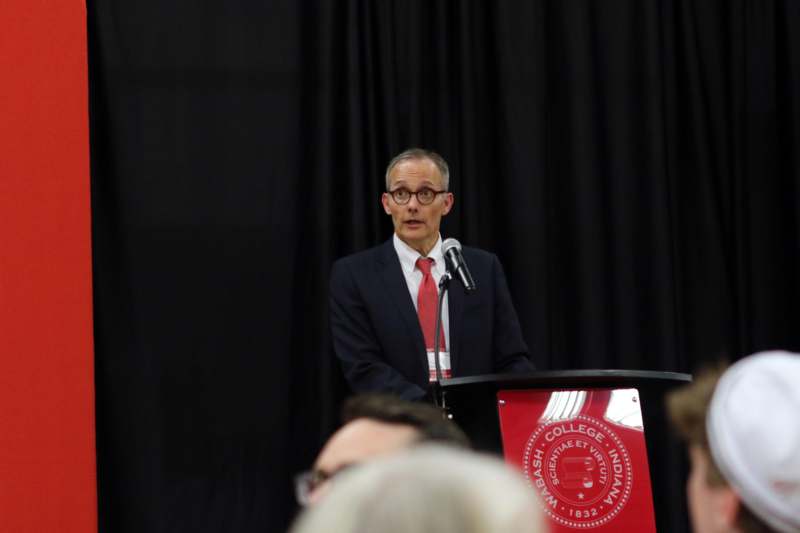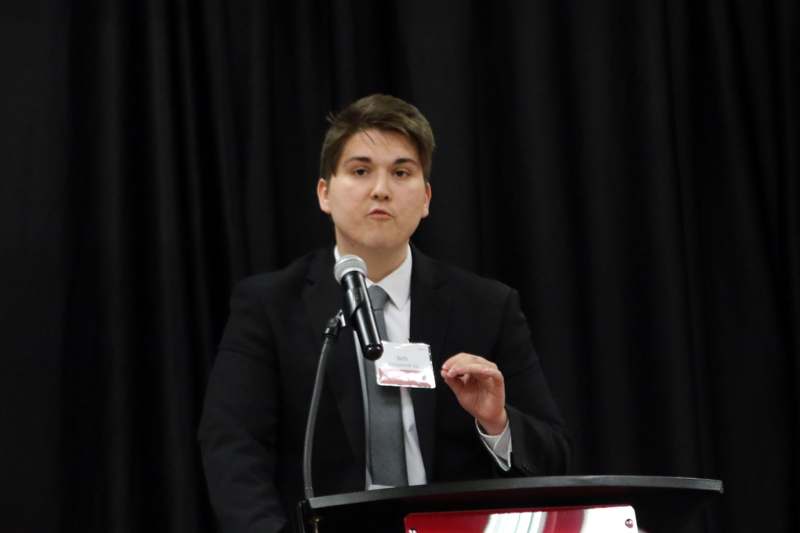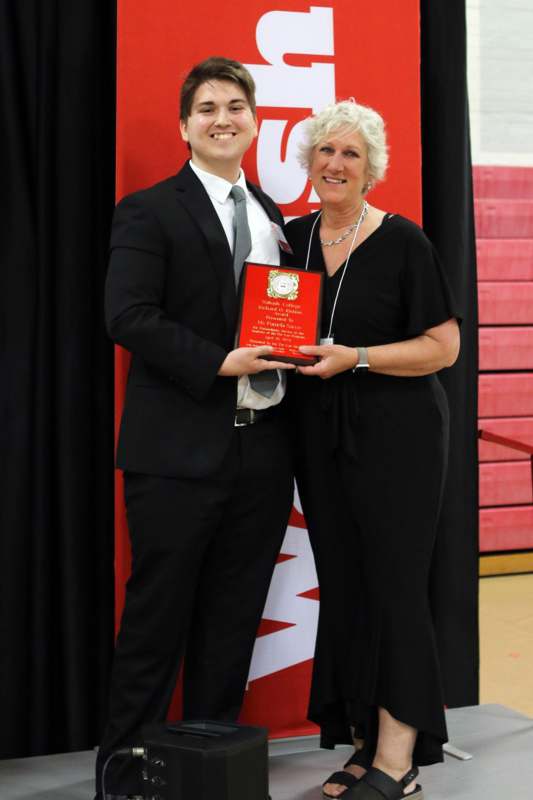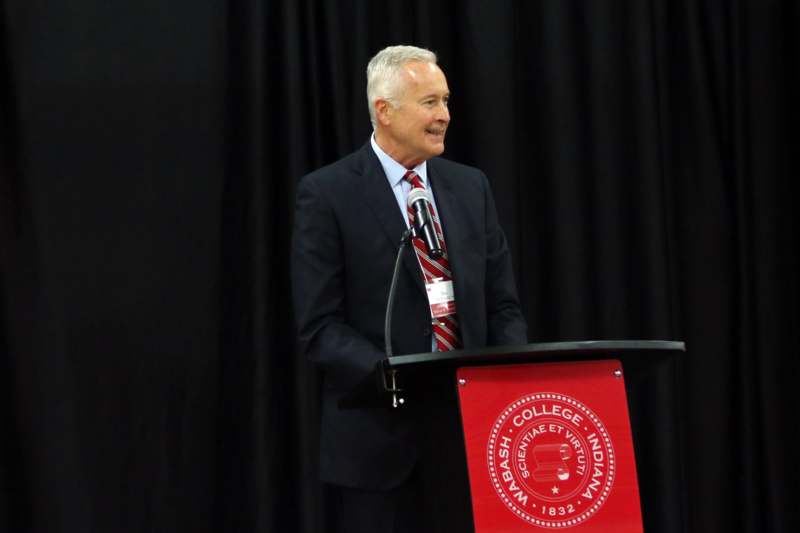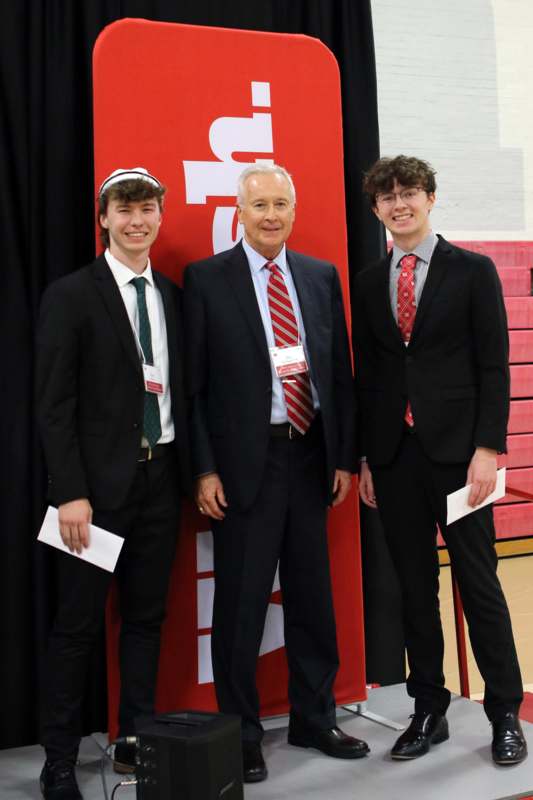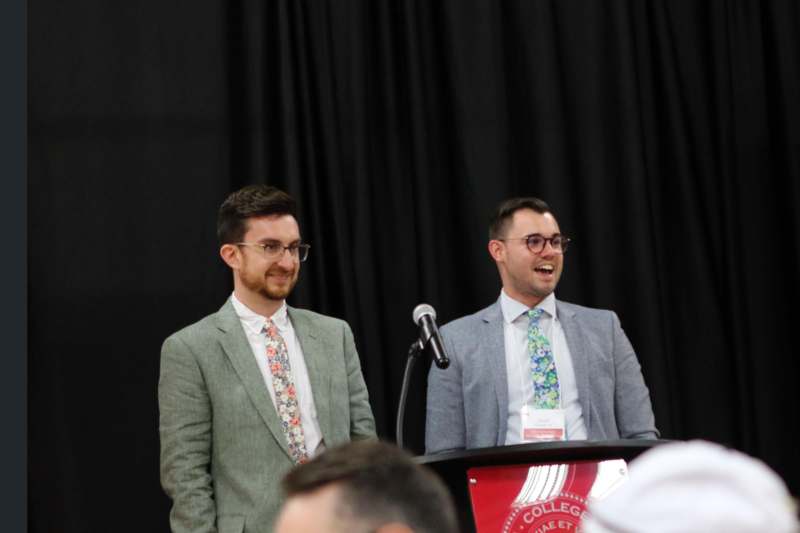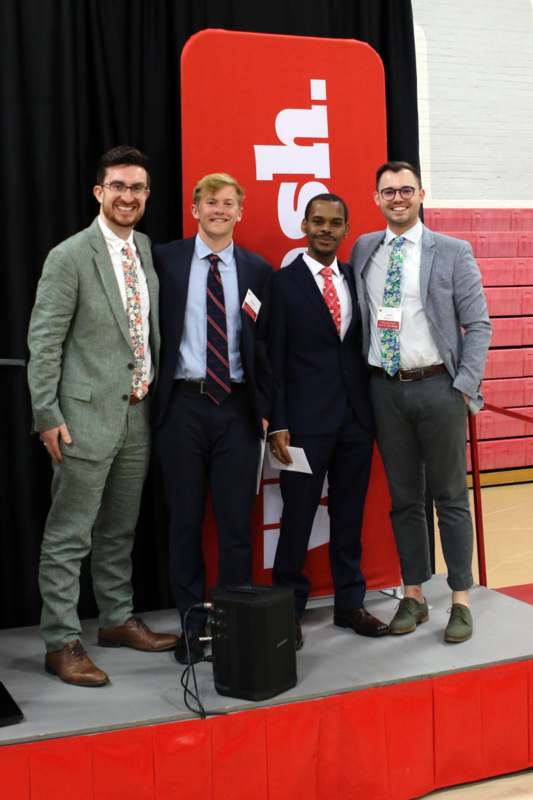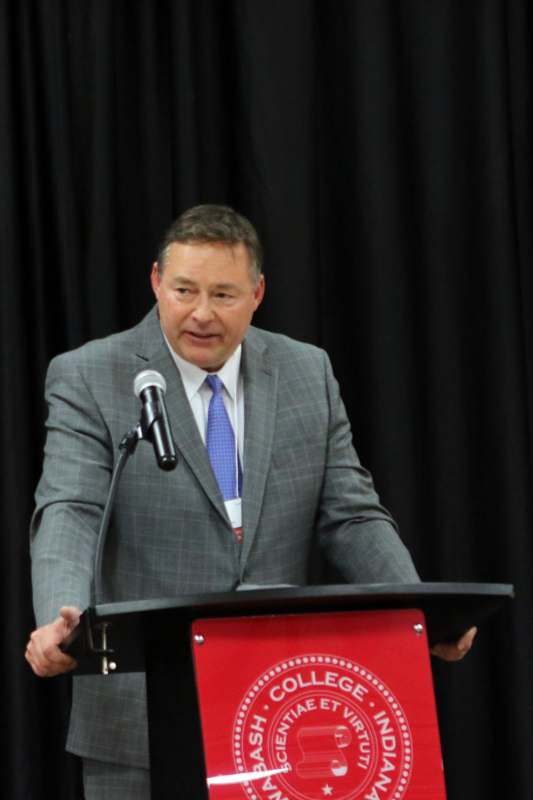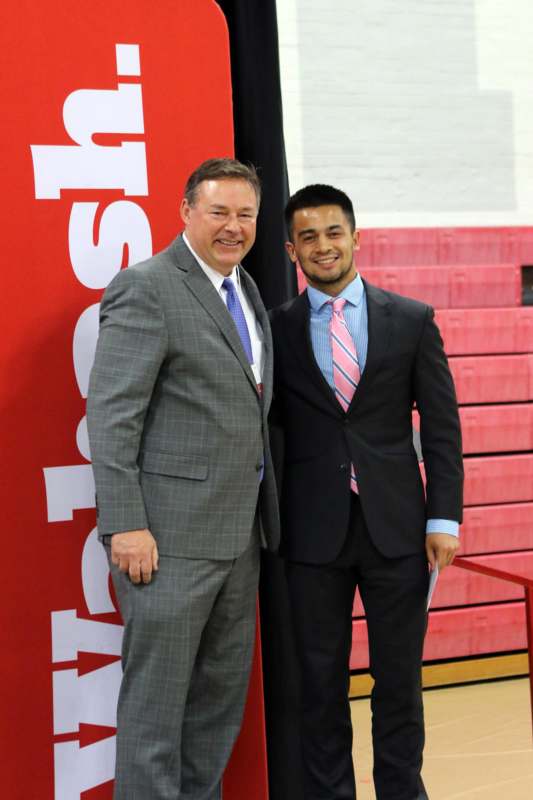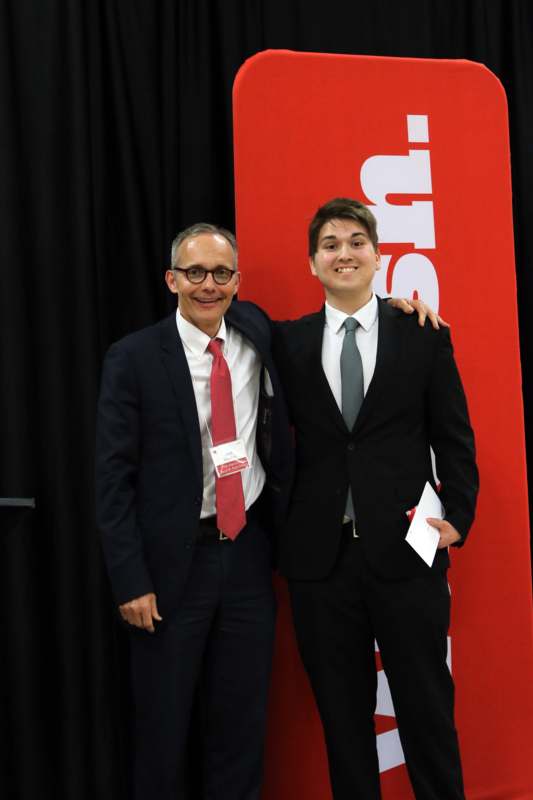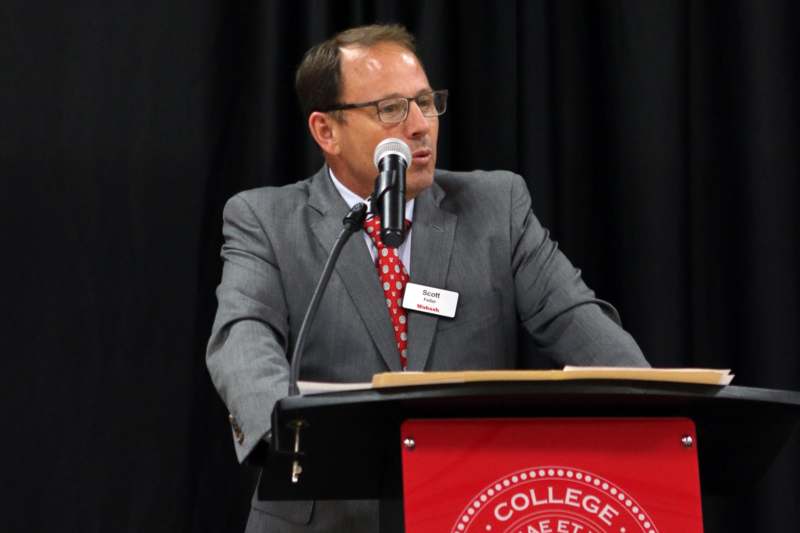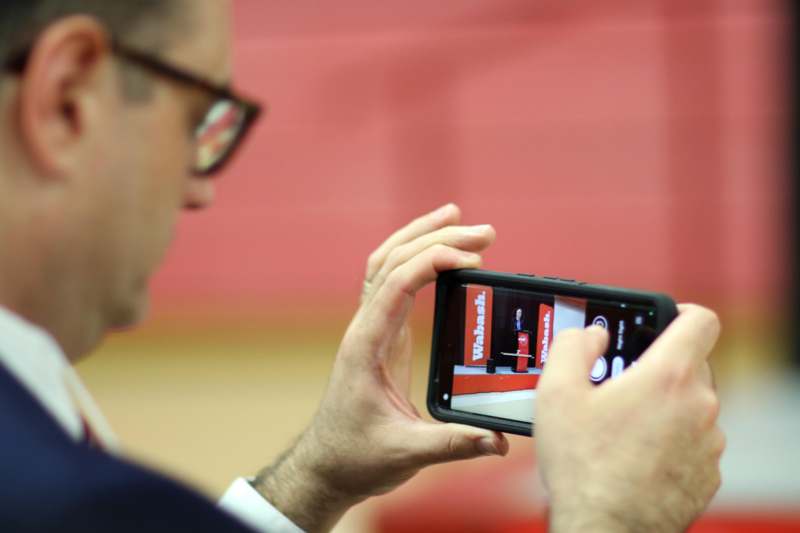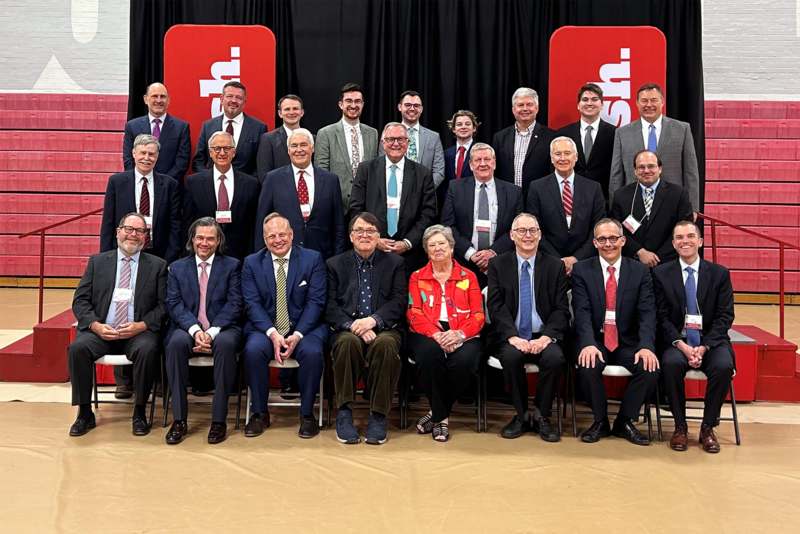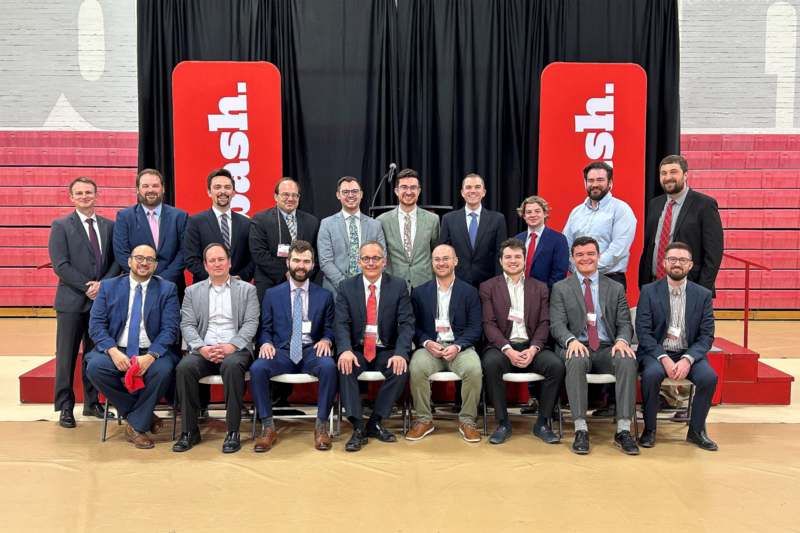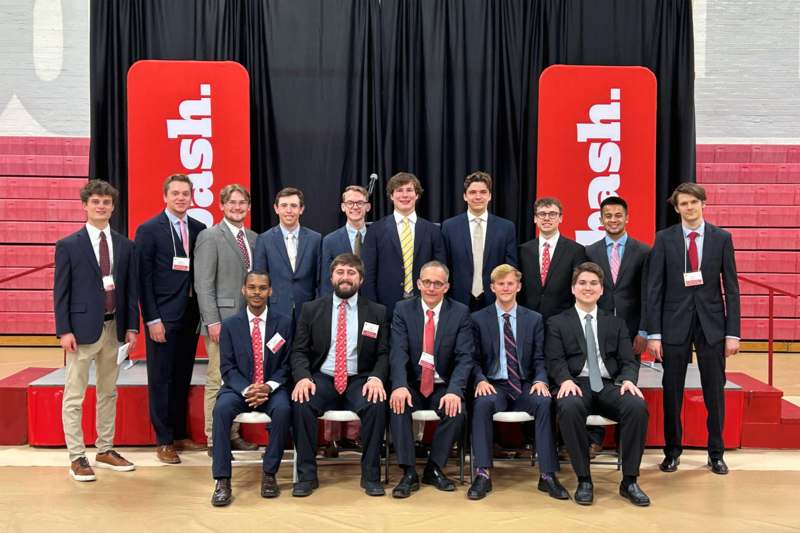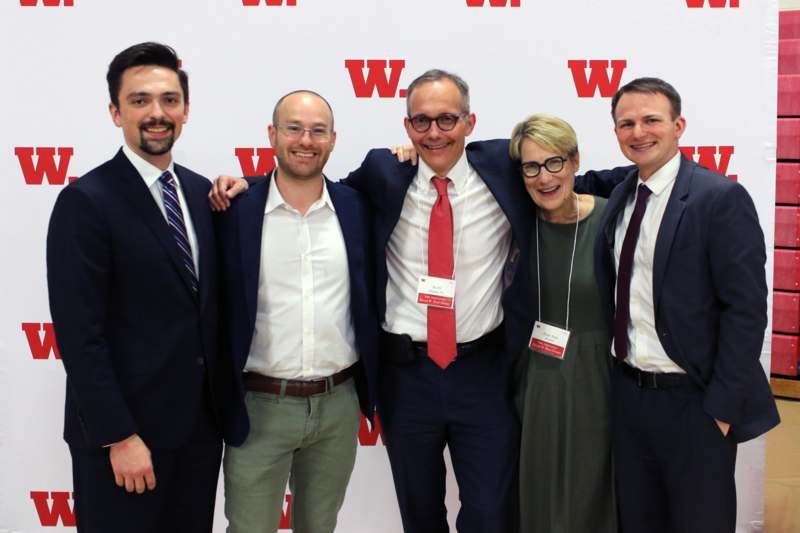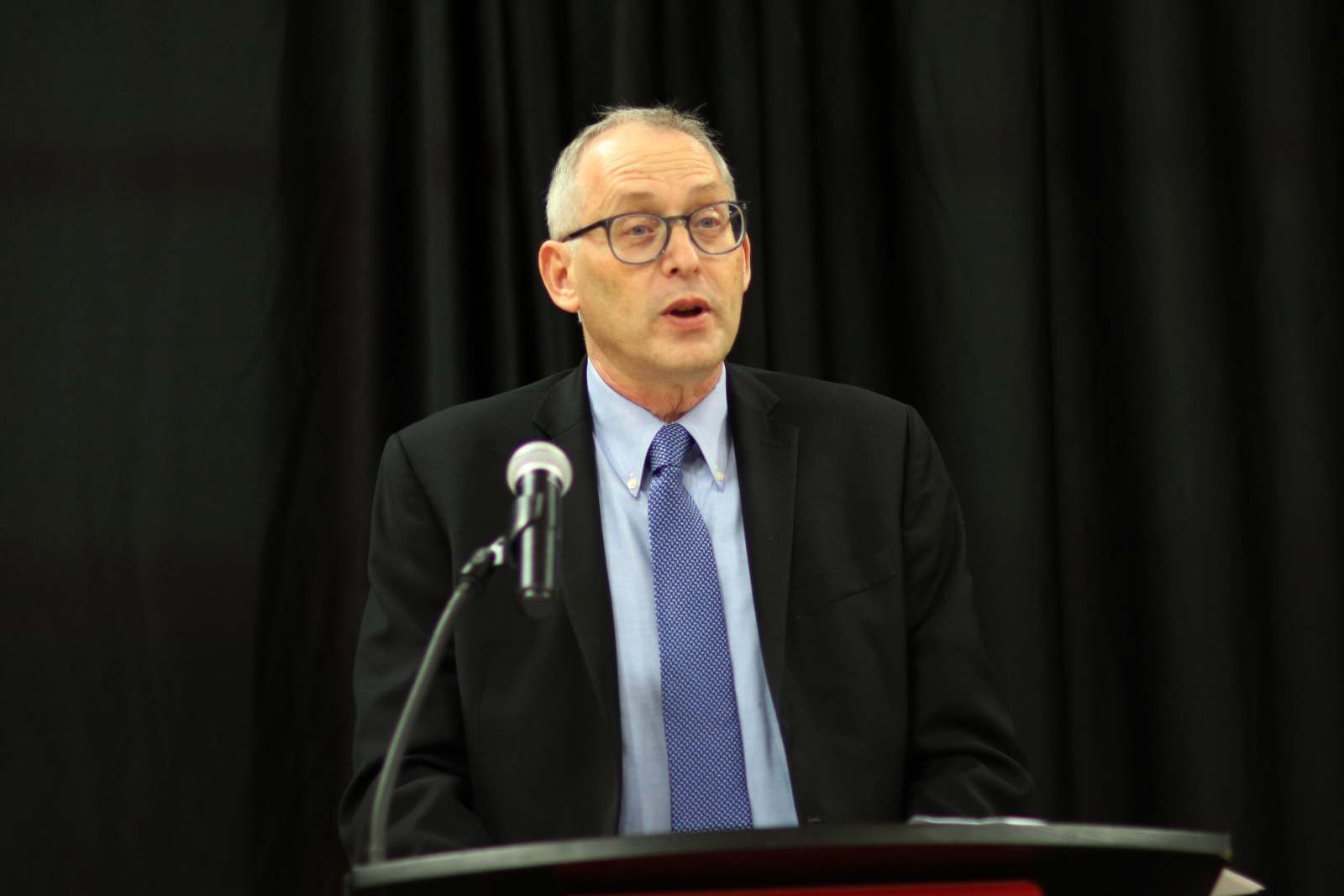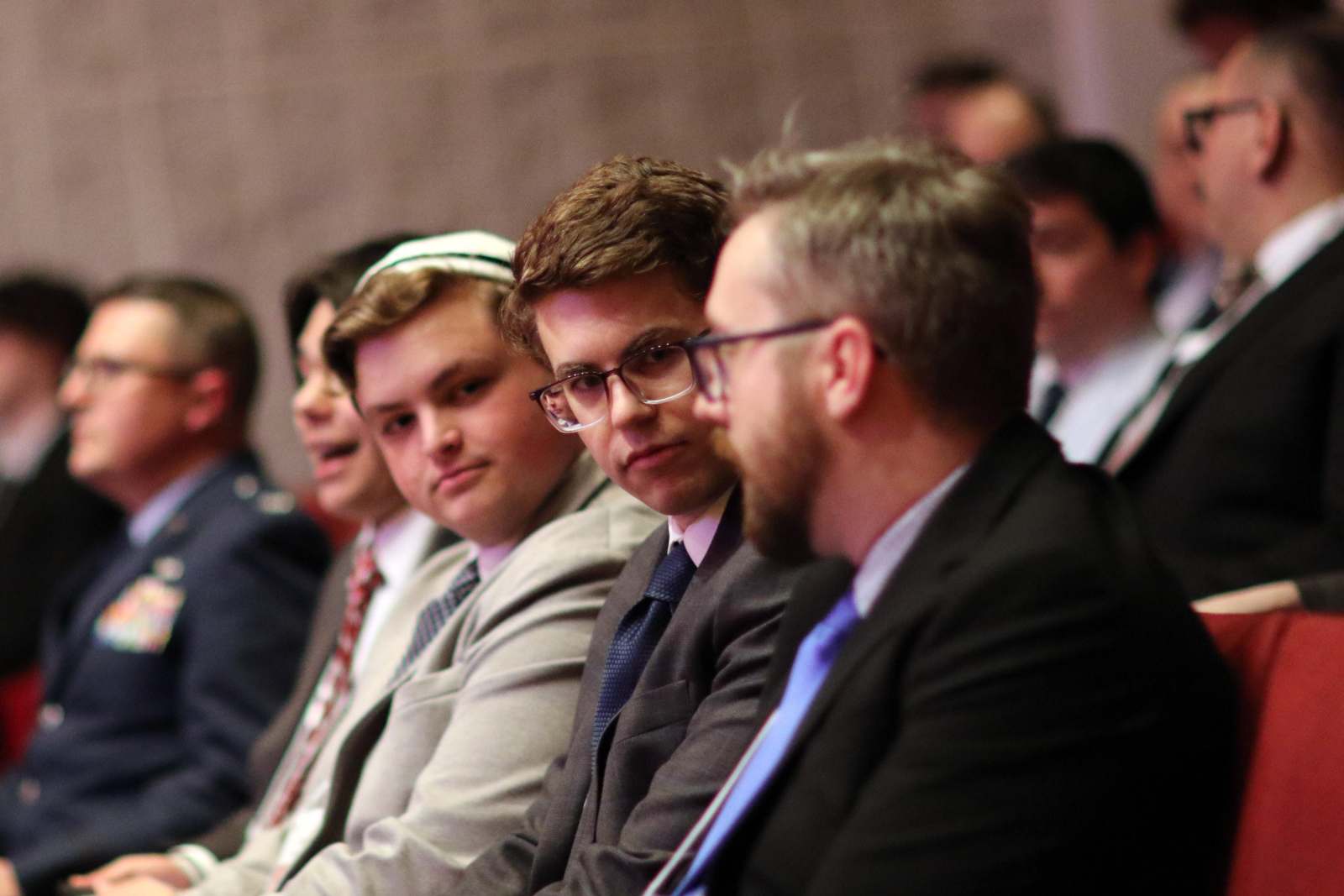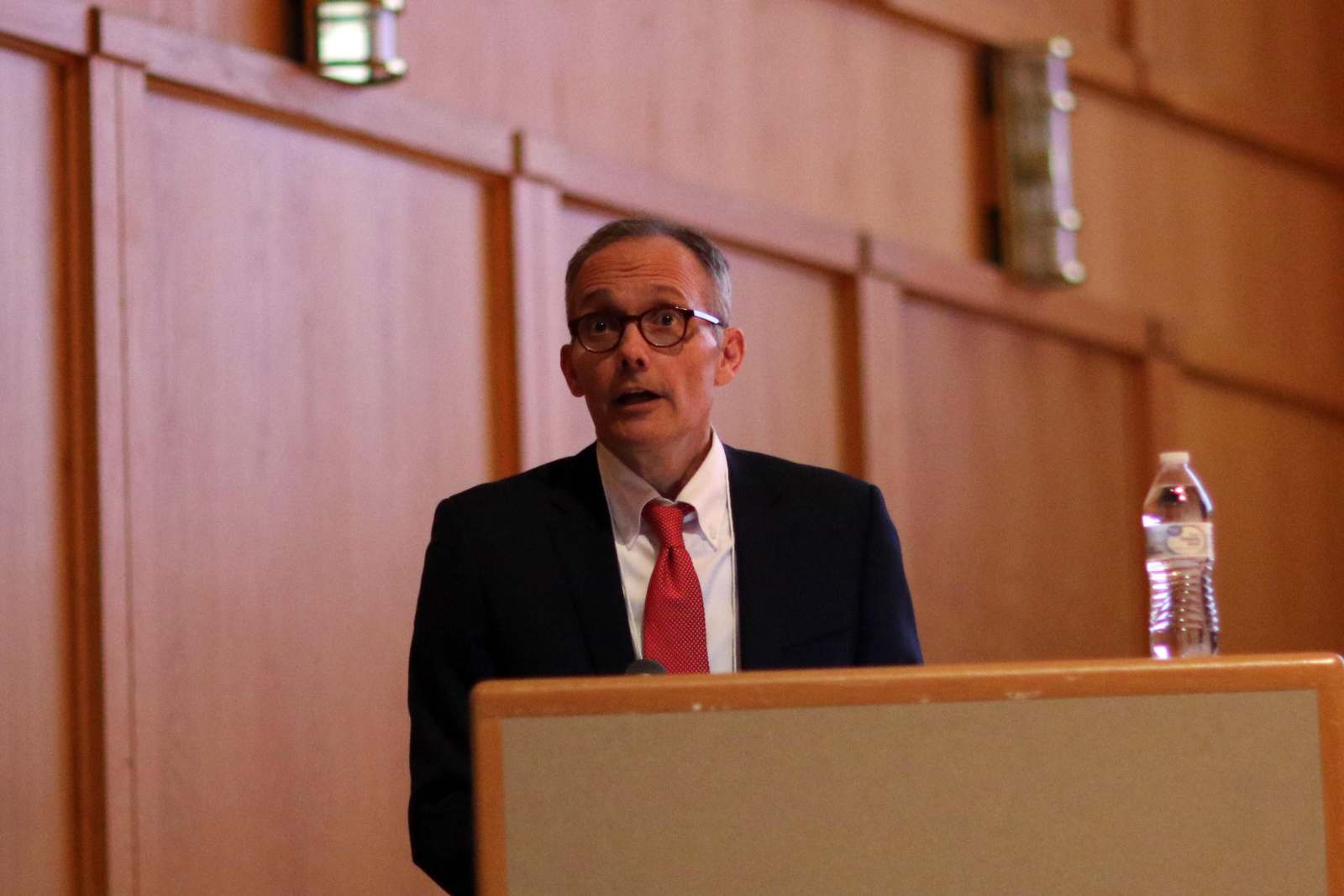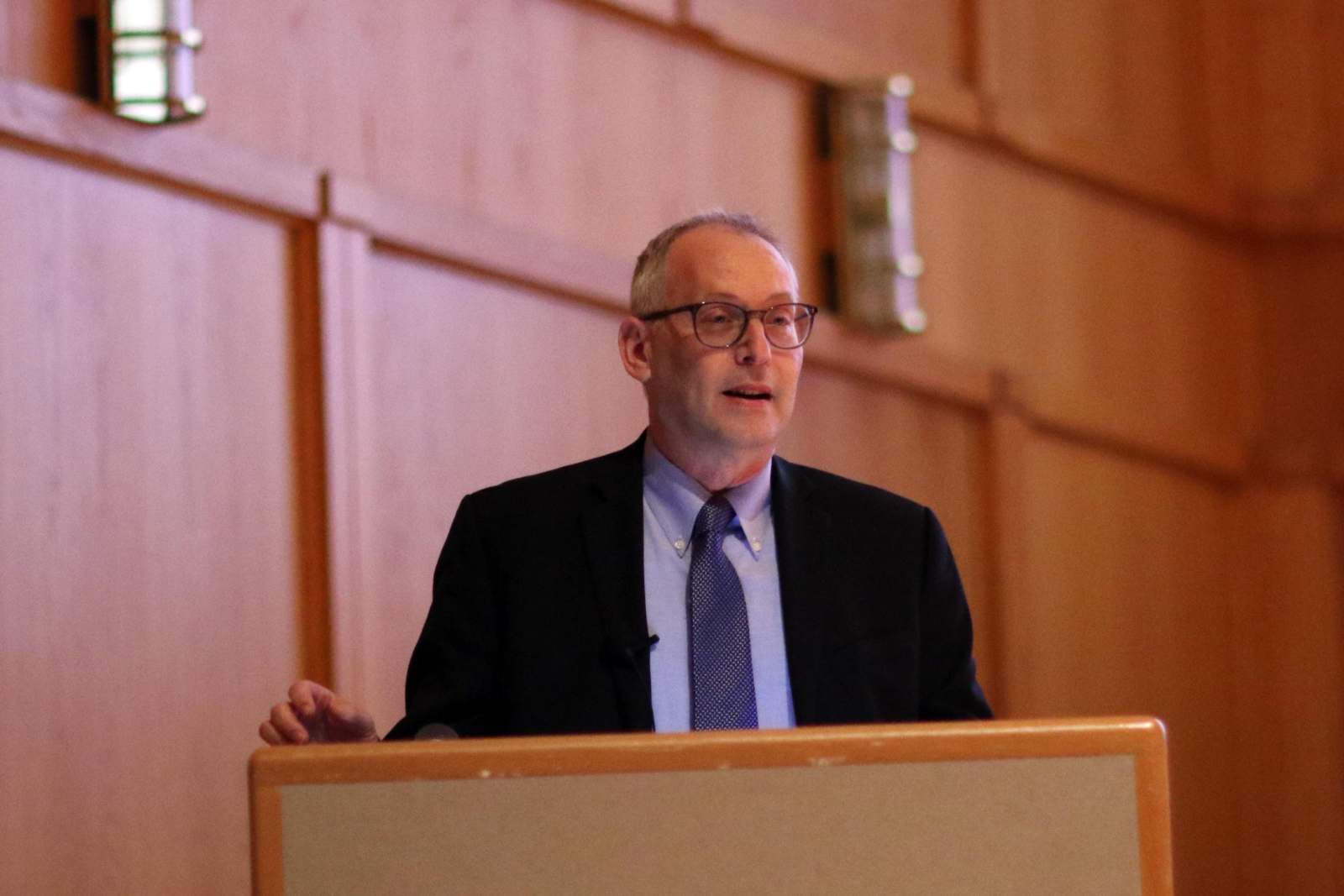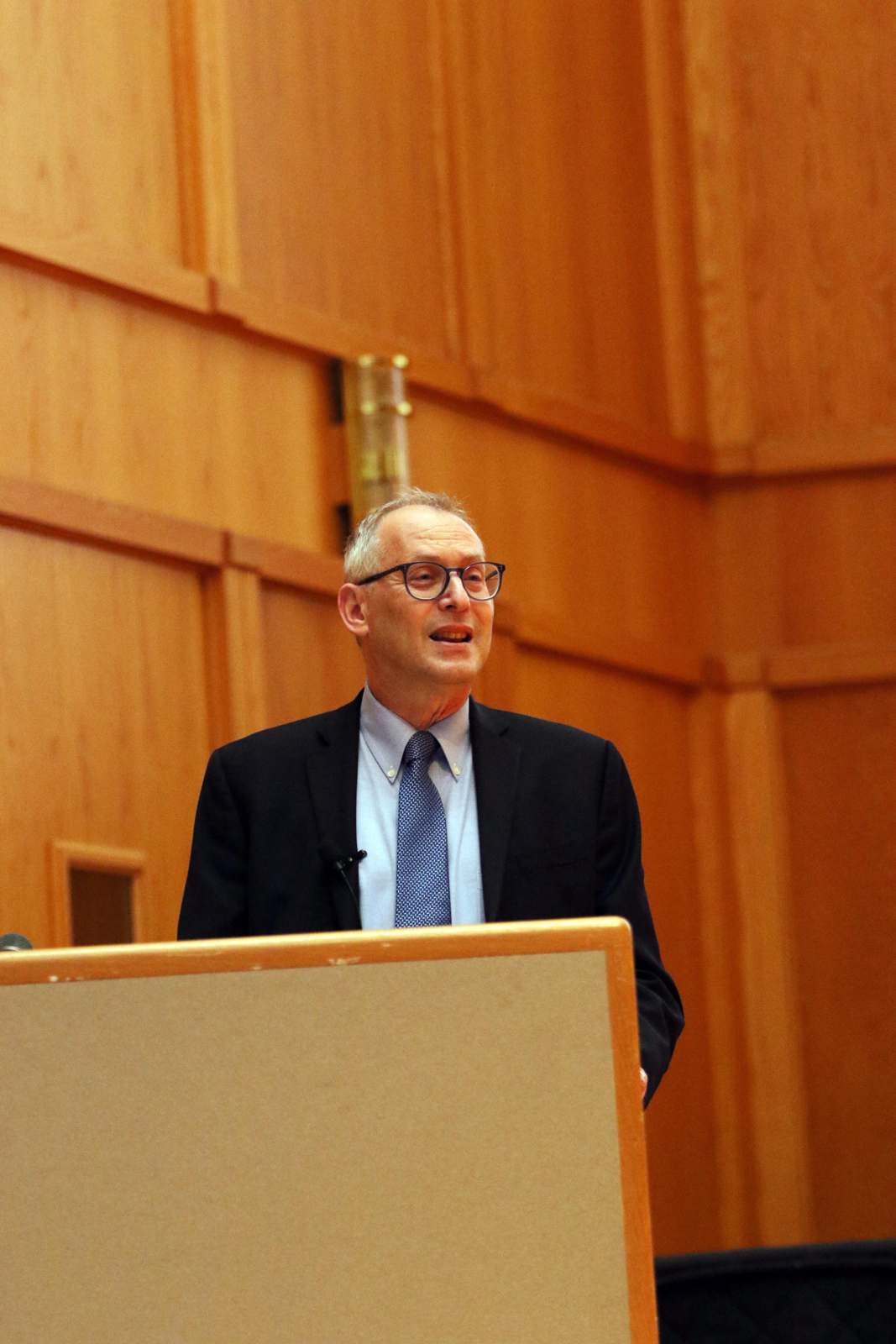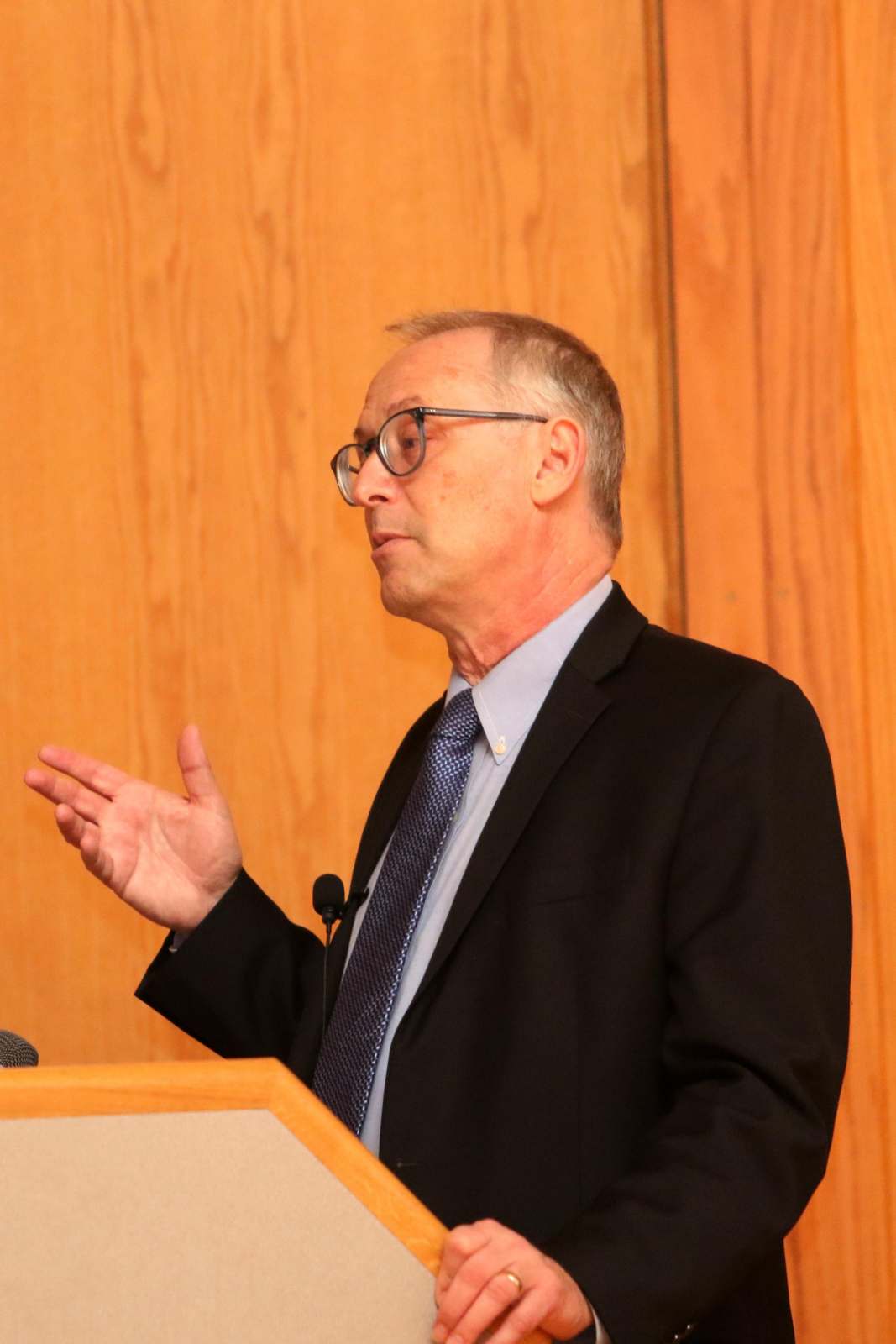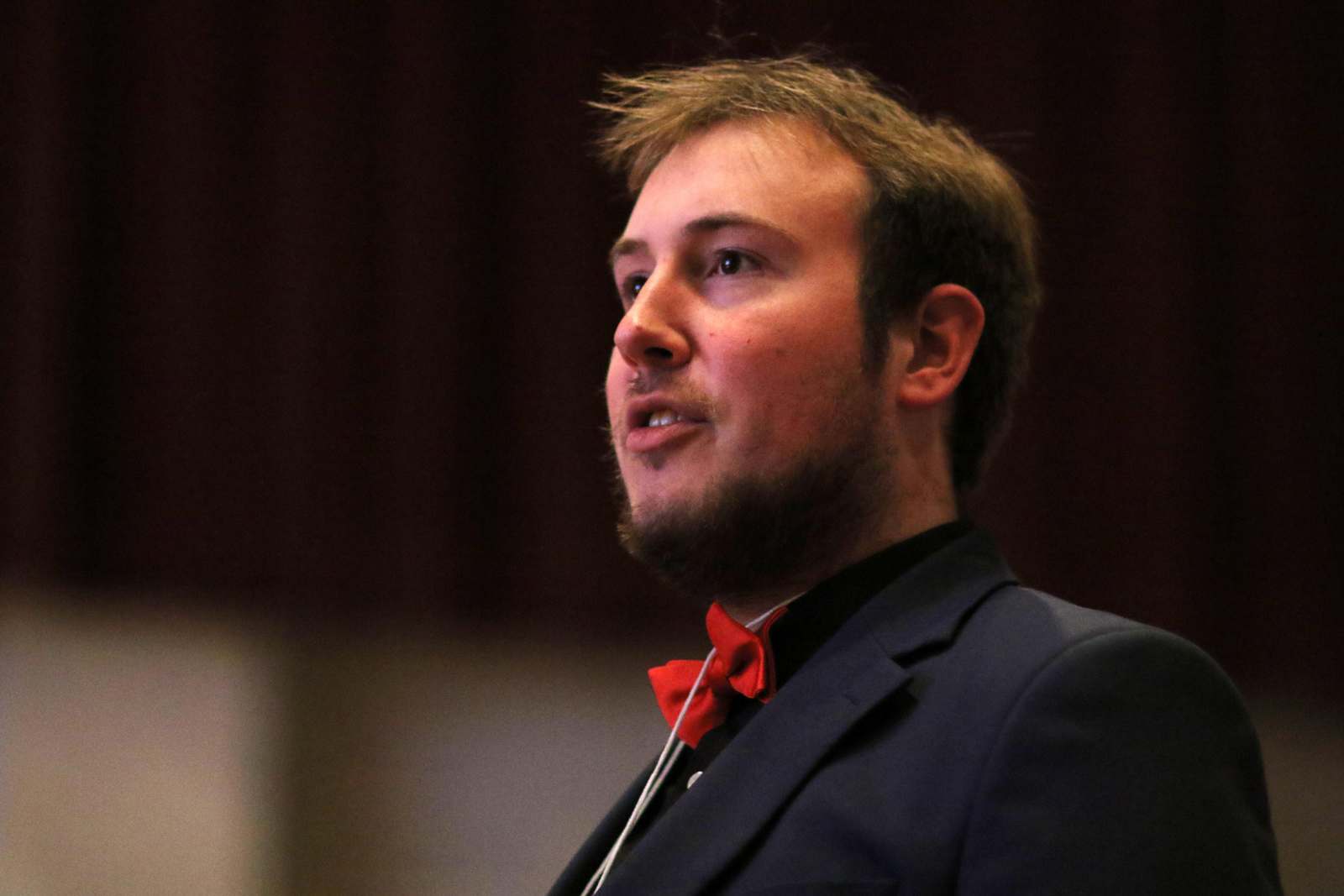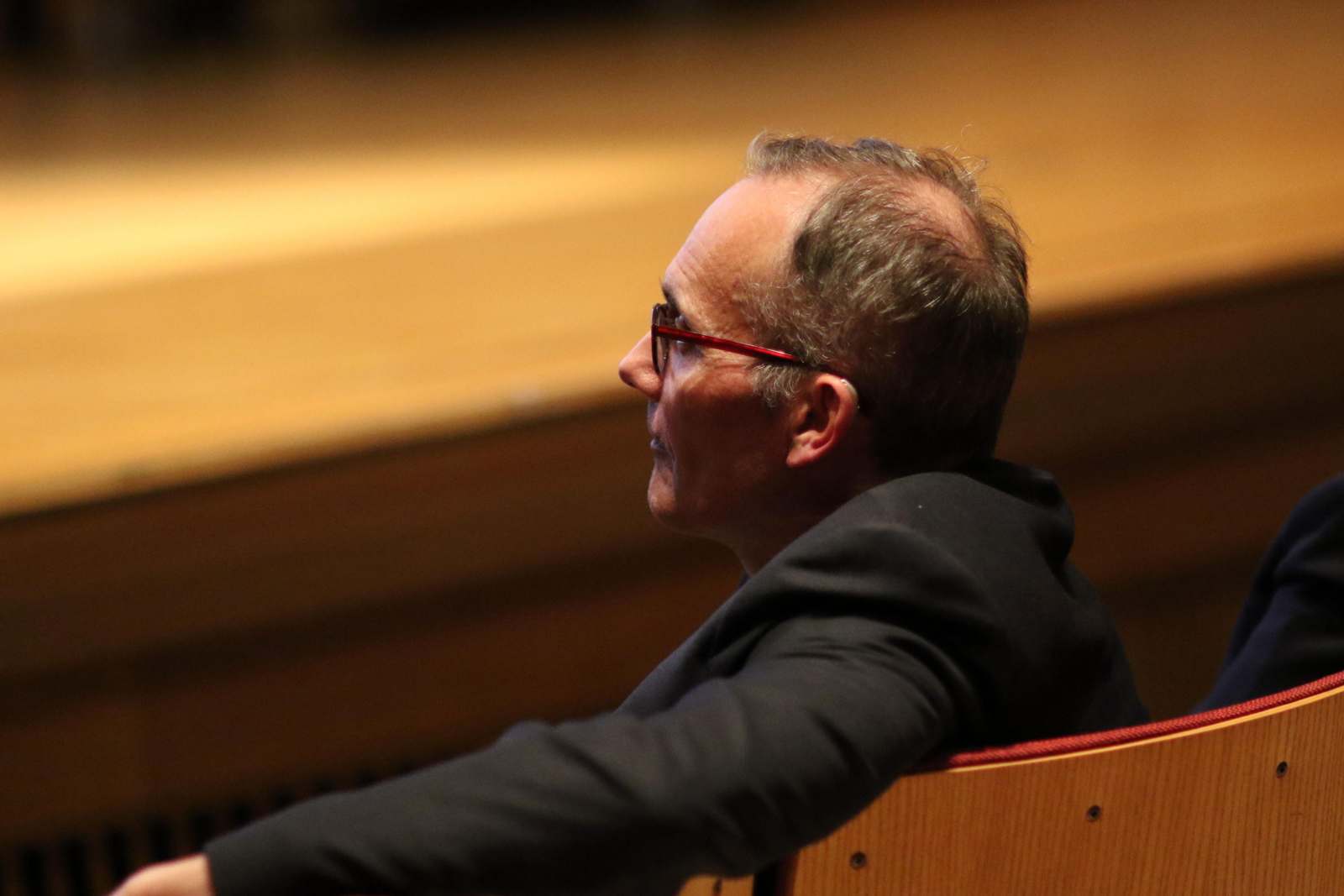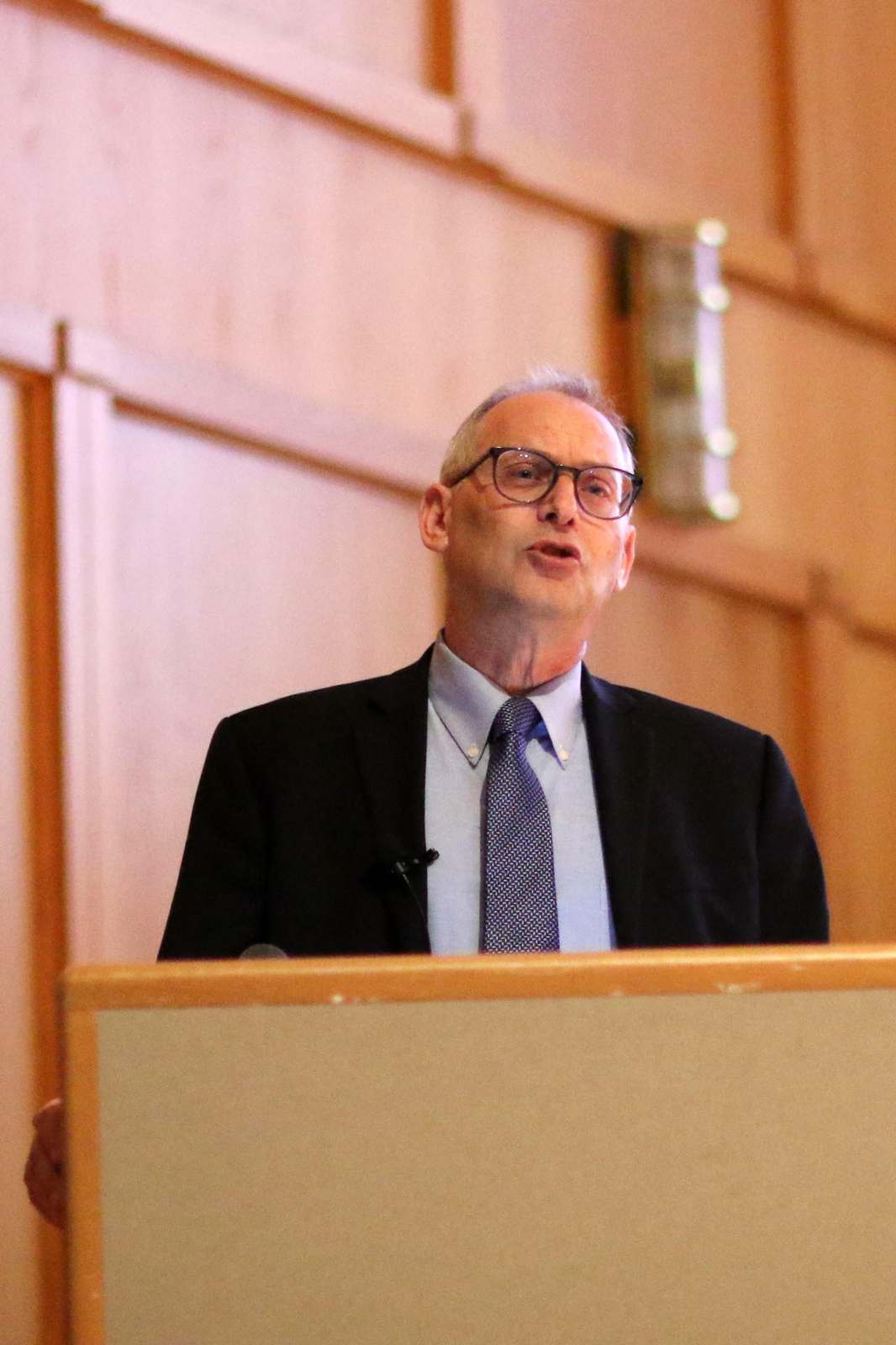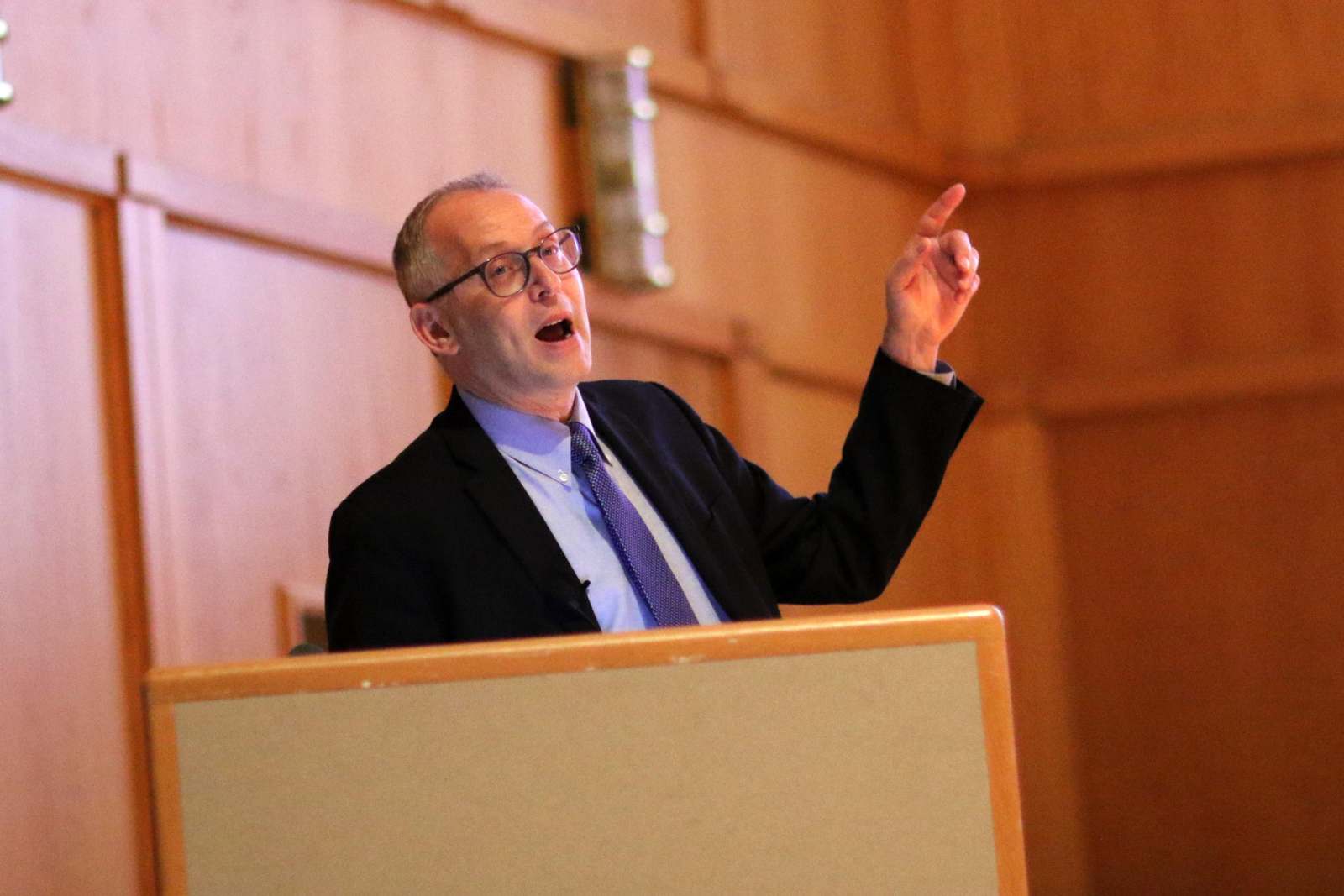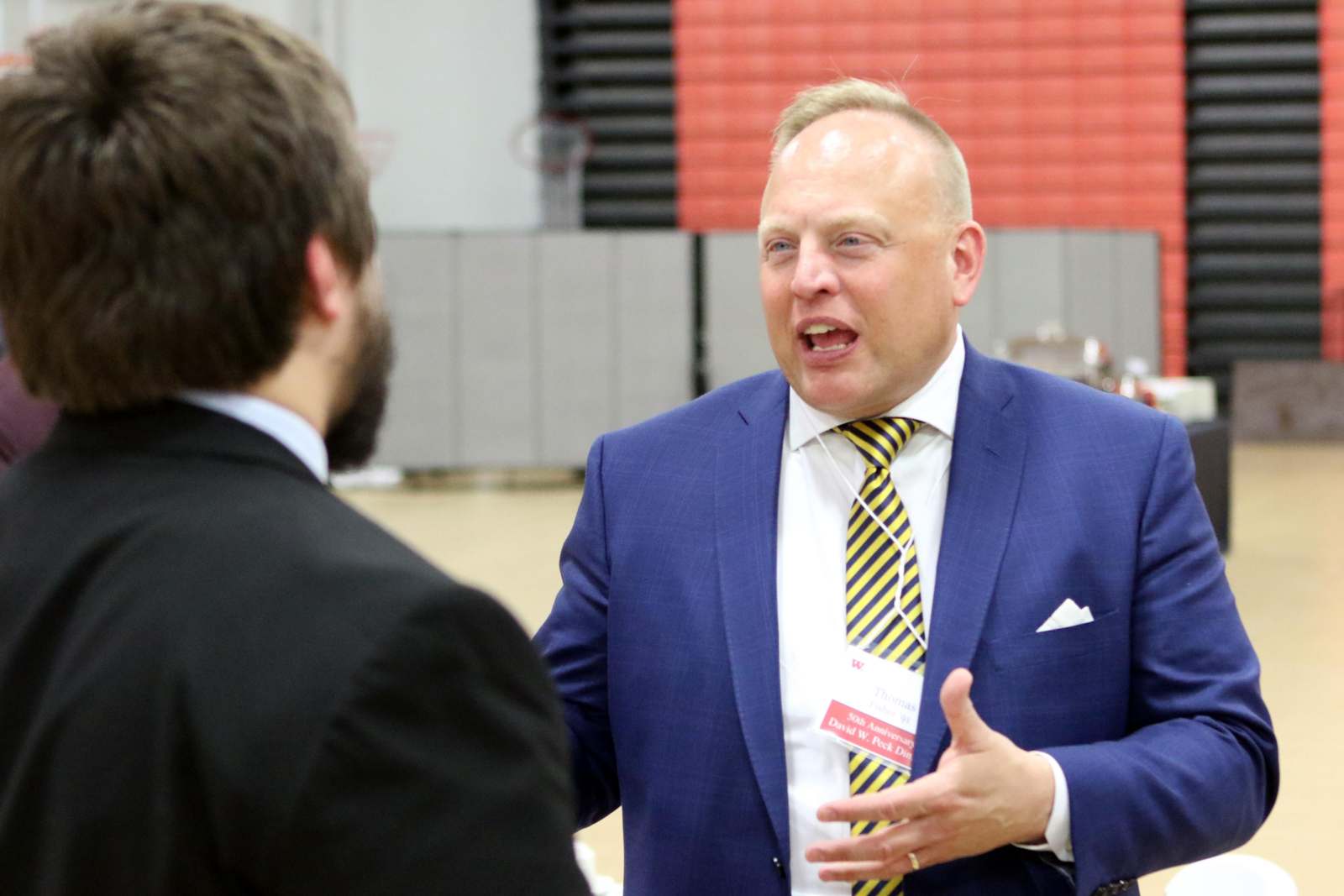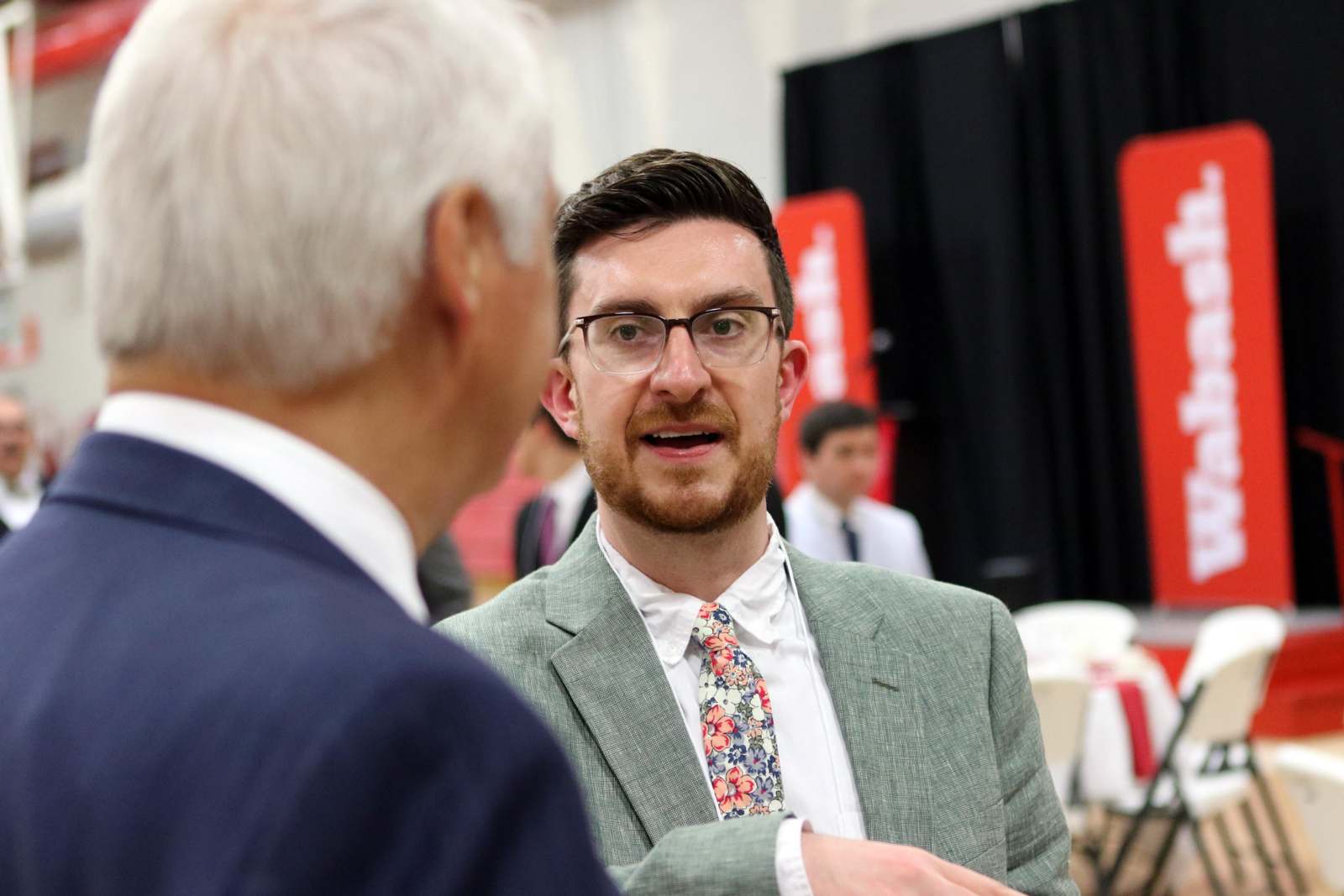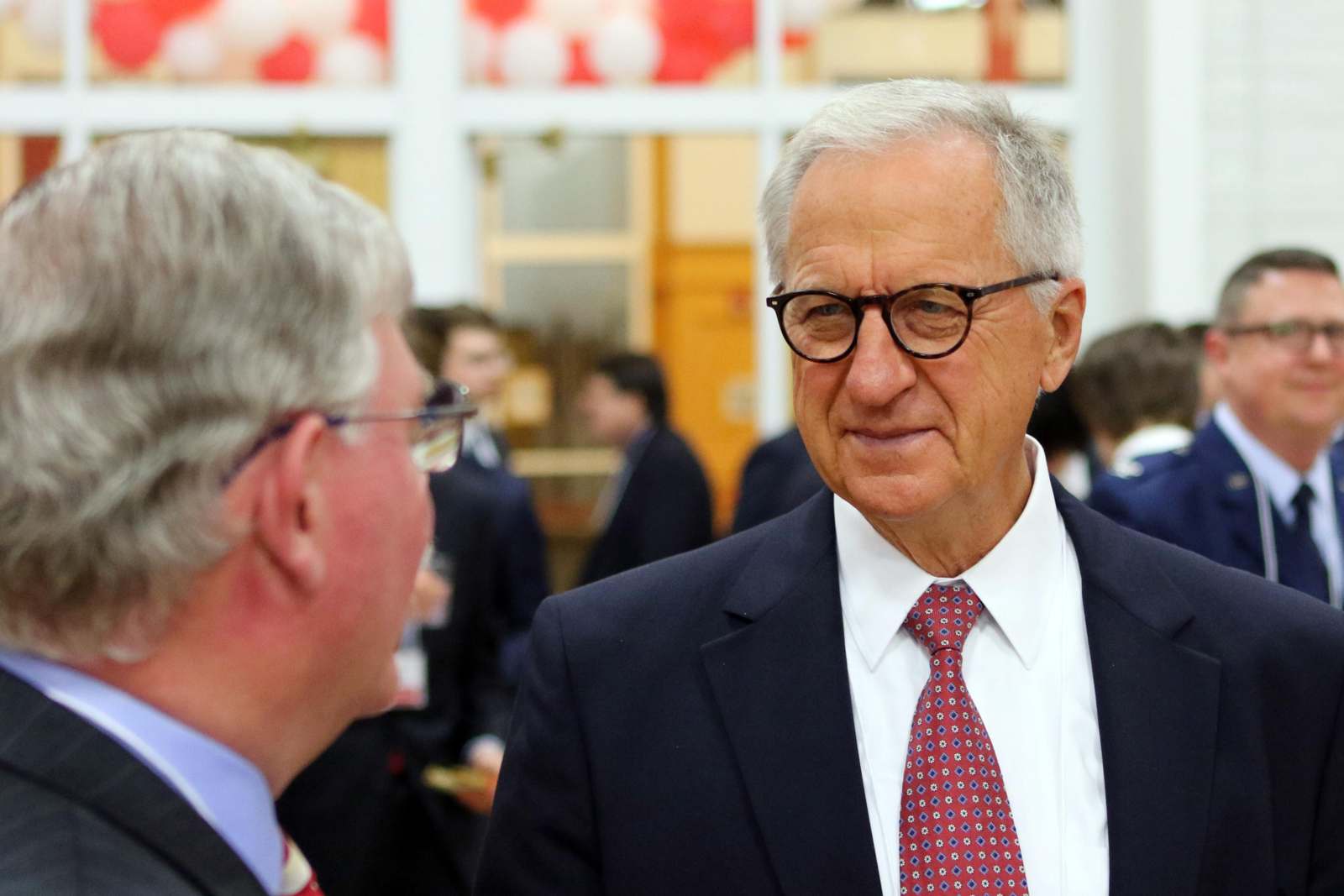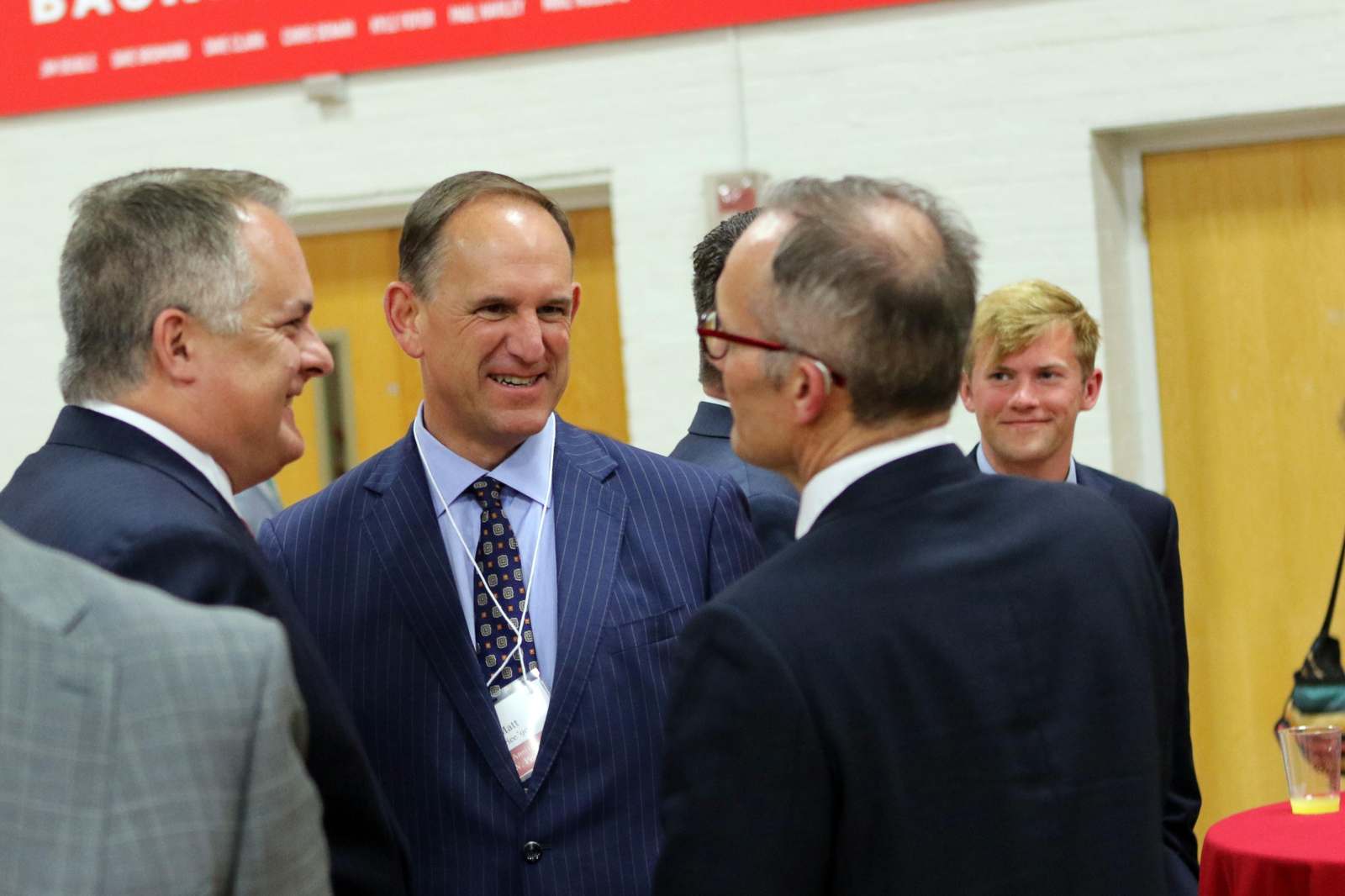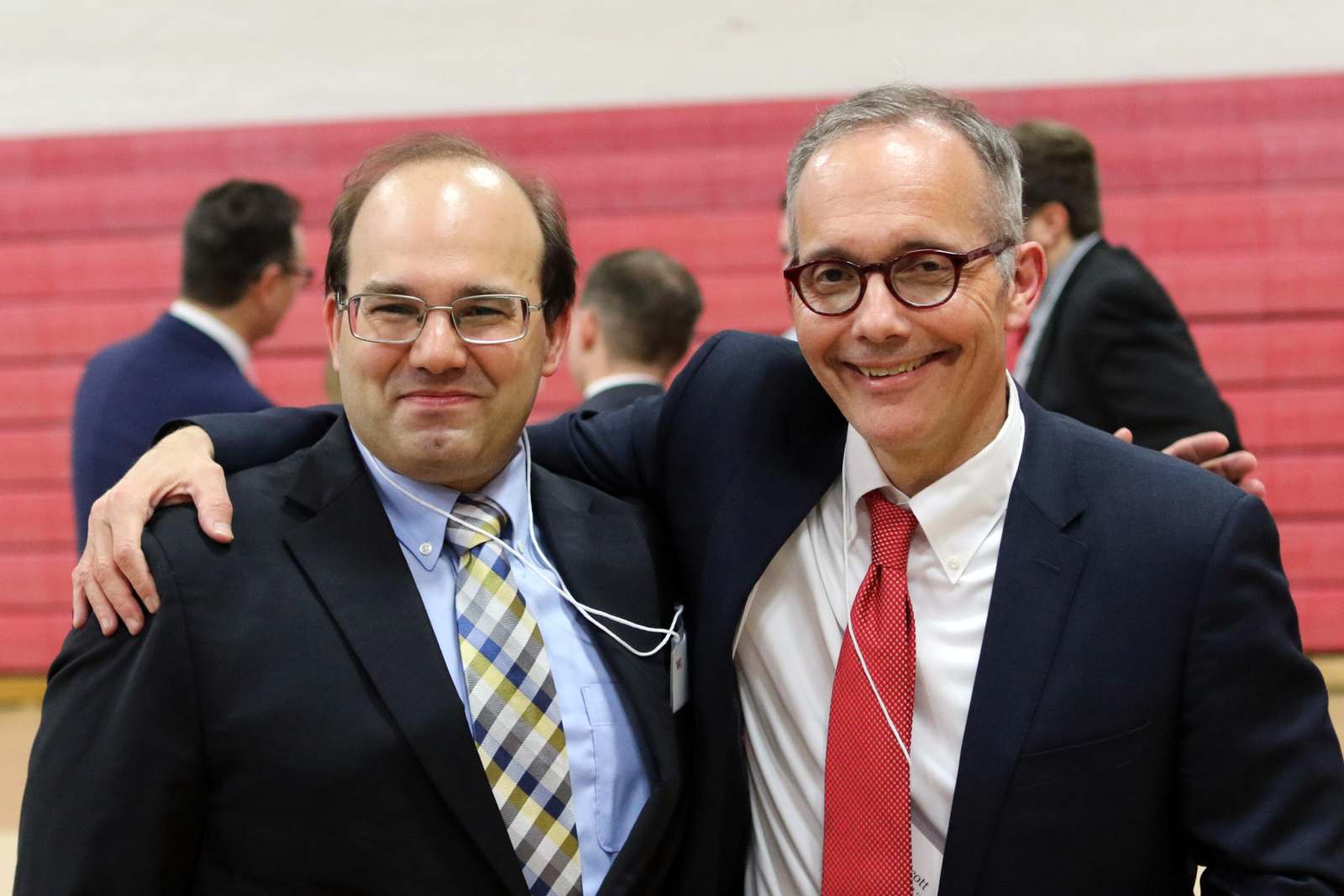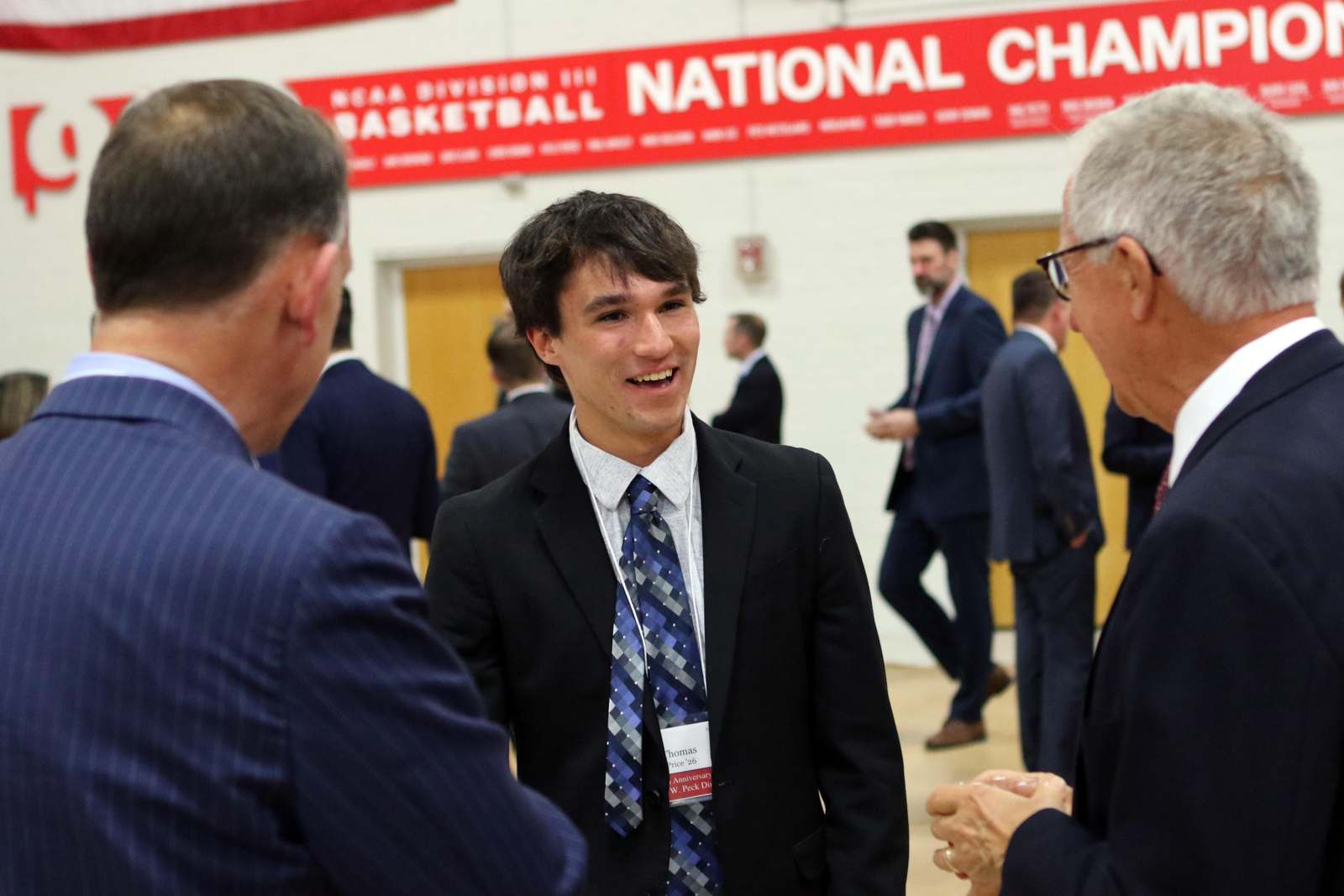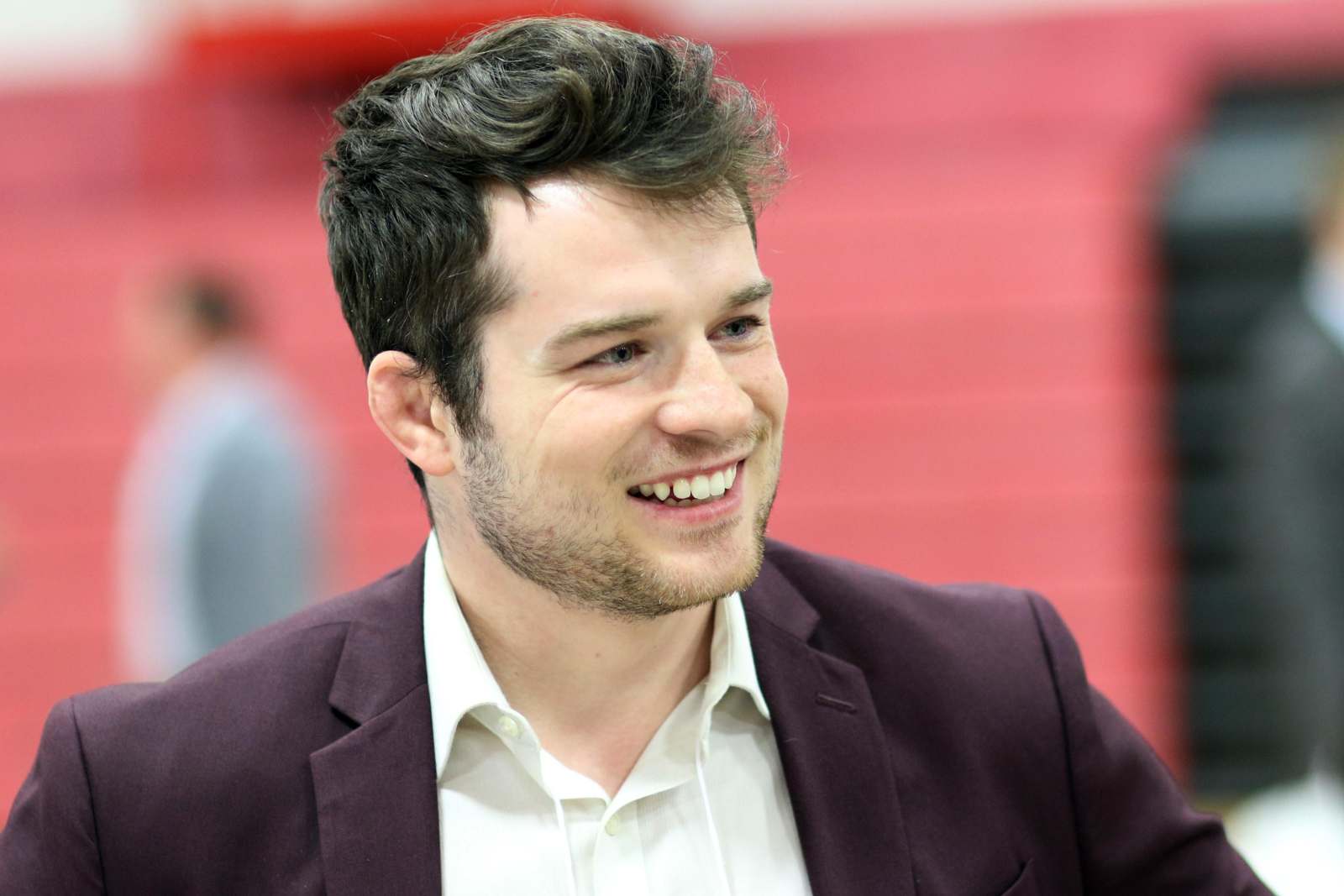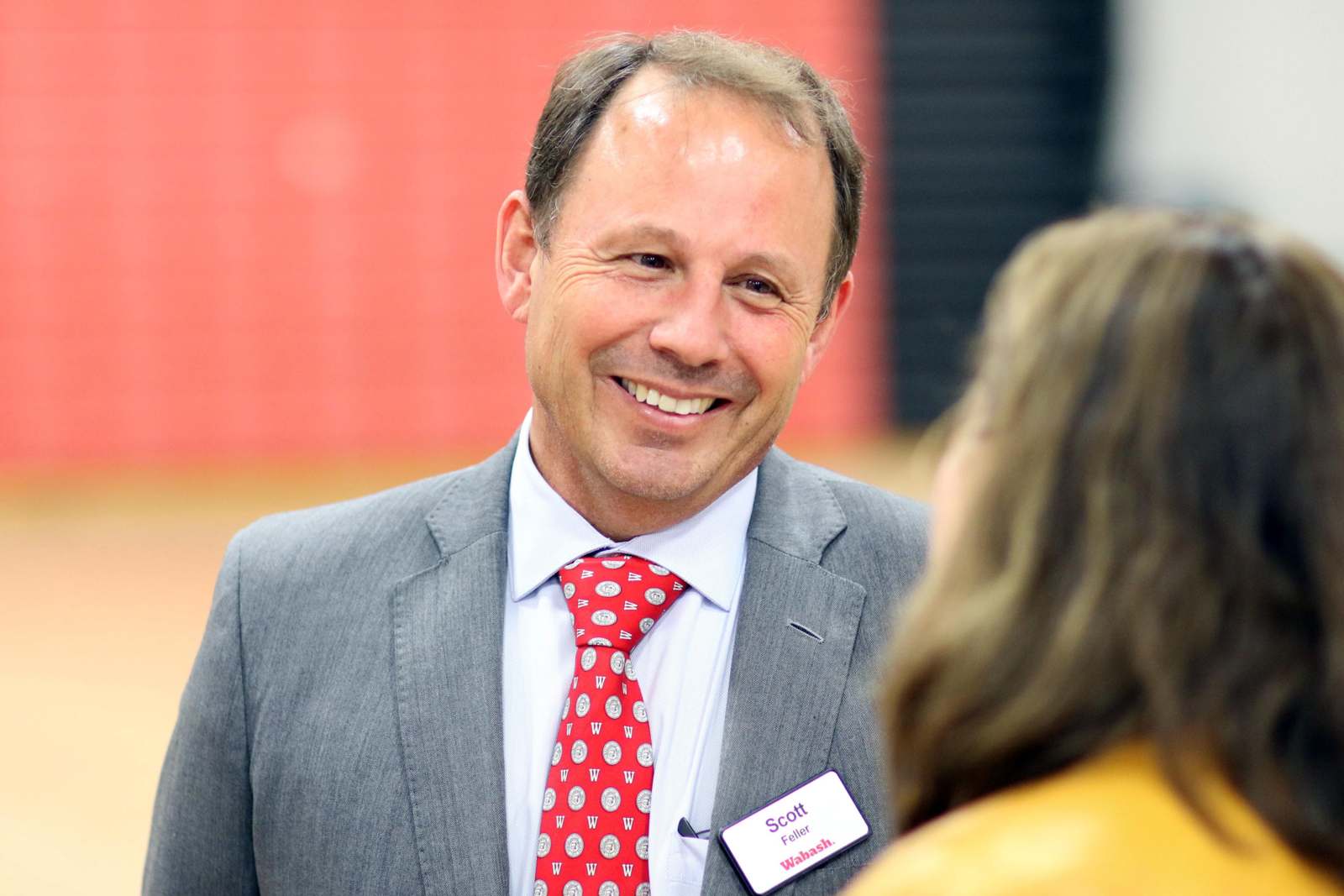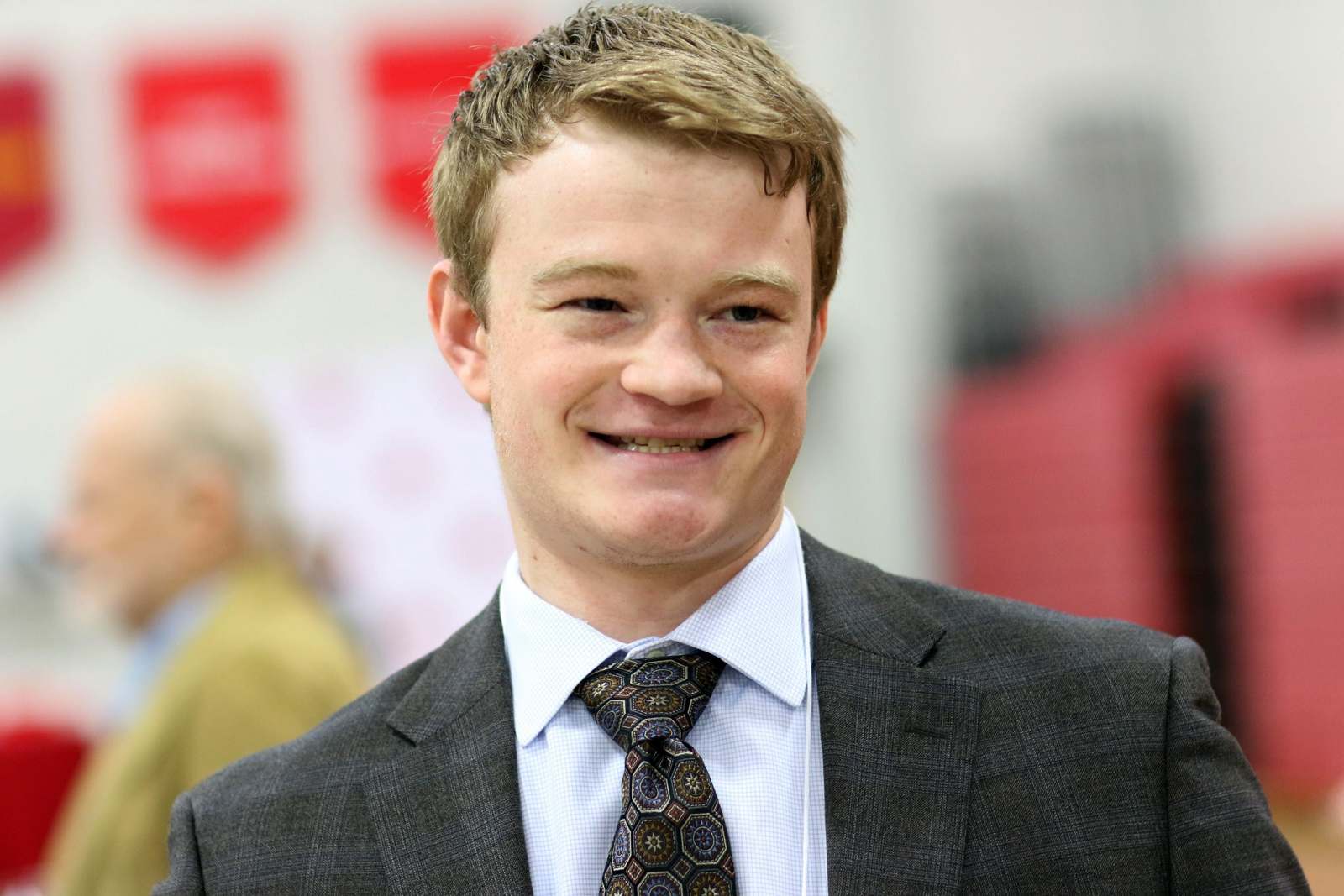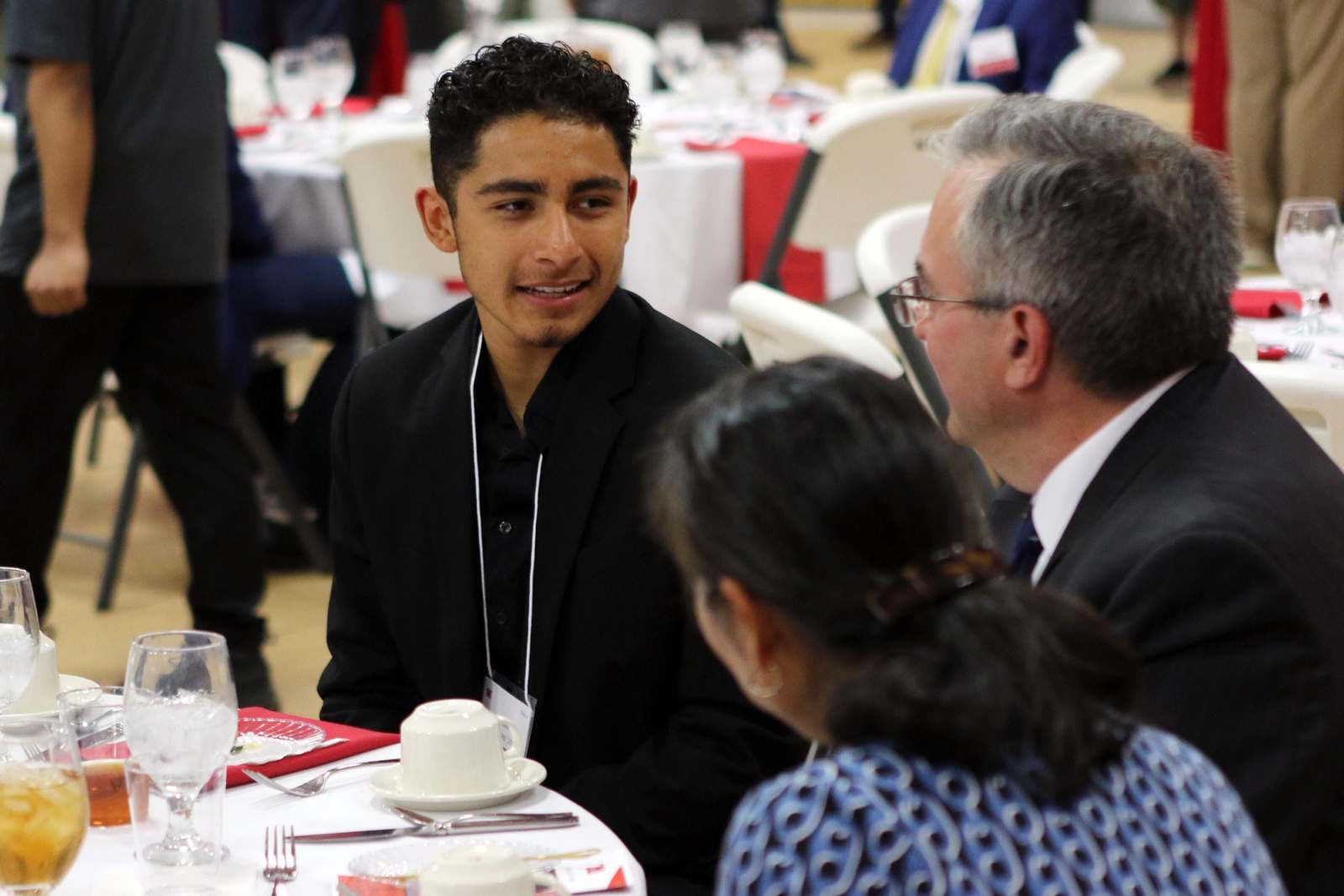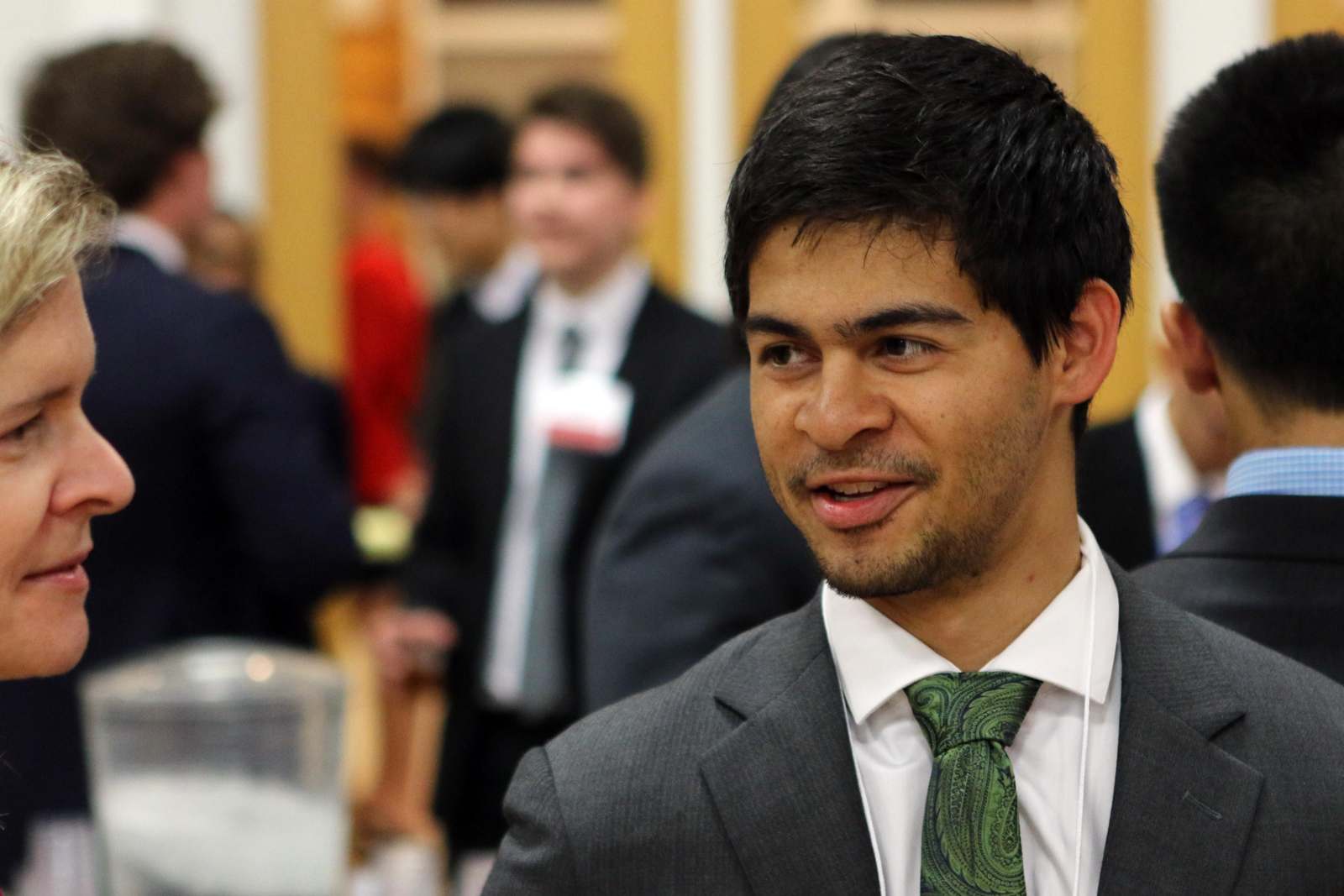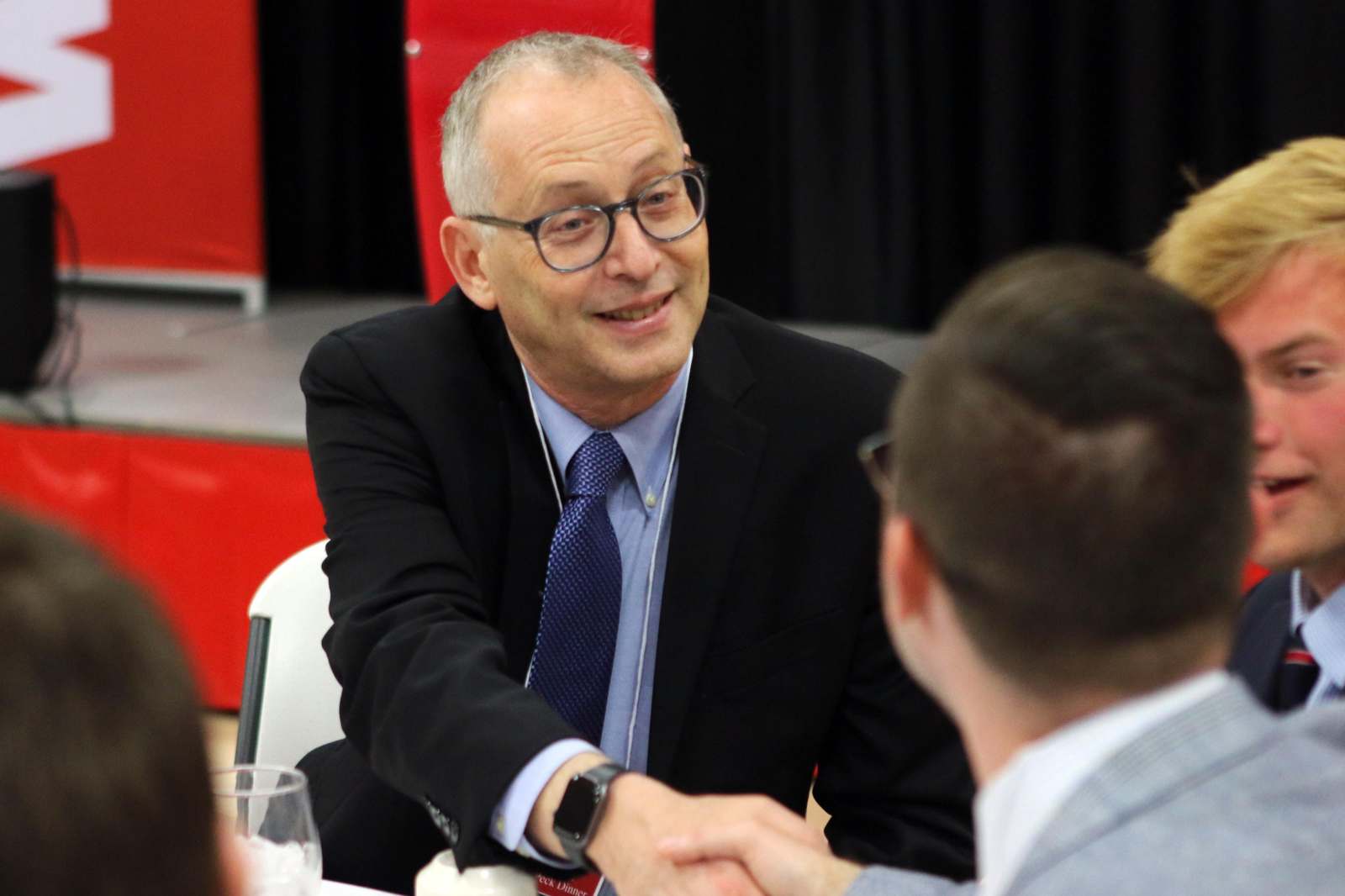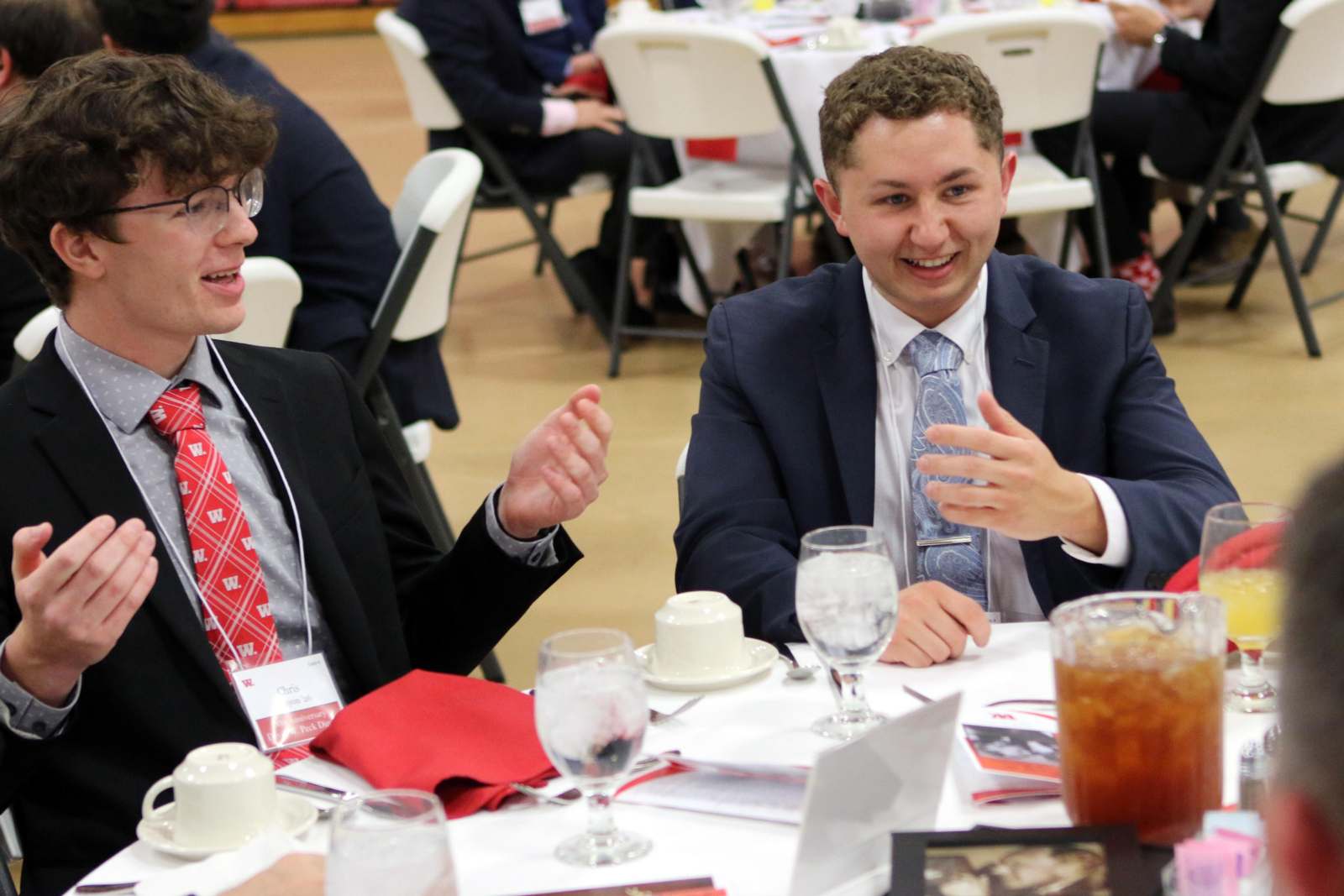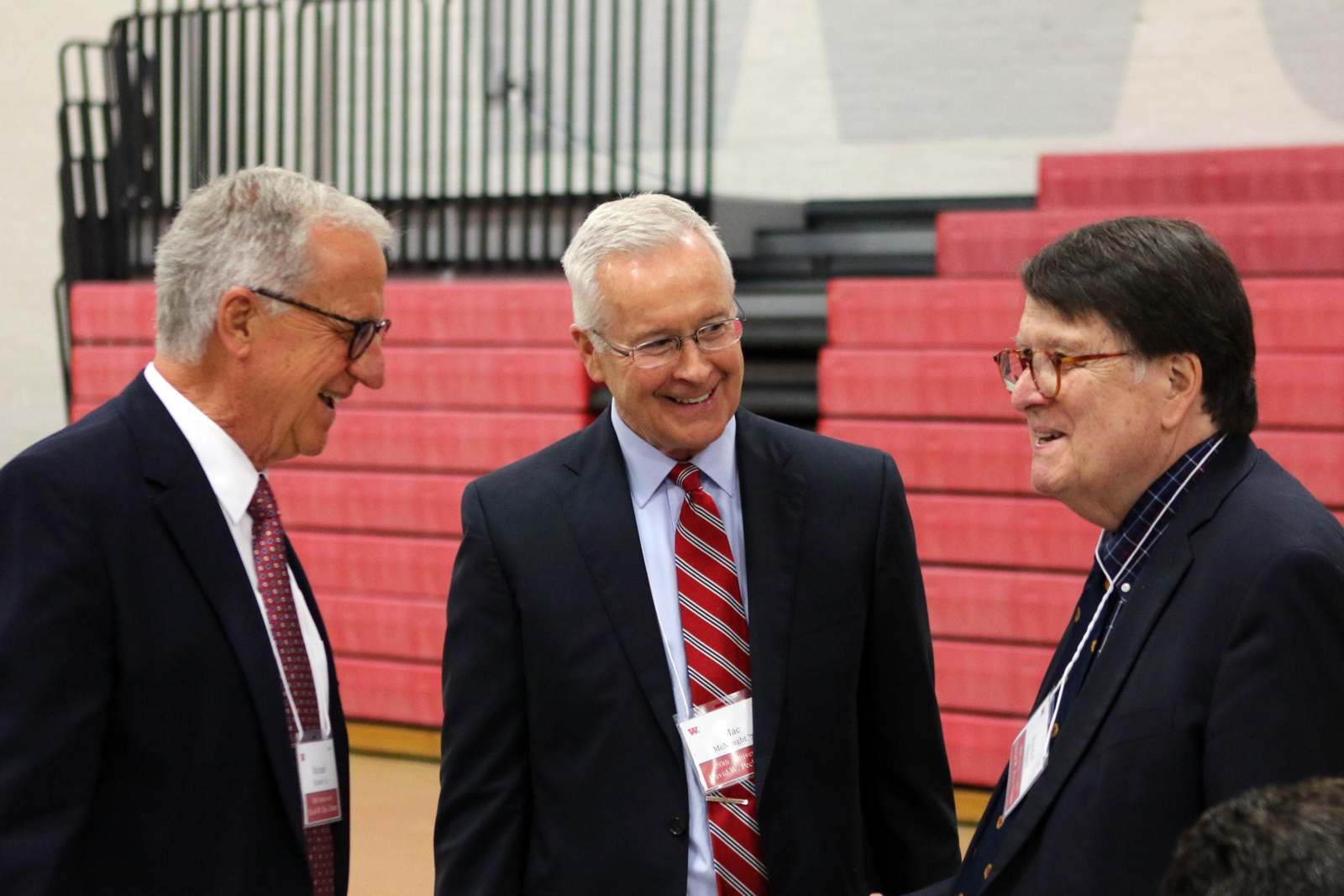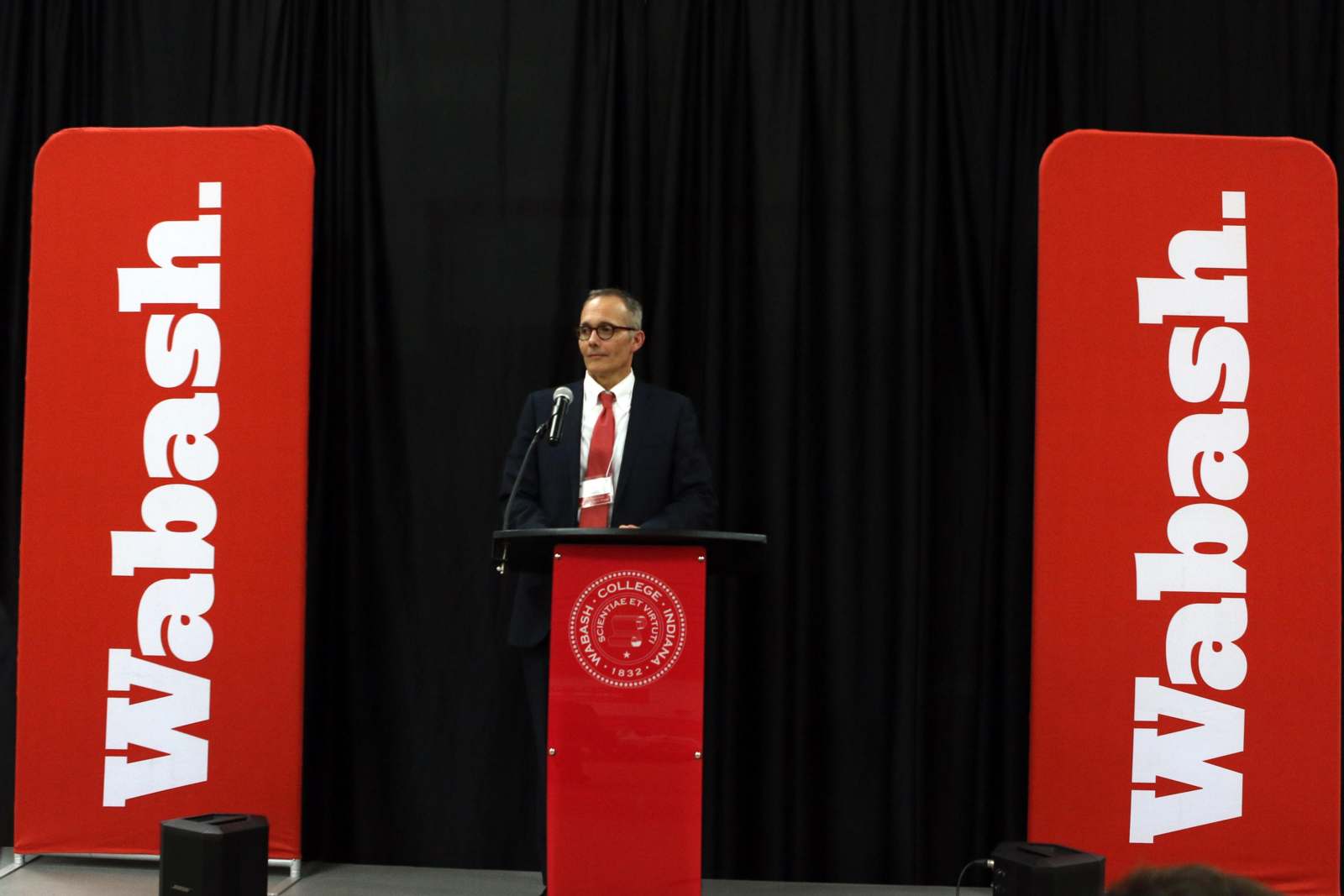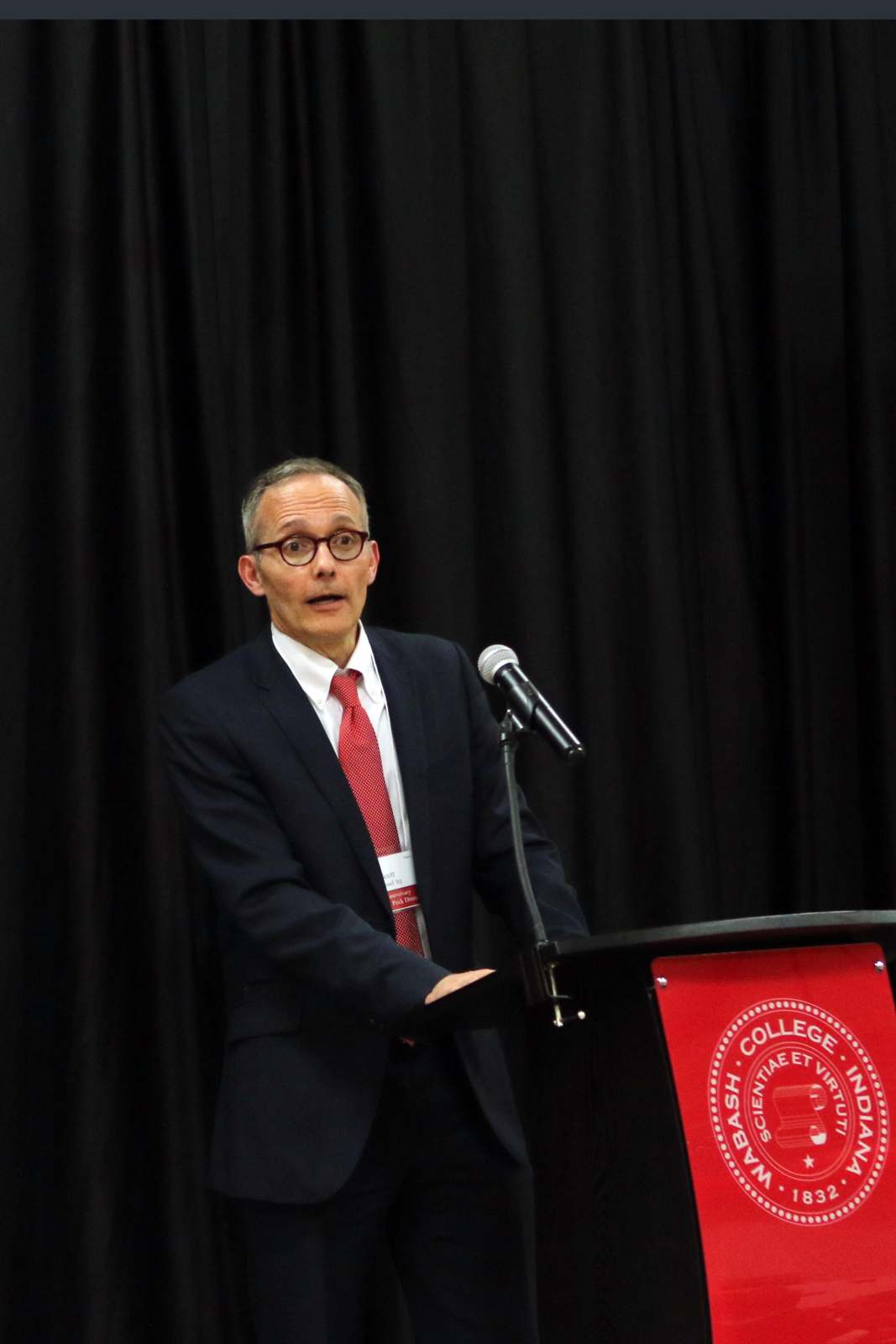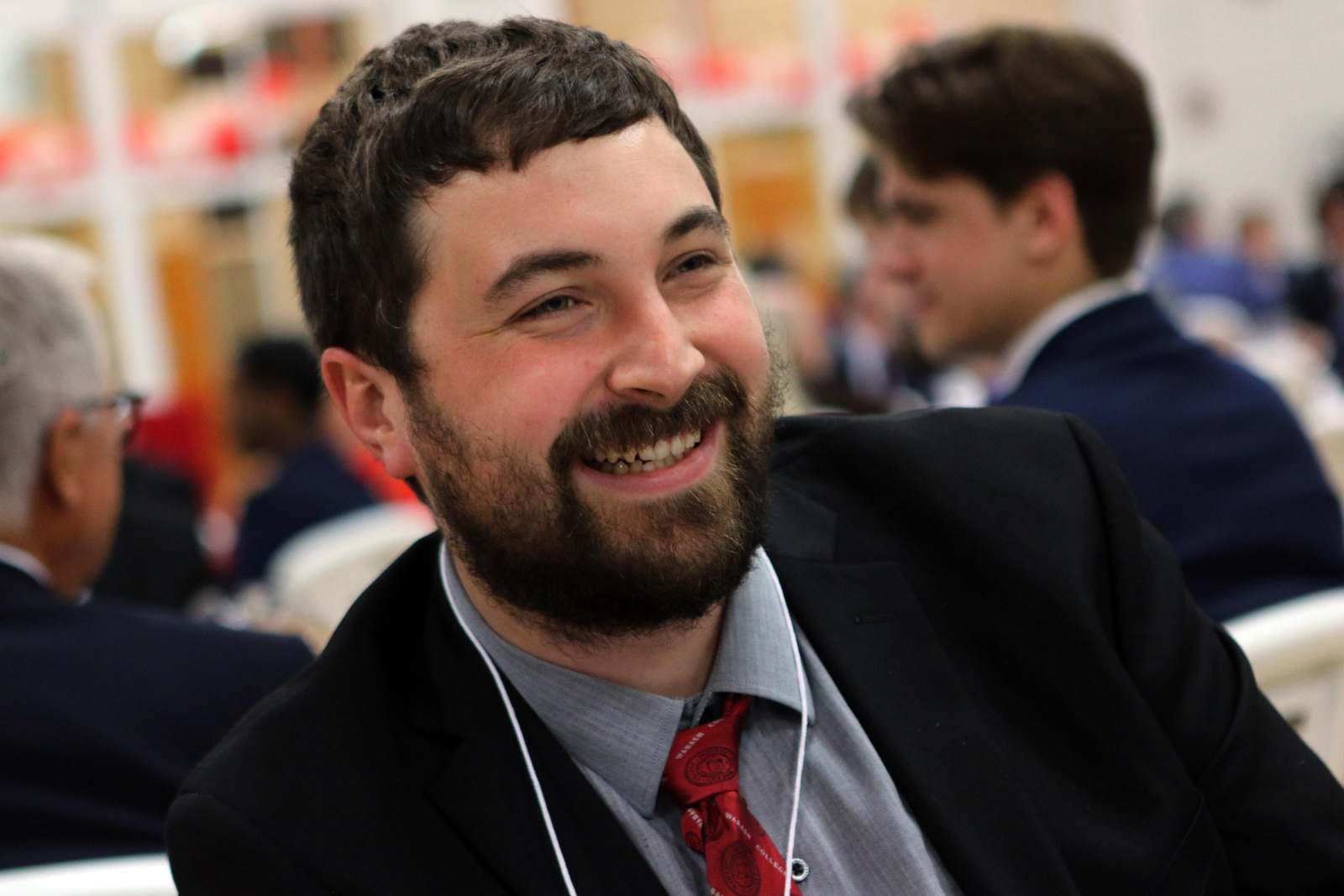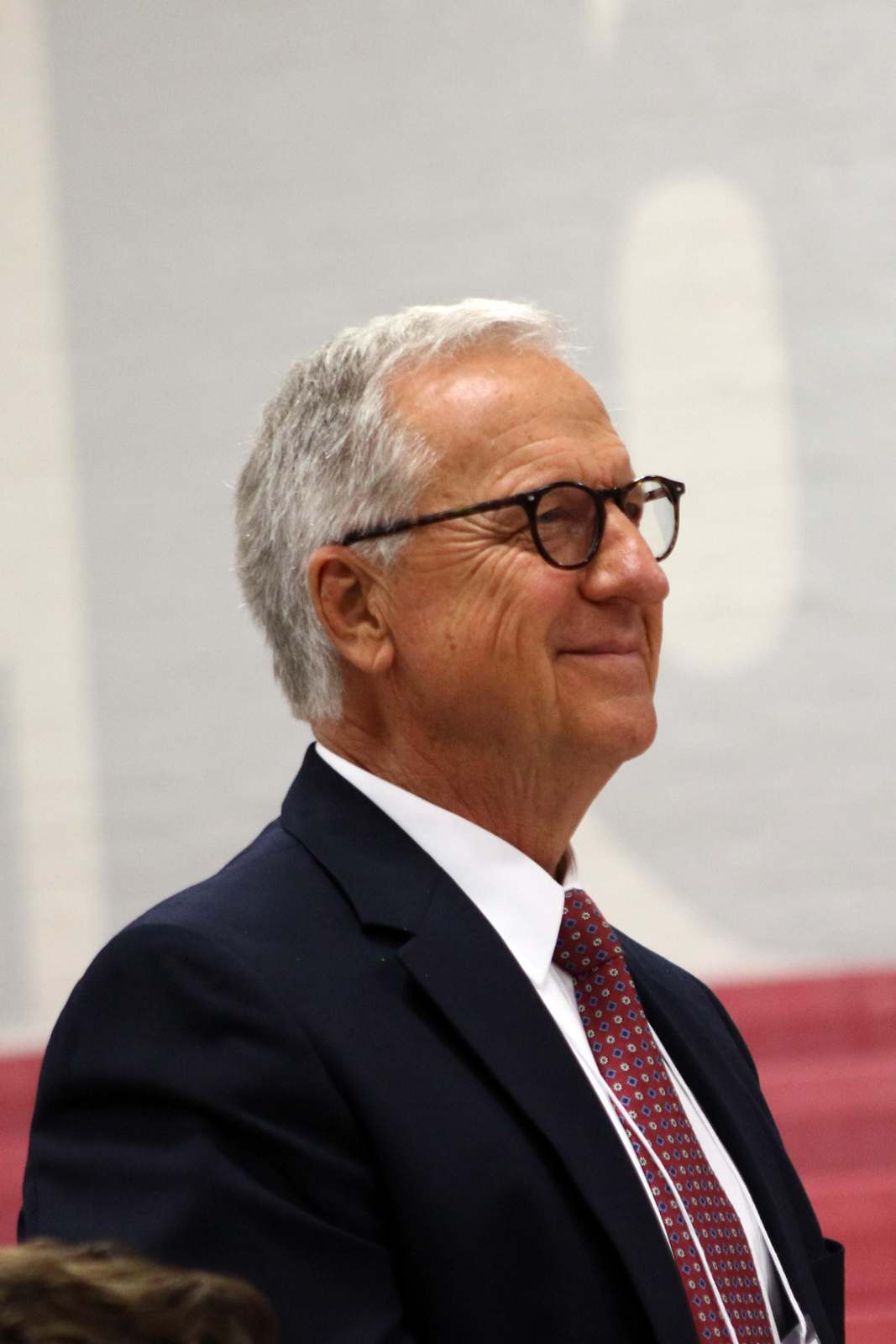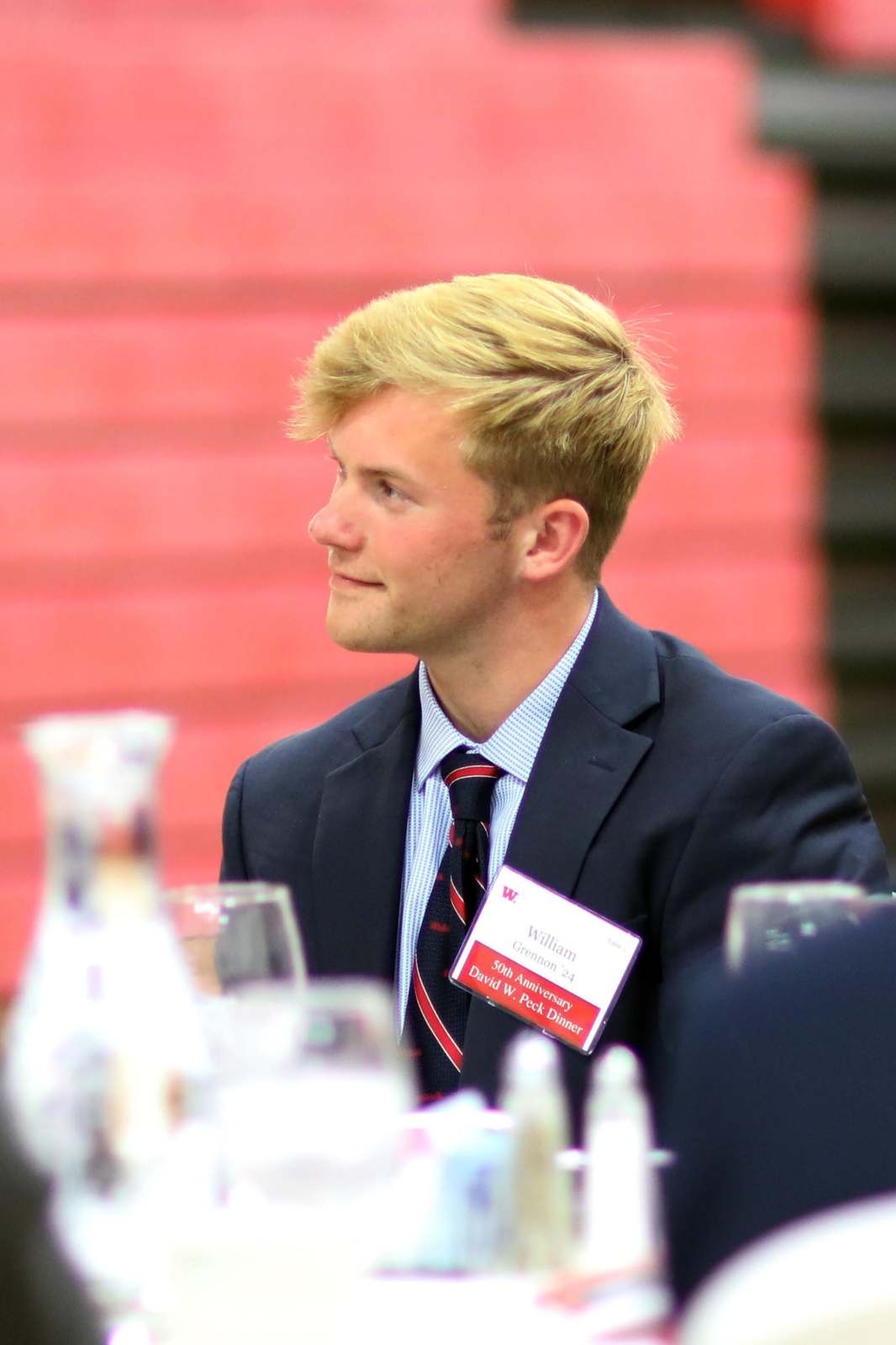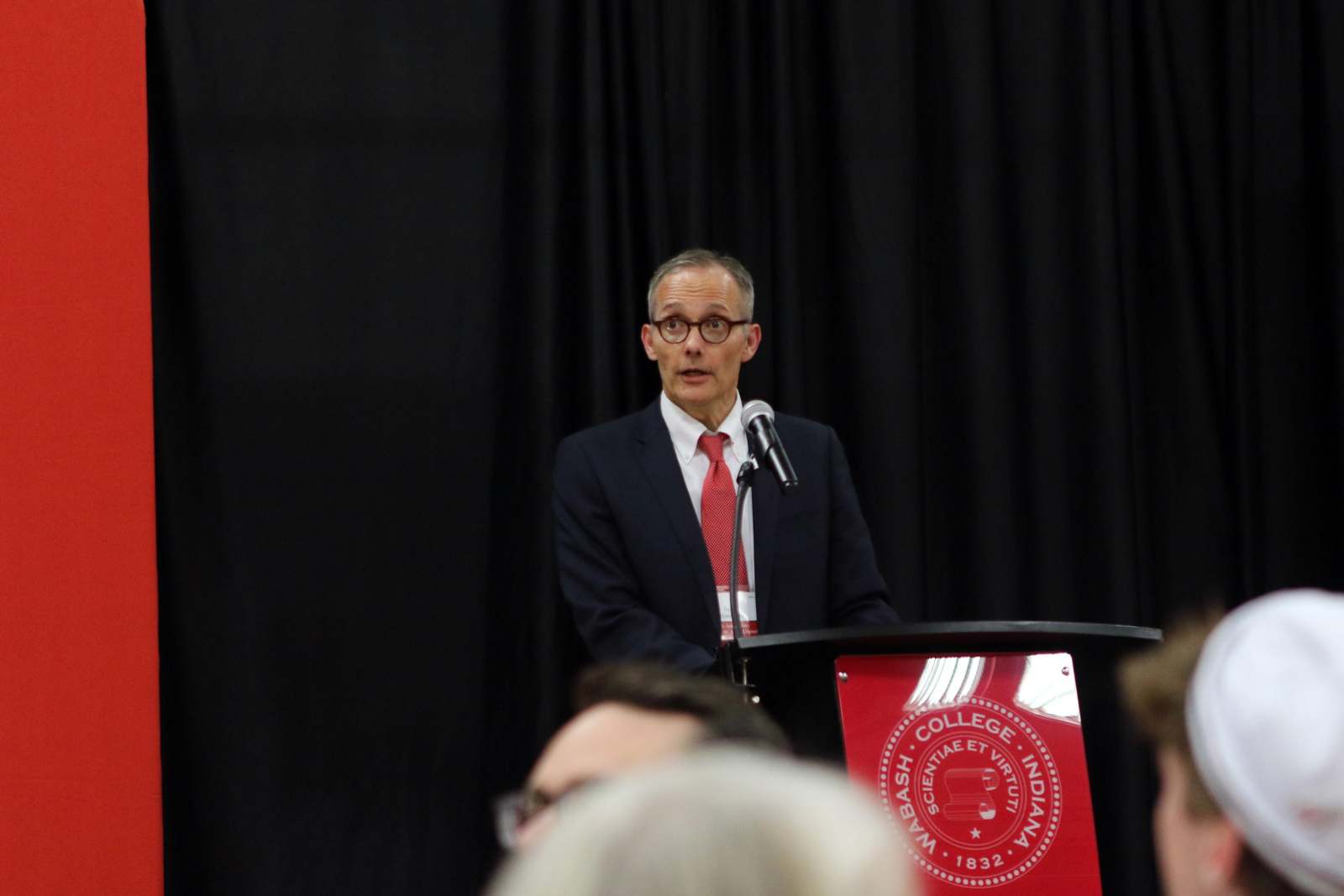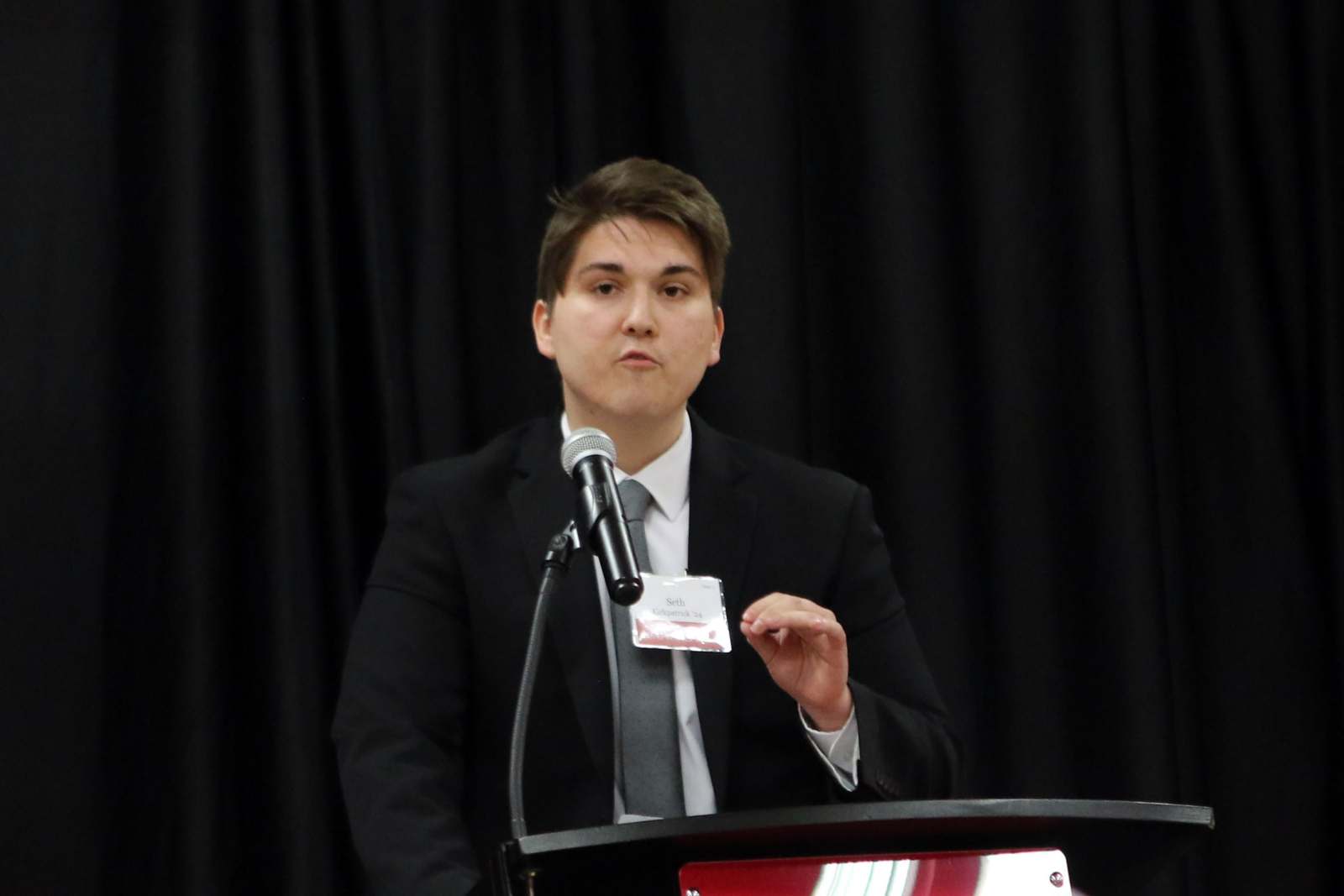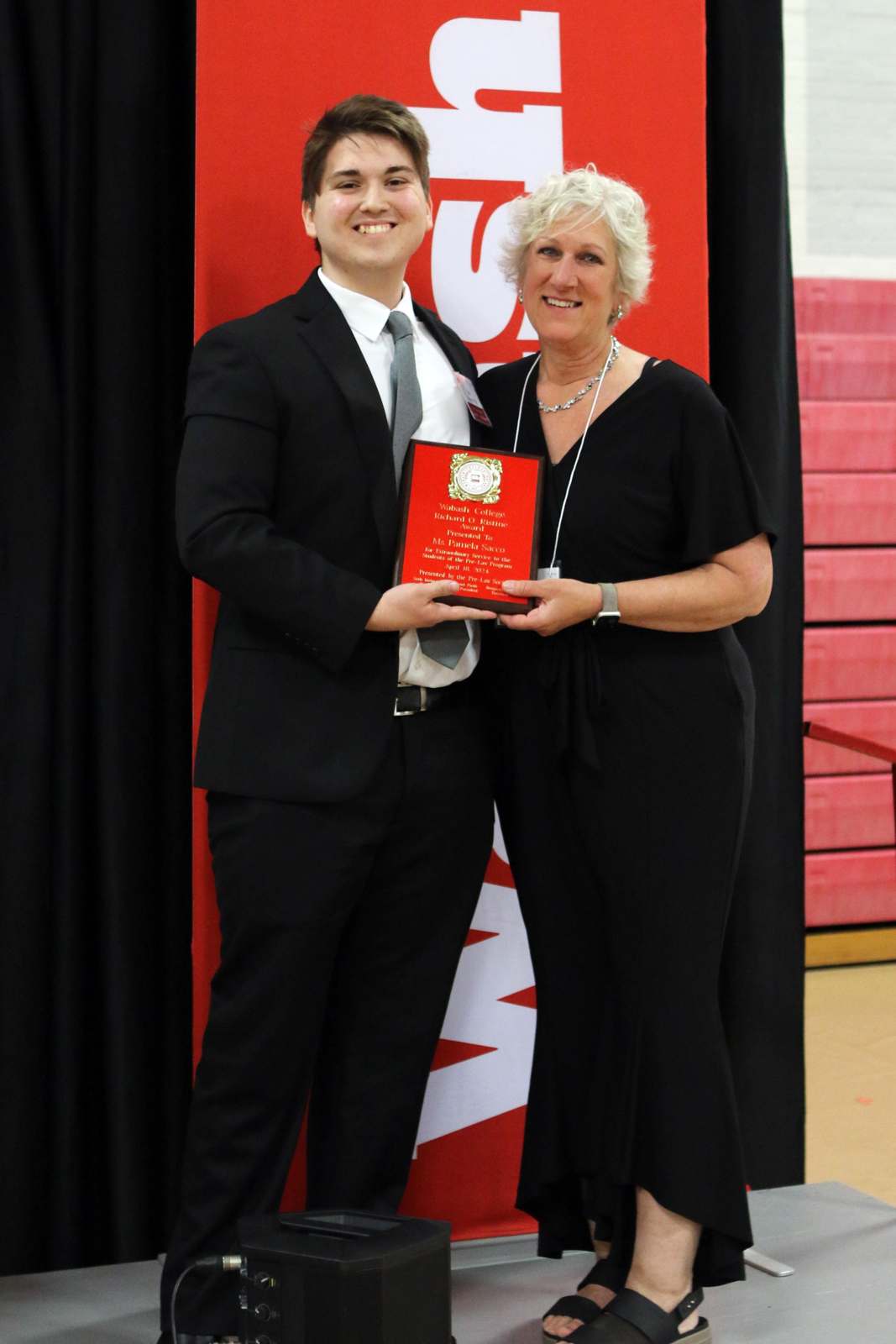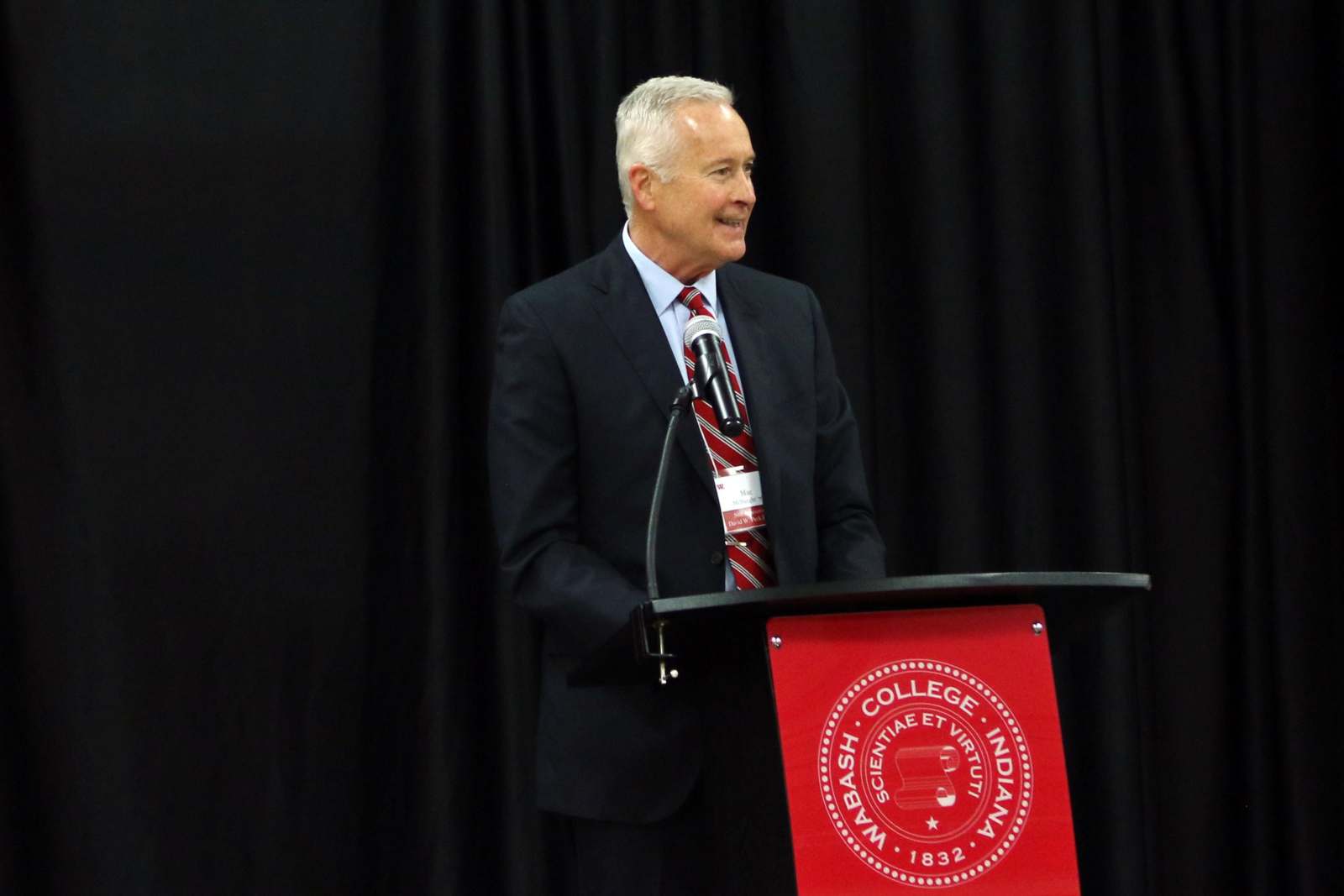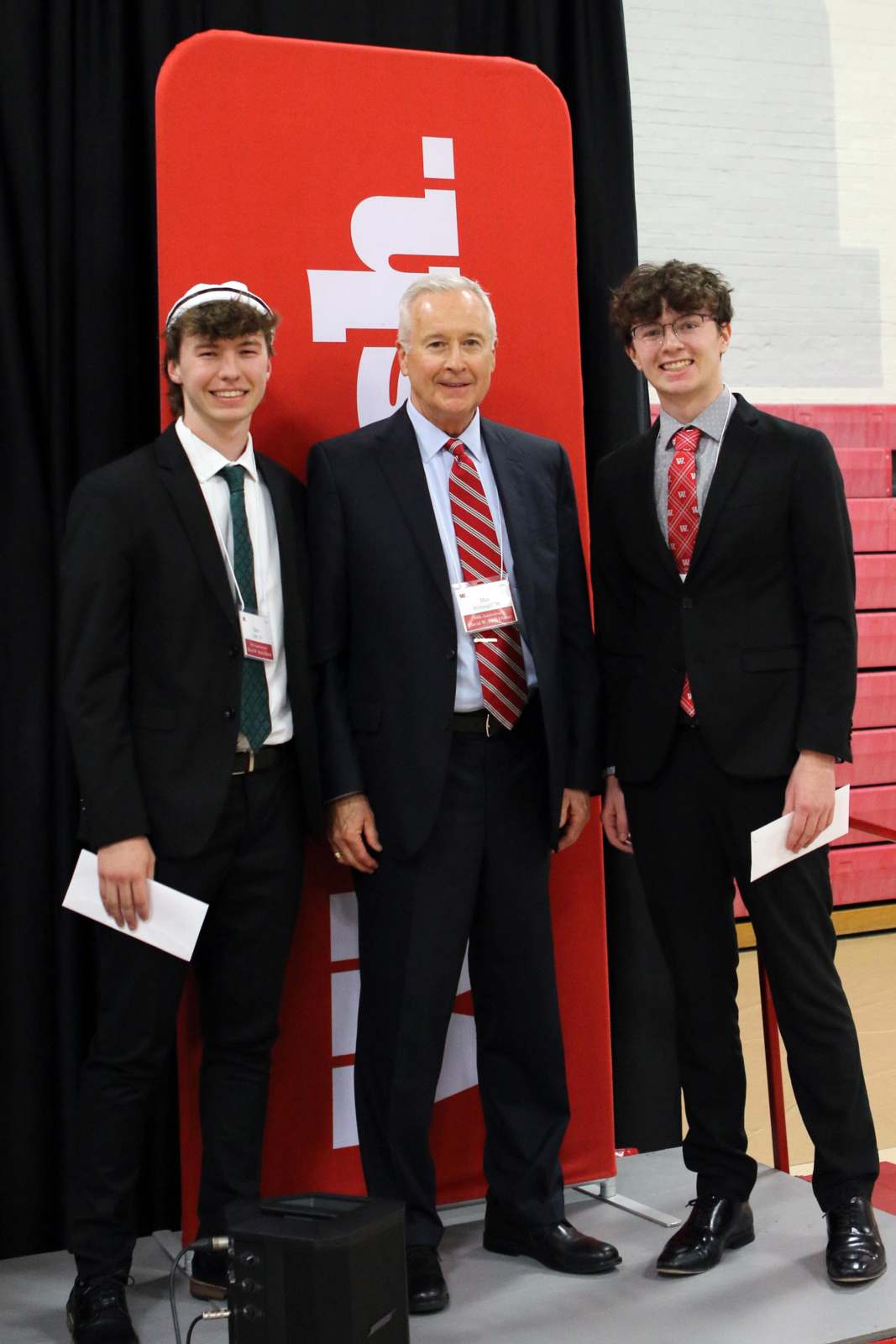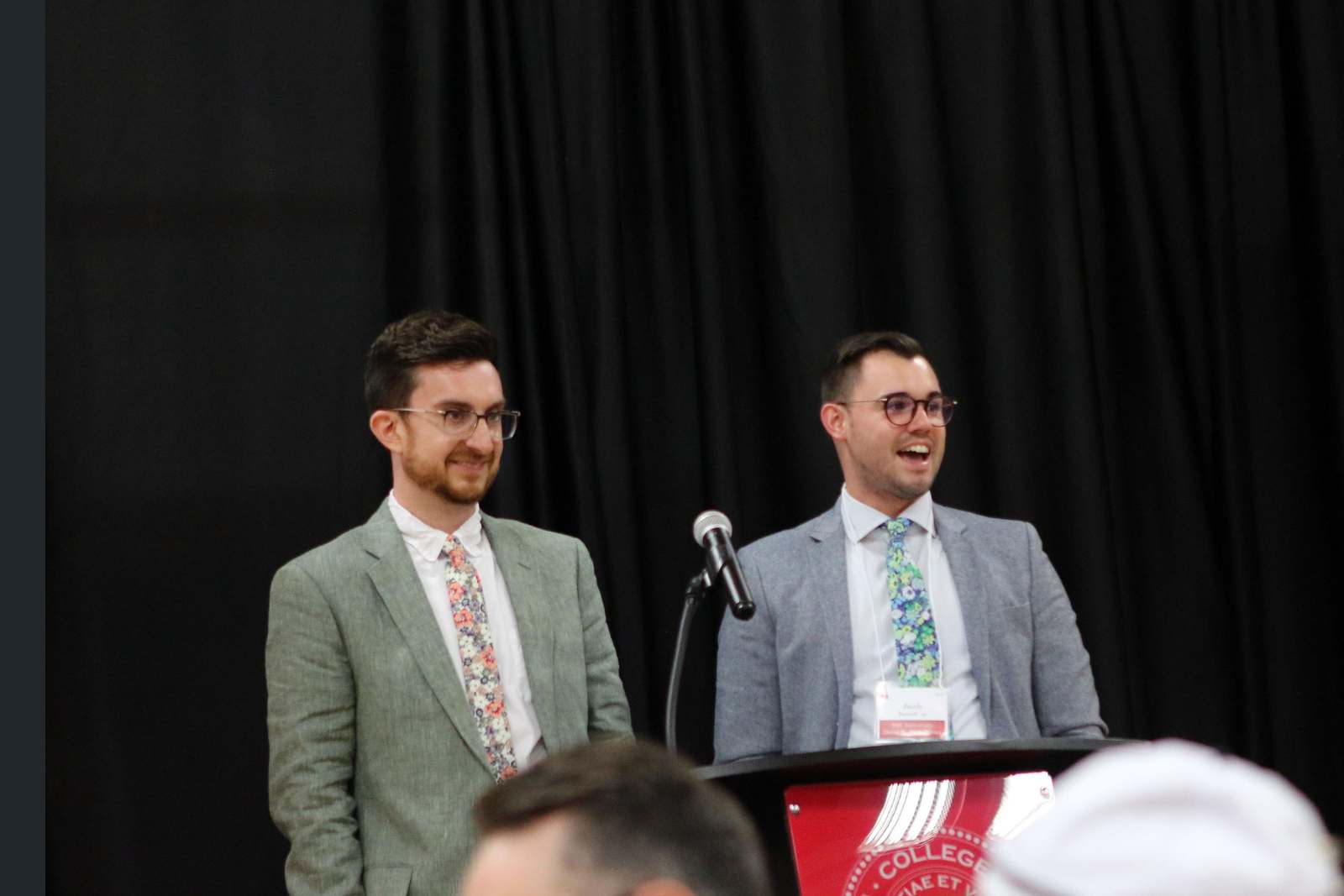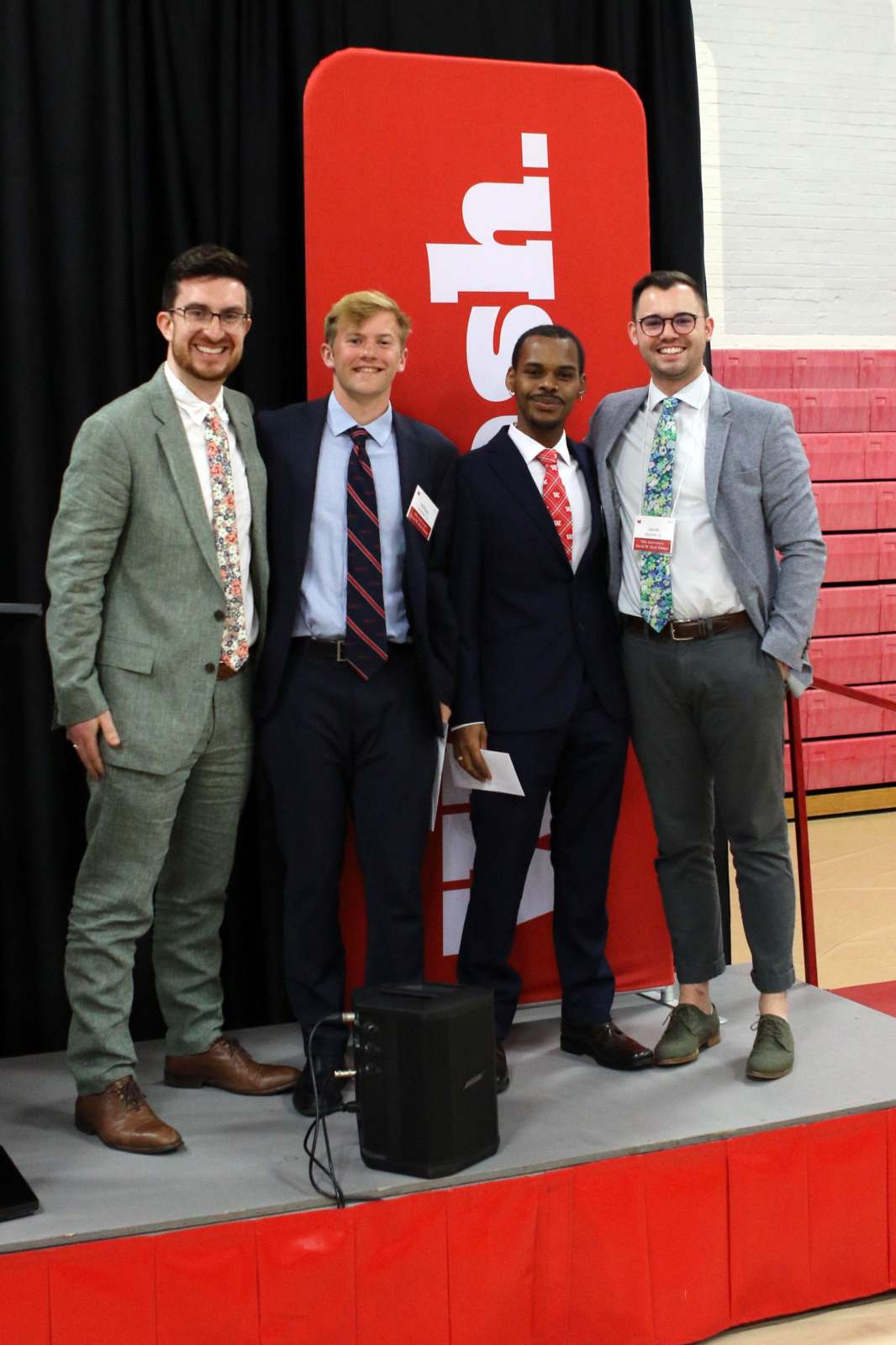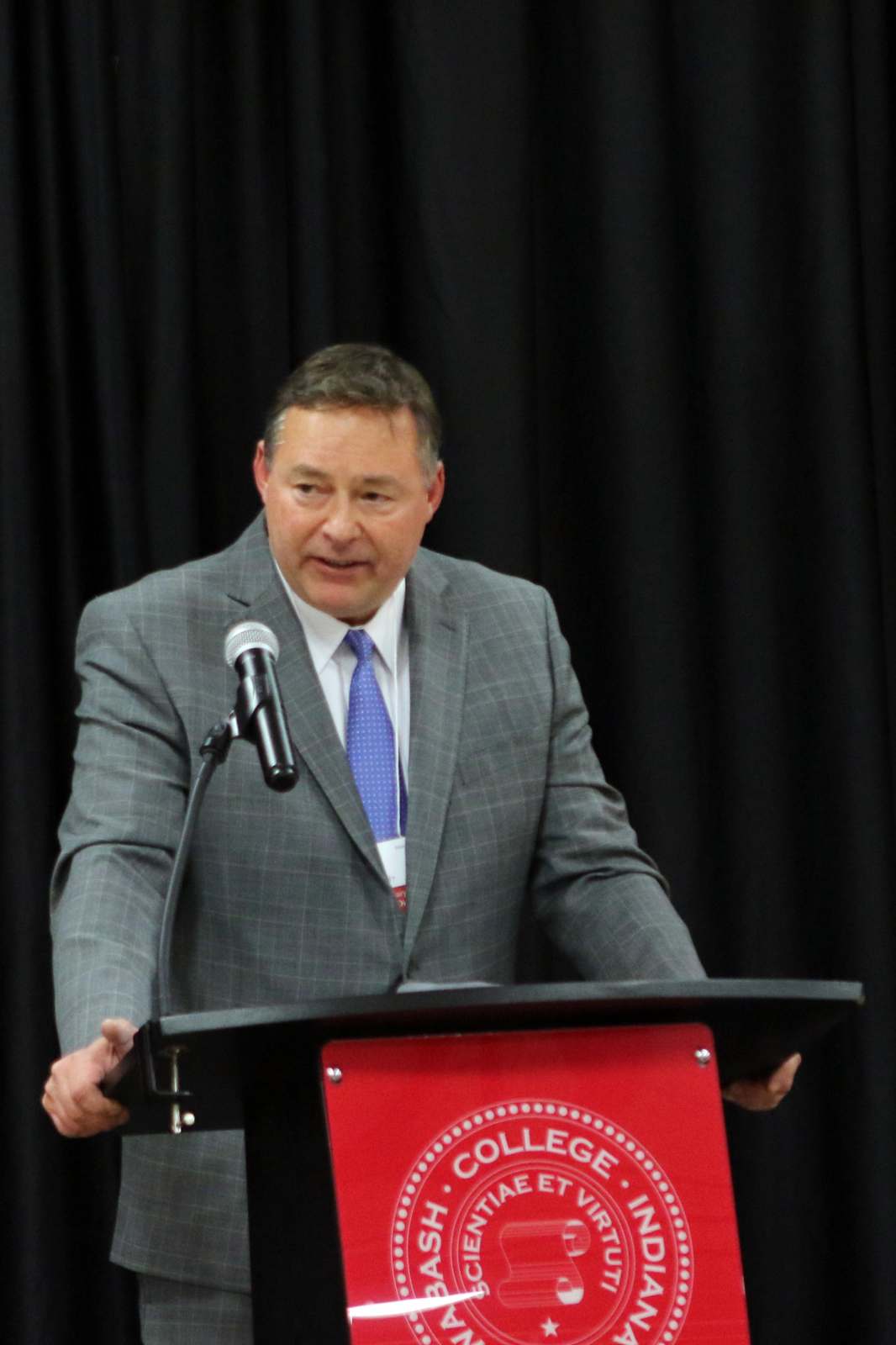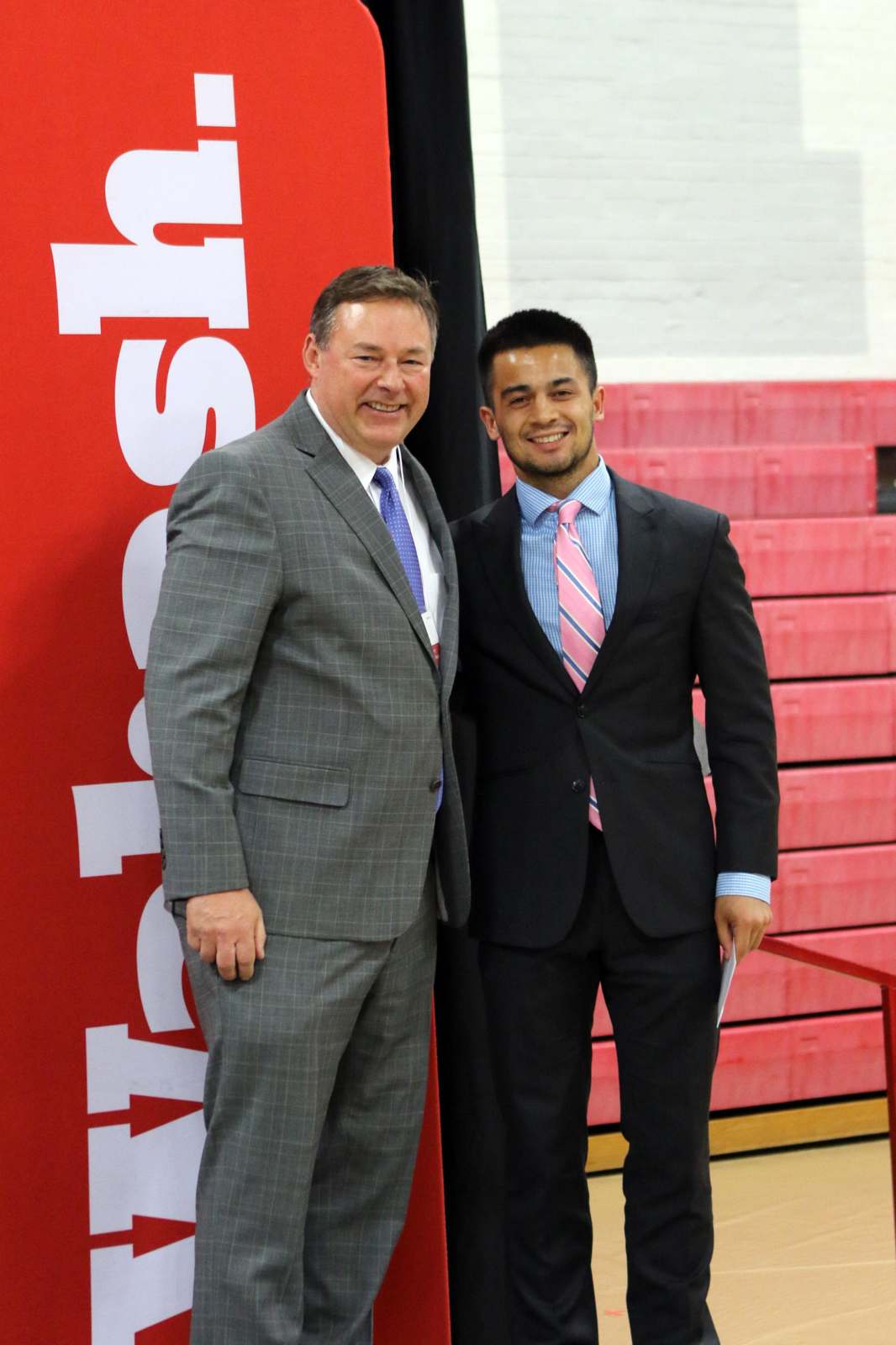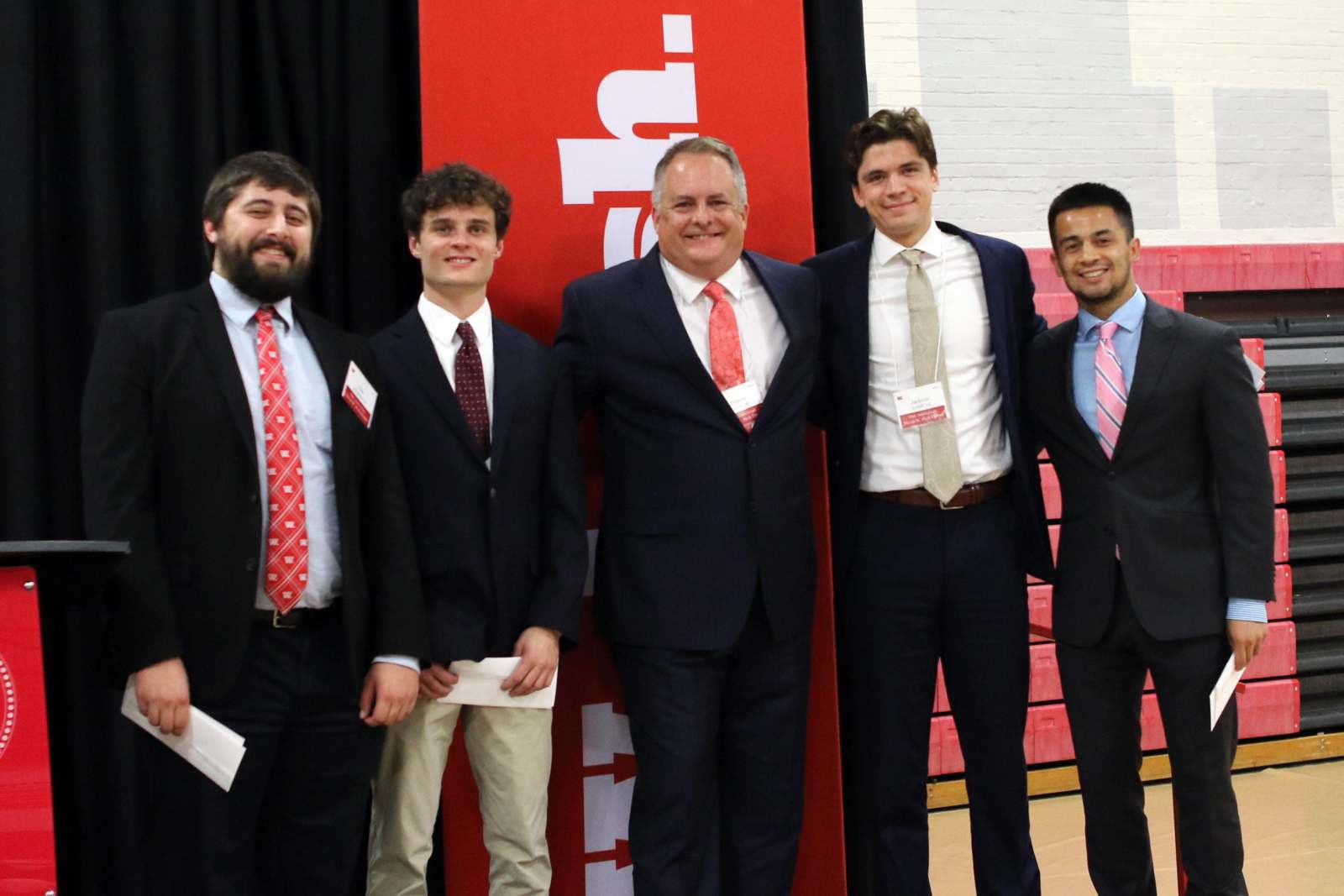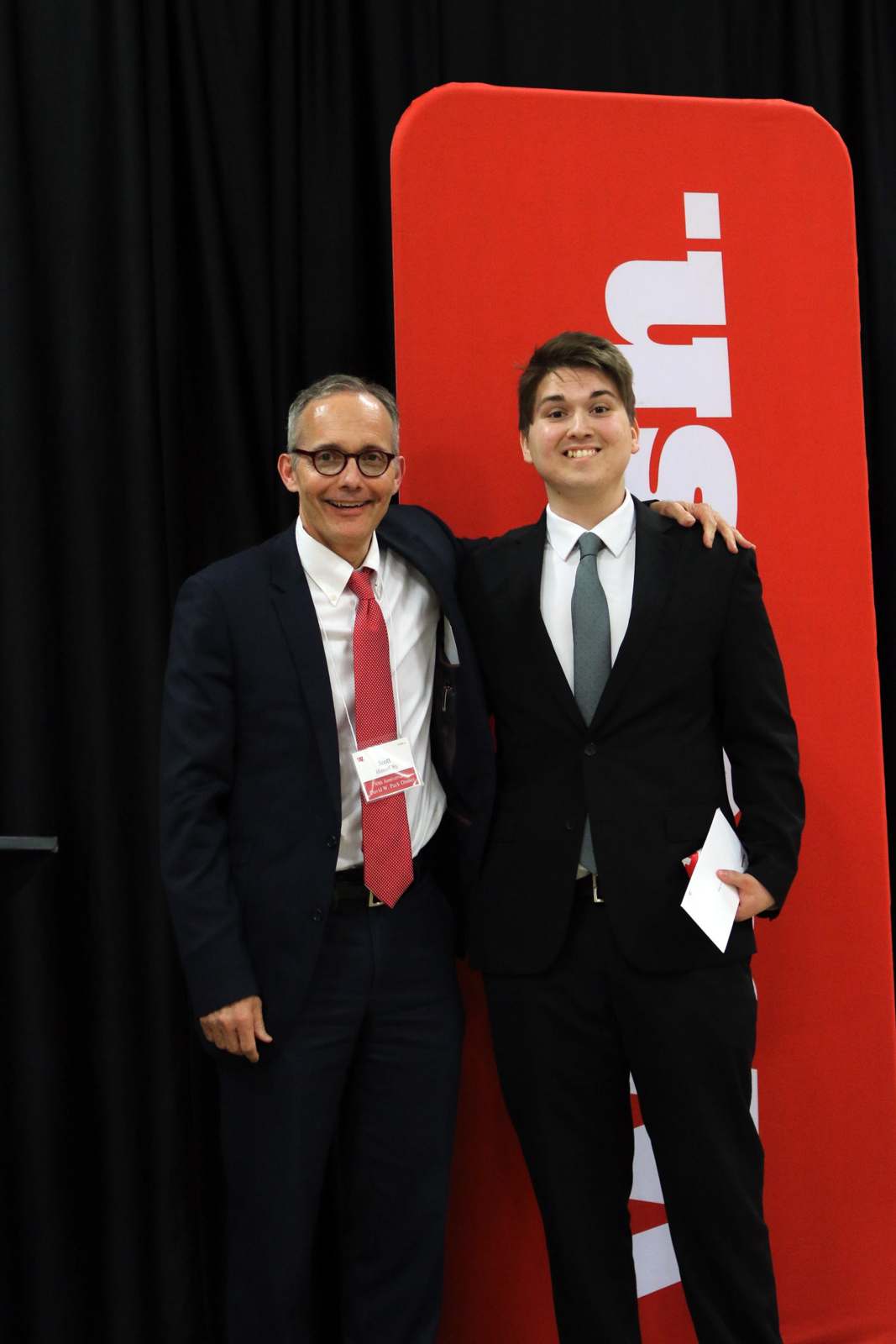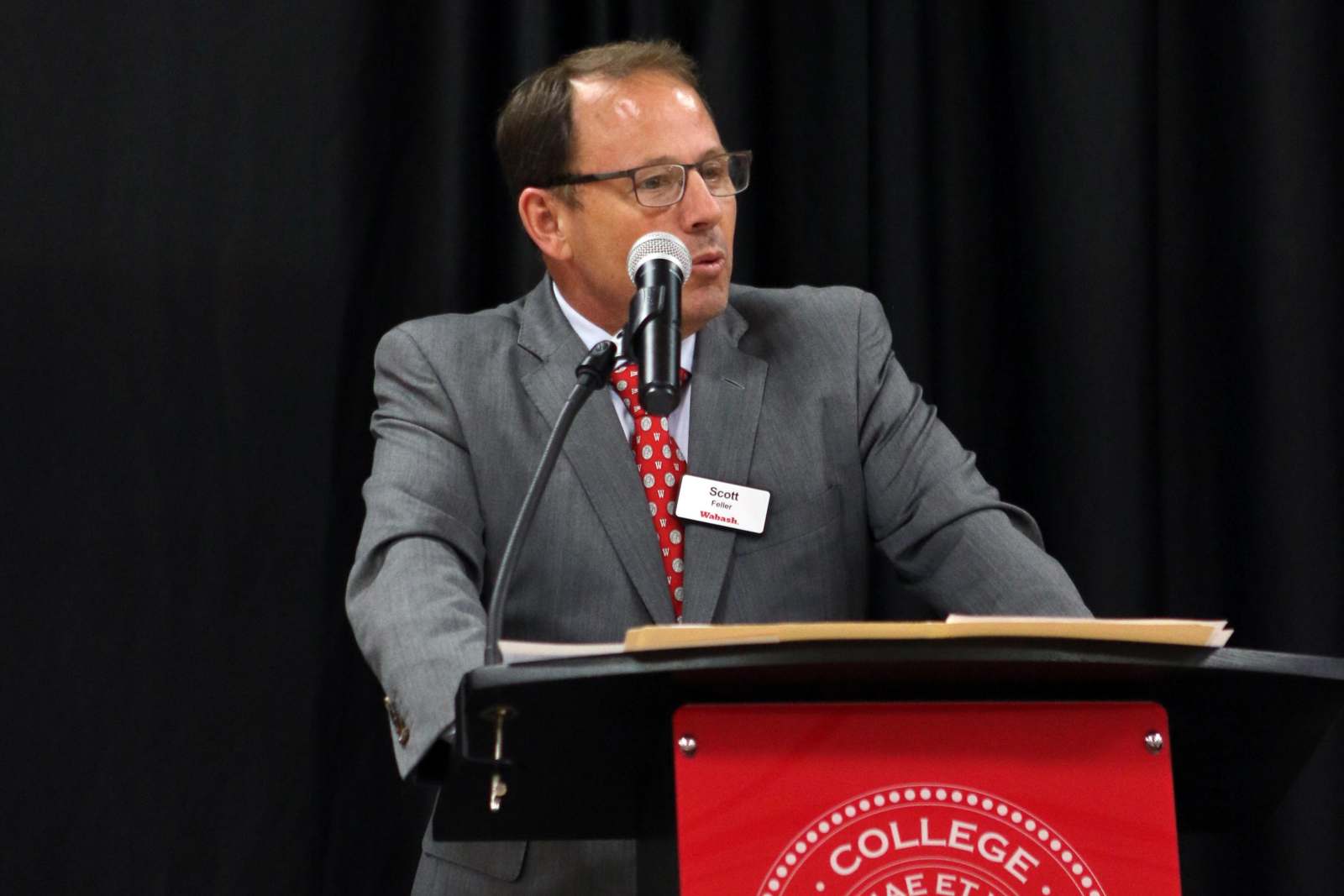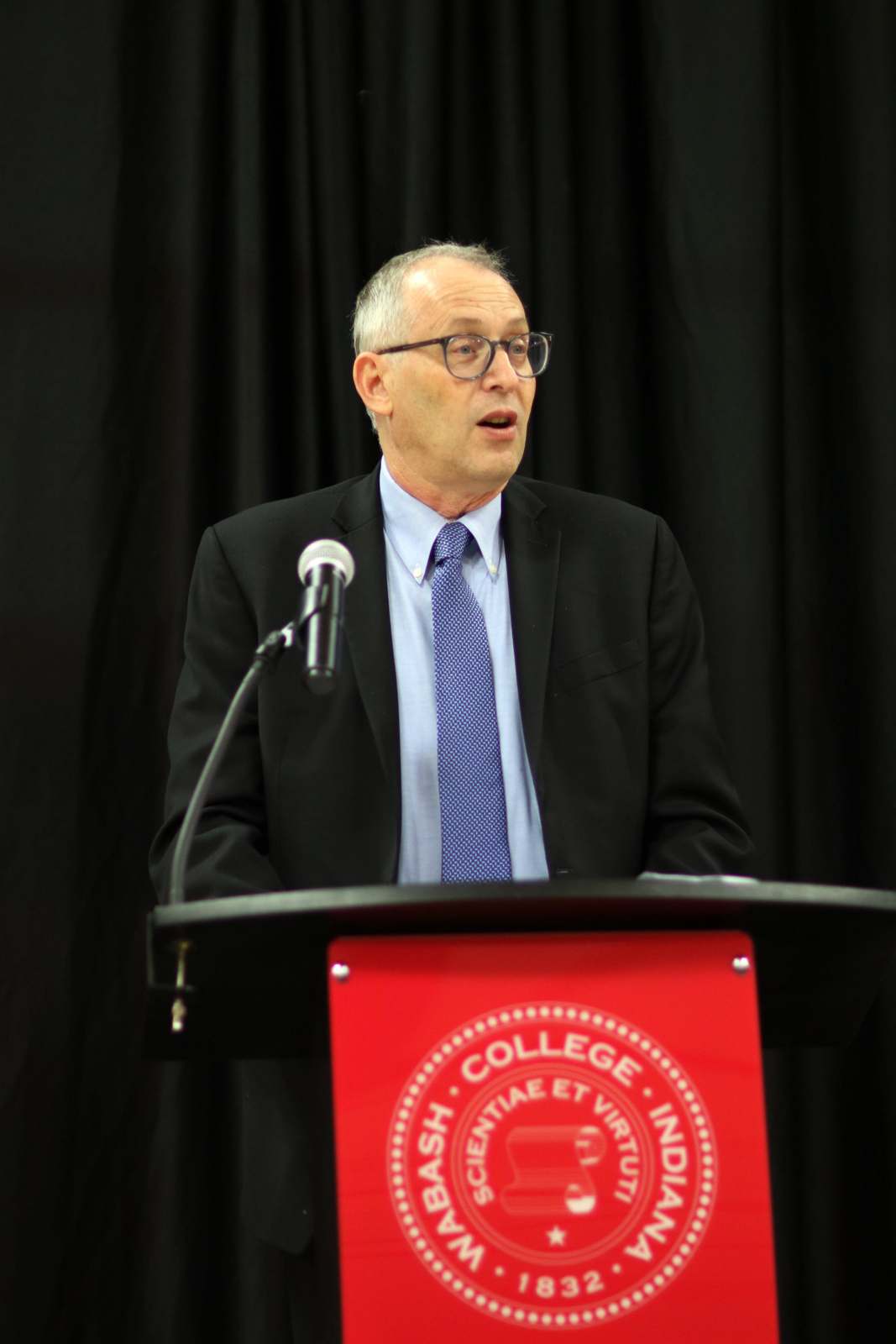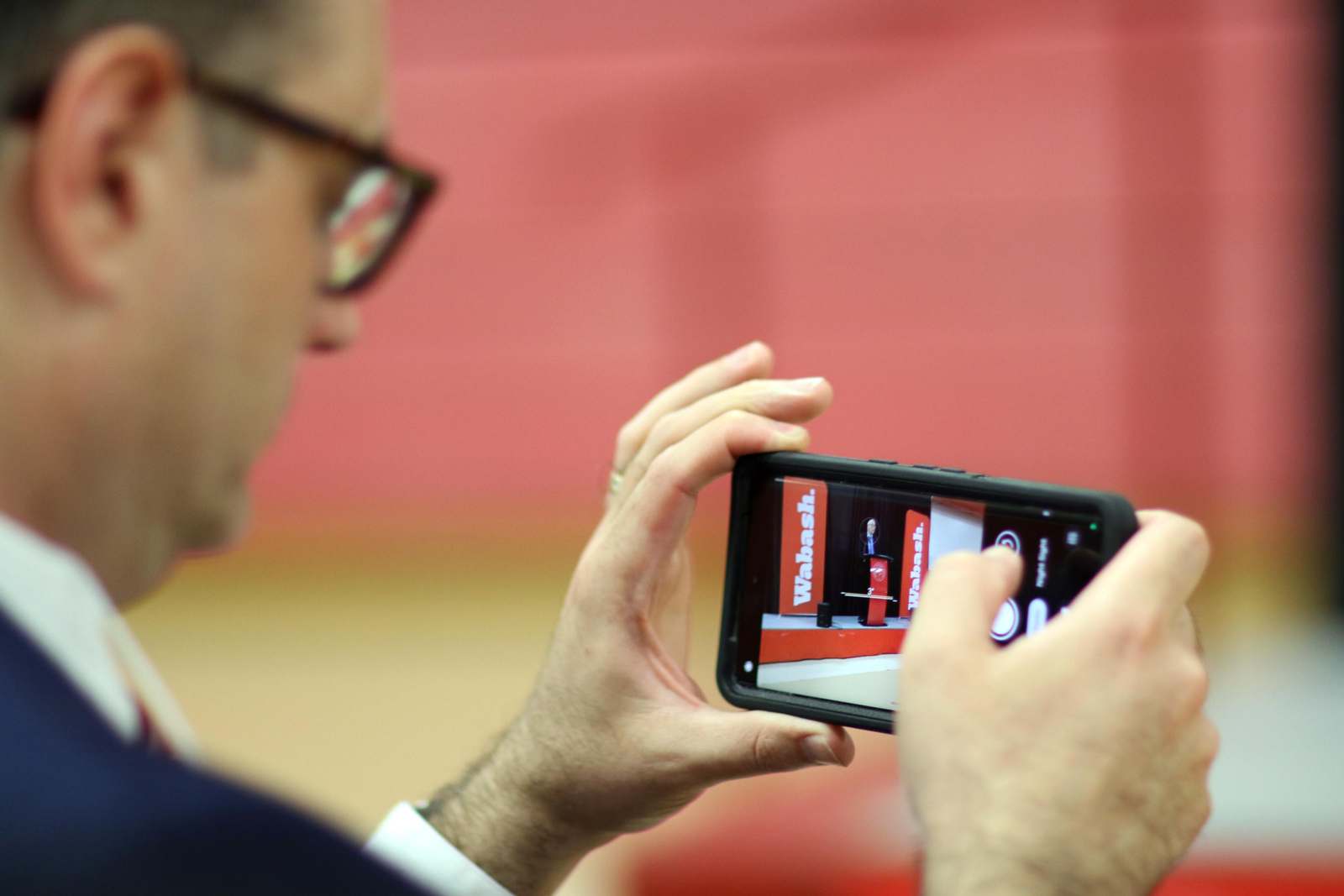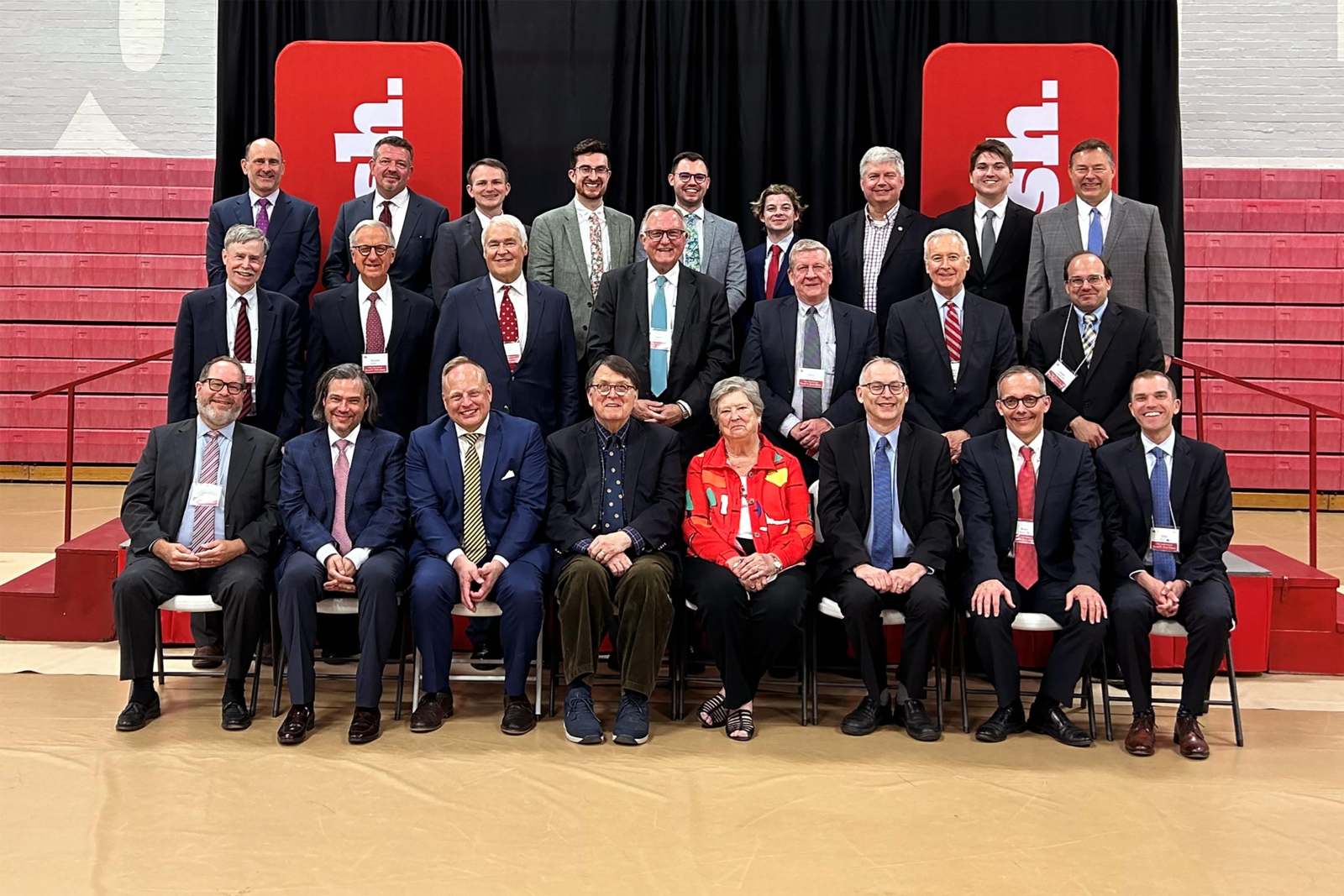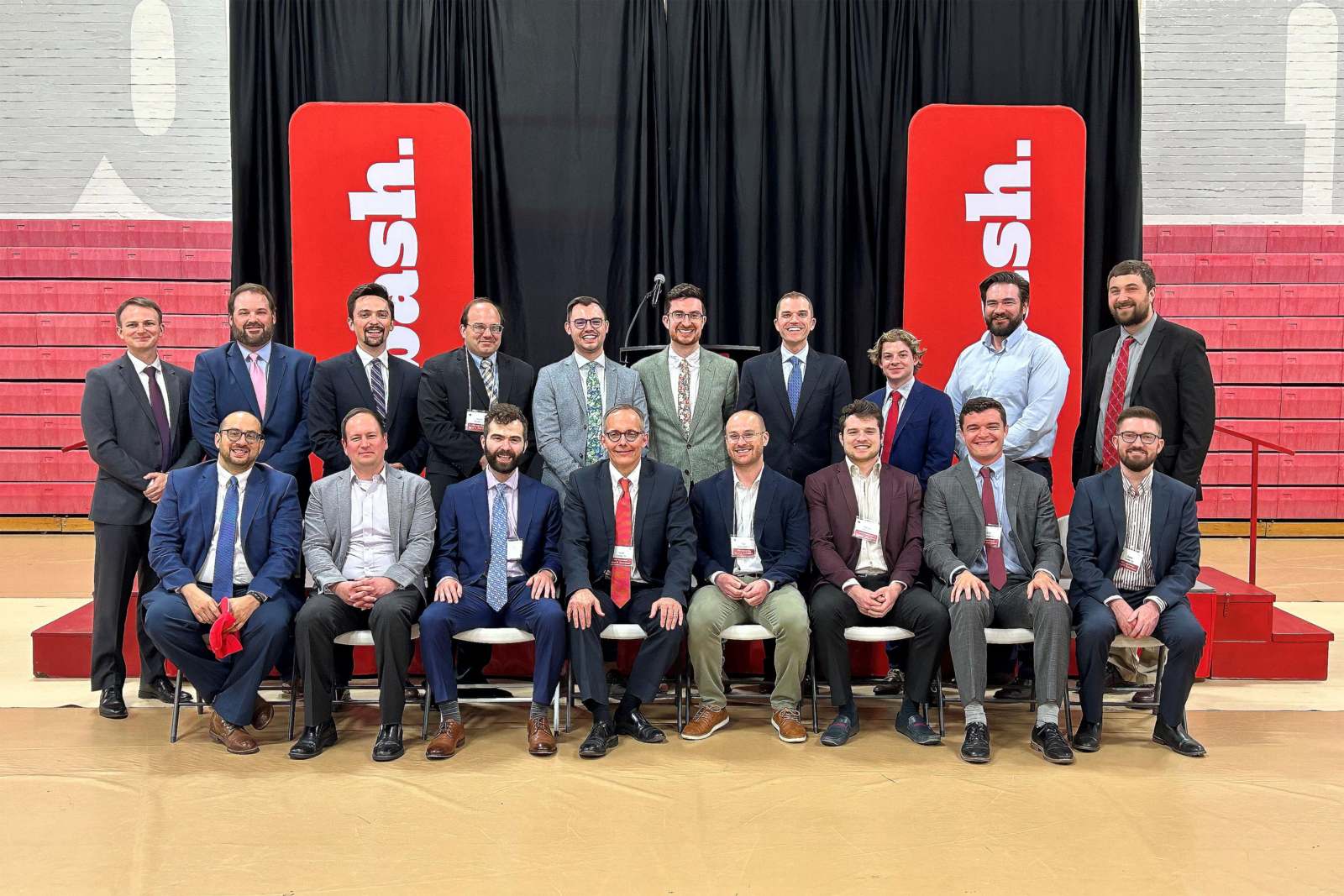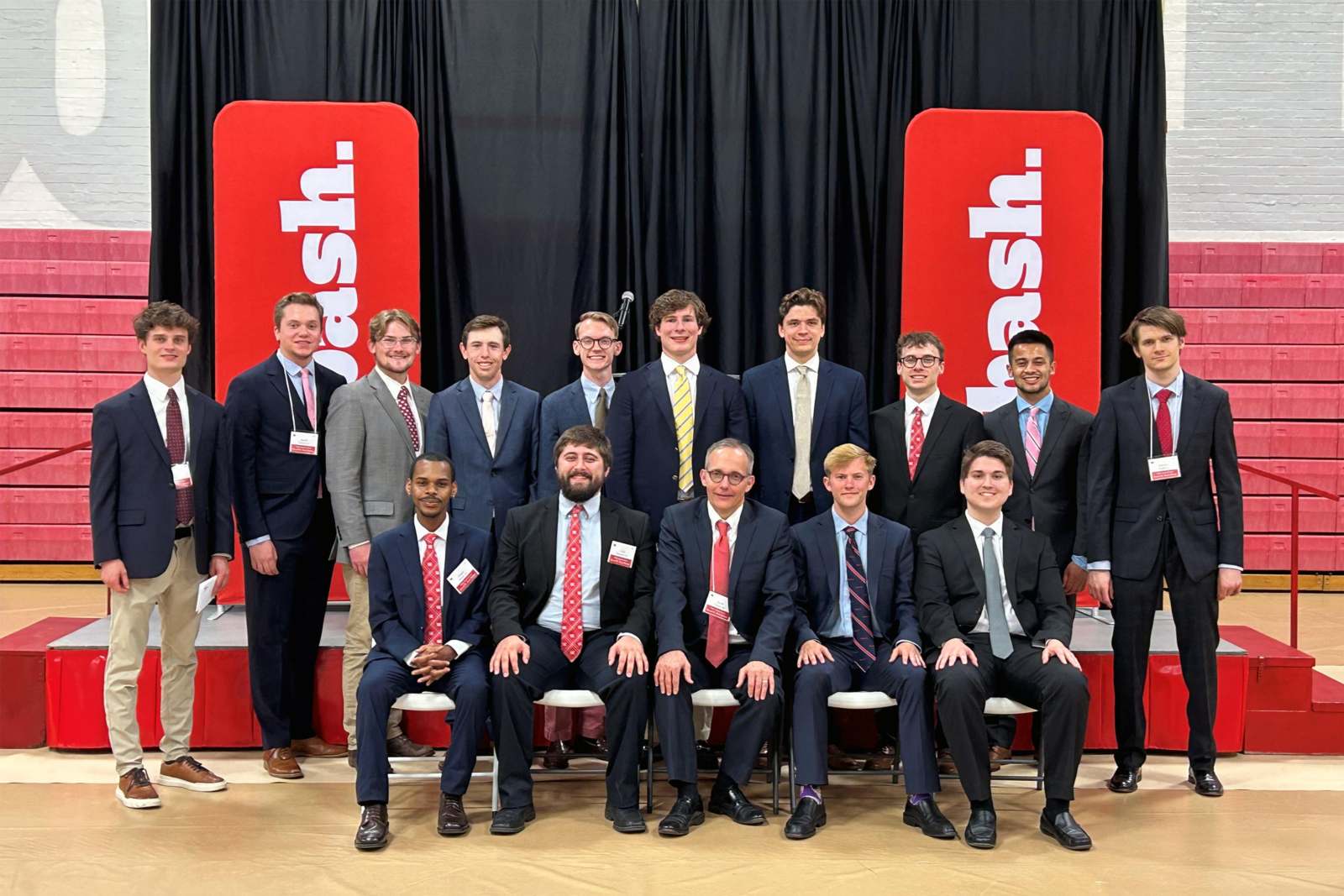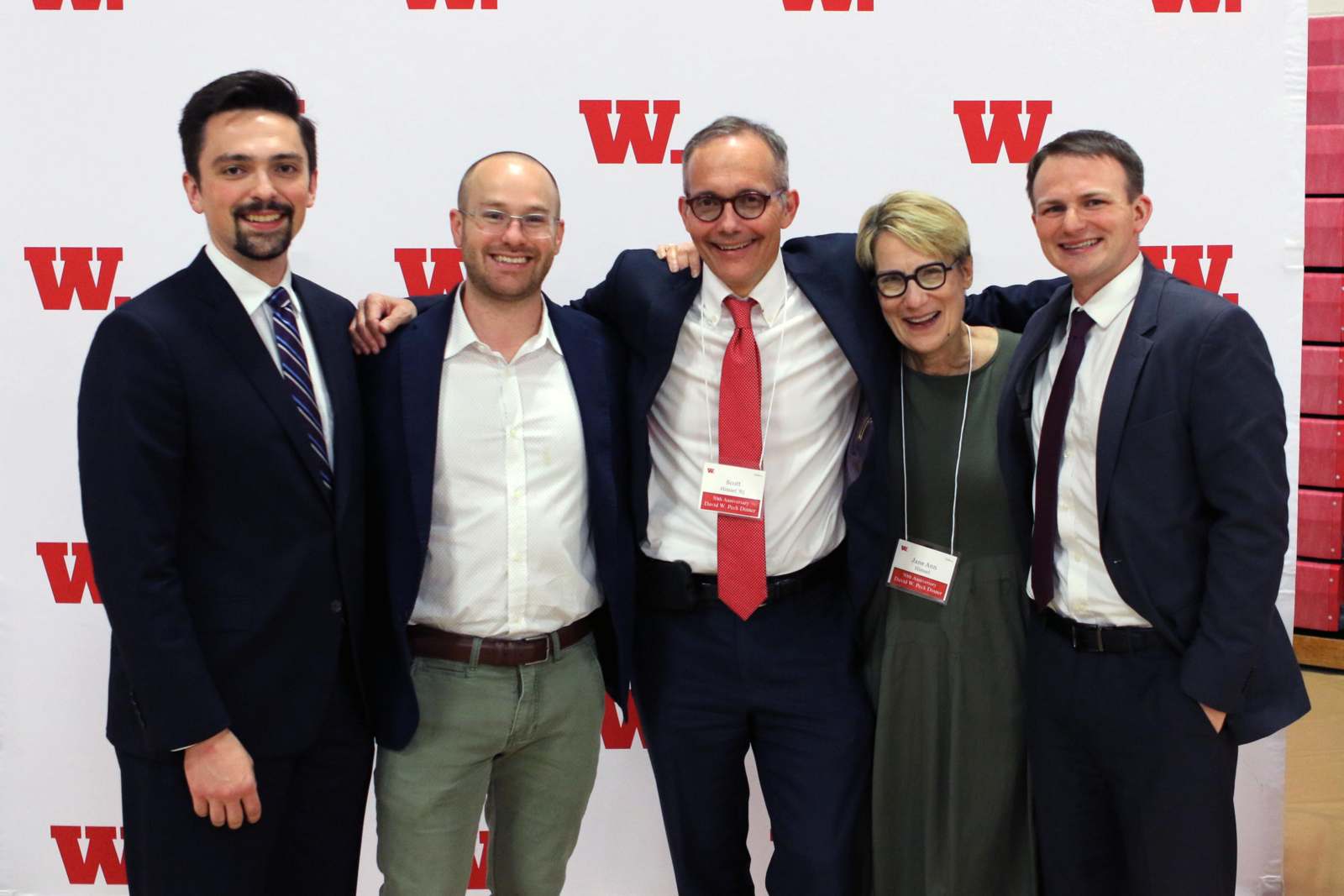50th Anniversary David W. Peck Lecture & Dinner
The Peck Lecture and Peck Dinner honors the memory of Judge David W. Peck, Wabash Class of 1922, a Harvard law graduate who founded the litigation department at Sullivan & Cromwell, served as Presiding Justice of the Appellate Division of the New York Supreme Court, and was a long-time member of the Wabash College Board of Trustees.
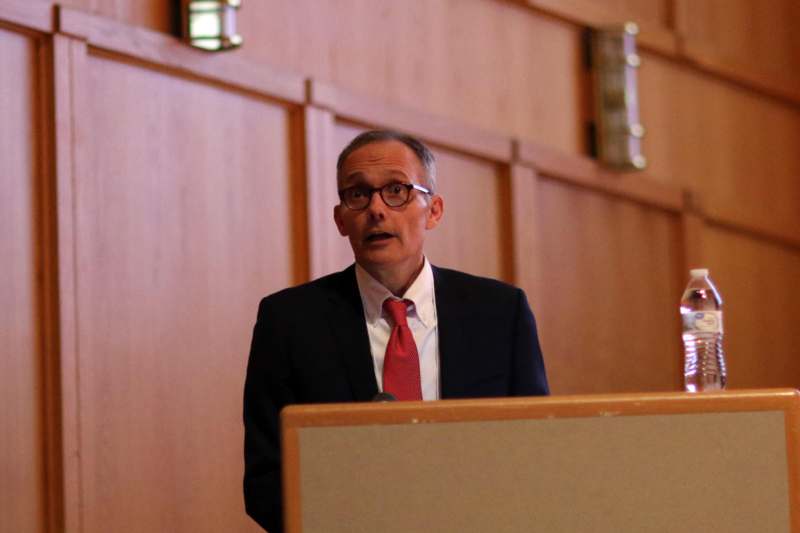
Scott Himsel '85, Associate Professor of Political Science and Wabash Pre-Law Advisor, introduced Hasen, saying,
“To quote the tail end of the Wabash mission statement, 'We live in a difficult world.' We don’t just disagree about our key policy decisions, we also disagree about how we elect the representatives who make those decisions. Indeed, public confidence in our electoral process seems to be at a low ebb. In the face of these challenges, how do we safeguard American democracy? We can think of no one better qualified to answer that question than our Peck Lecturer, Professor Richard Hasen of the UCLA Law School. He is the nation’s foremost authority on election law and the right to vote…Above all else, he is a champion of the right to vote. Indeed, his latest book from Princeton University Press, A Real Right to Vote begins with this dedication: ‘For the American people, who have always deserved, and still deserve, a real right to vote.’”
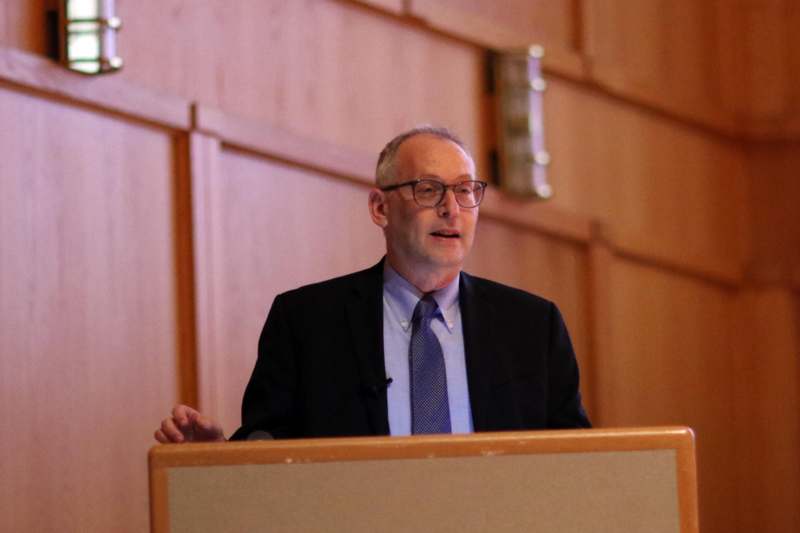
Hasen said, “You may remember the disputed 2000 election that ended in the Supreme Court decision Bush v. Gore. Well, in that decision, the Supreme Court said voters do not have the right to vote for President of the United States. That right belongs to the states through their legislatures. Even though every state has given voters the right to vote for president to help to choose those states electors, the state could take it back at any time for future elections. Our Constitution does not contain an affirmative right to vote even for president. Think about the original Constitution, senators, chosen by legislatures; the president chosen by legislatures; the house. People who can vote only were allowed to vote under state law. Our constitution is not like -- look at Canada, Germany, or France -- look at most advanced democracies around the world. What they have in their constitution is a statement like every citizen above the age of 18, shall have the right to vote. We don't have that.”
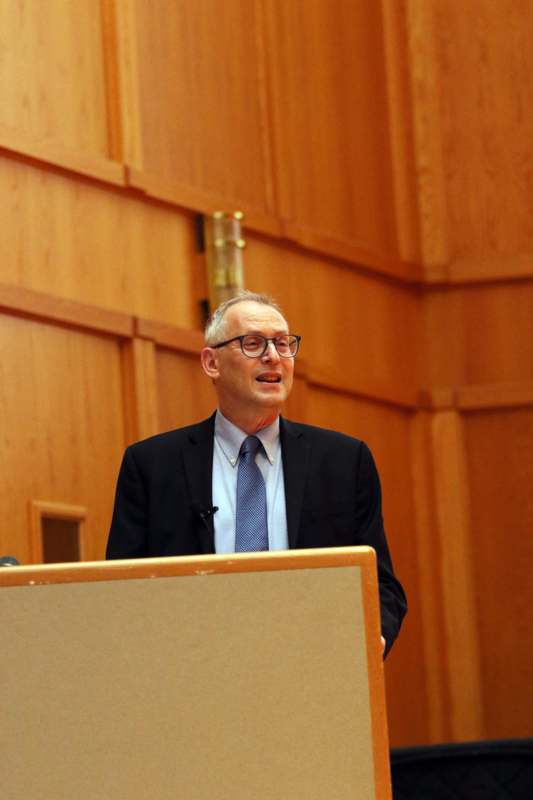
Hasen said, “We’ve got a tiny, unique set of problems in this country. Parts of those problems stem from the fact that our Constitution does not create a right to vote. Let me talk now about the three reasons why I think we need and affirm the right to vote in the Constitution. The first one is just the simple idea of political equality…Most people living in the continental United States and Alaska and Hawaii, they have the right to vote. But we allow each state, and in some cases, each locality, to decide what the rules are going to be, and how hard is it going to be for you to register or to vote.”
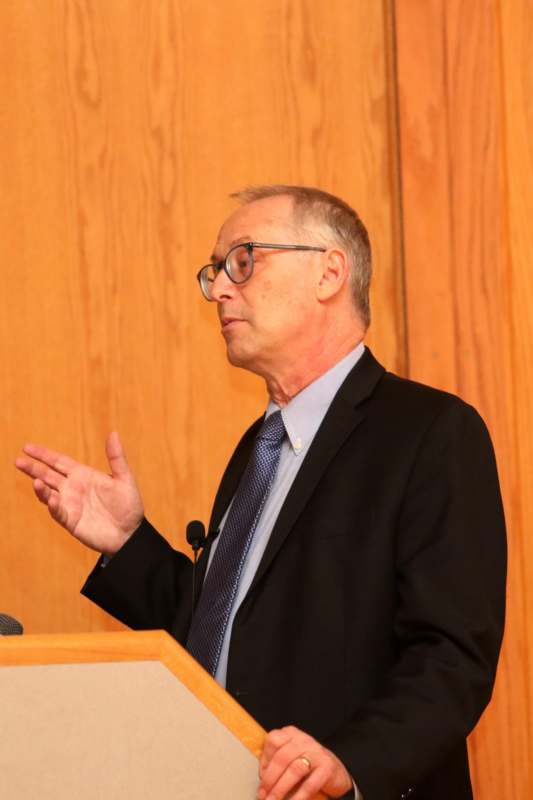
Hasen continued, “The first reason to have a right to vote protected in the Constitution is the idea that we’re all political equals--if we’re citizens, we’re adults, we’re residents, we’re non-felons, I can’t impose a literacy test on you, can’t tell you that you have to own property--but we don’t have those kinds of rules.”
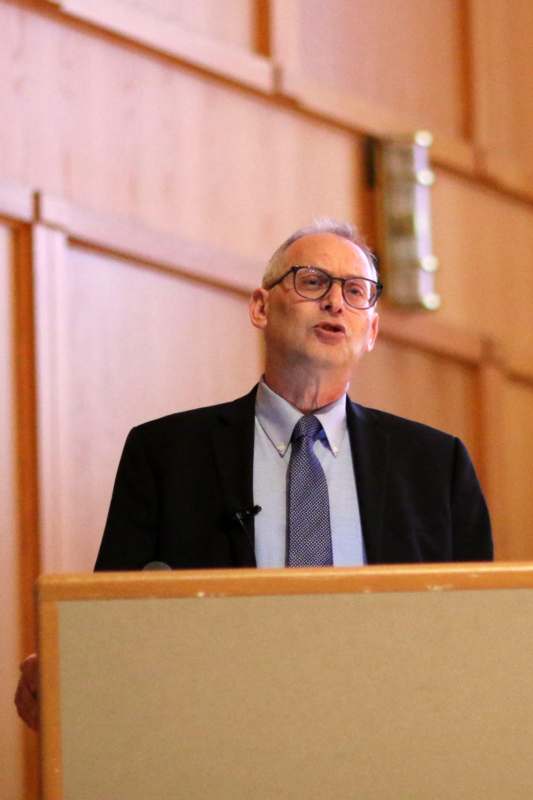
He continued, “The second reason why we need an affirmative right to vote in the Constitution is that we want to stop all of this fighting over our elections. I’ve been tracking the amount of election litigation since 1996 and the amount of election litigation has nearly tripled. If you compare the period before Bush v. Gore to the period after, we hit the most election lawsuits ever, at least since 1986, in the 2020 election.”
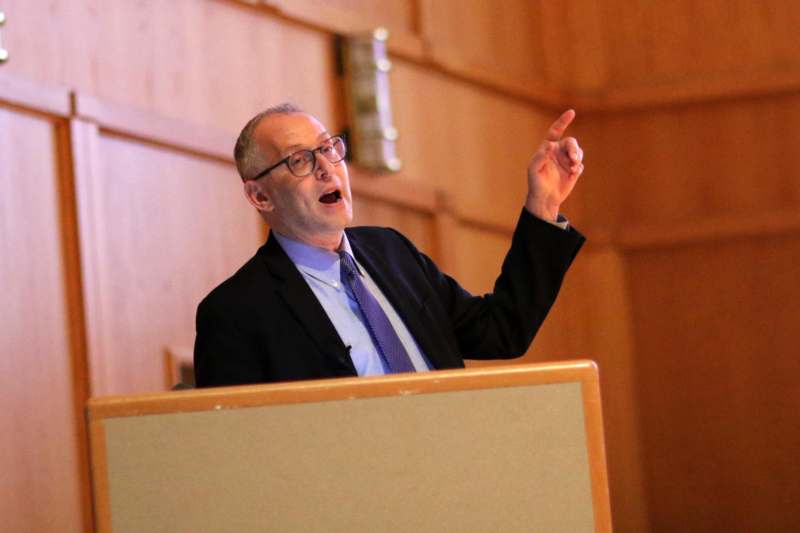
Hasen said, “The third reason that we need a right to vote in the Constitution is to protect against election subversion or stealing lessons. You may remember that after the 2020 election, there was an attempt to try to get some states to change their electoral college allocation. Votes that were going to go to Biden were going to go to Trump based on false claims that there were there was massive election fraud claims, but scores of courts rejected and then lots of investigations found those were wholly without merit. How would it even be possible for a state legislature to try to take the power away from the people to choose the electors for president from their state? Our Constitution doesn’t affirmatively protect that right to vote. I will say we can keep the Electoral College system the same that in each state, it’s the voters rather than anyone else who decides how those Electoral College votes should be allocated. These three things, politically equality, lowering the temperature litigation, and making it harder to mess with elections. These are three reasons why we should have a right to vote in the Constitution.”
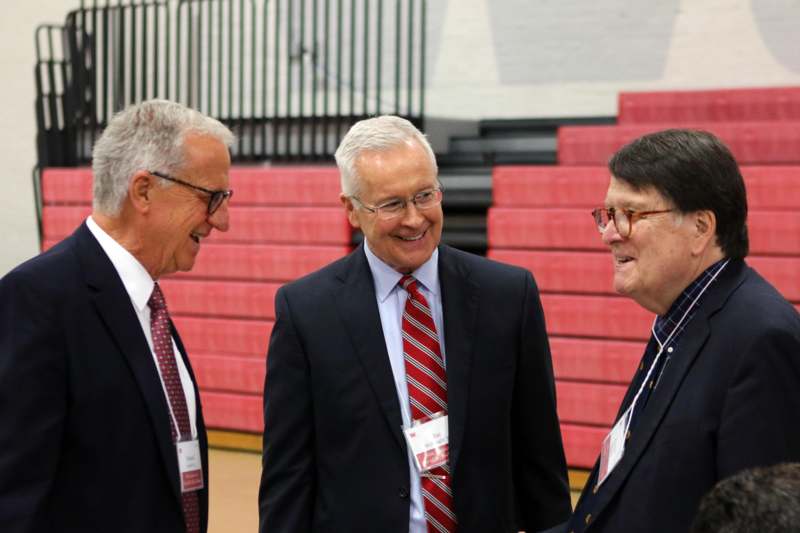
Eckerle (left), Mac McNaught '76 (center), and former Indiana Chief Justice Randall Shepard enjoy a moment together prior to the awards ceremony. Each man has a Peck Medal to his credit, Eckerle (1974) and McNaught (1976) erned Junior Peck Medals, while Shepard received the Senior Peck Medal in 2002.
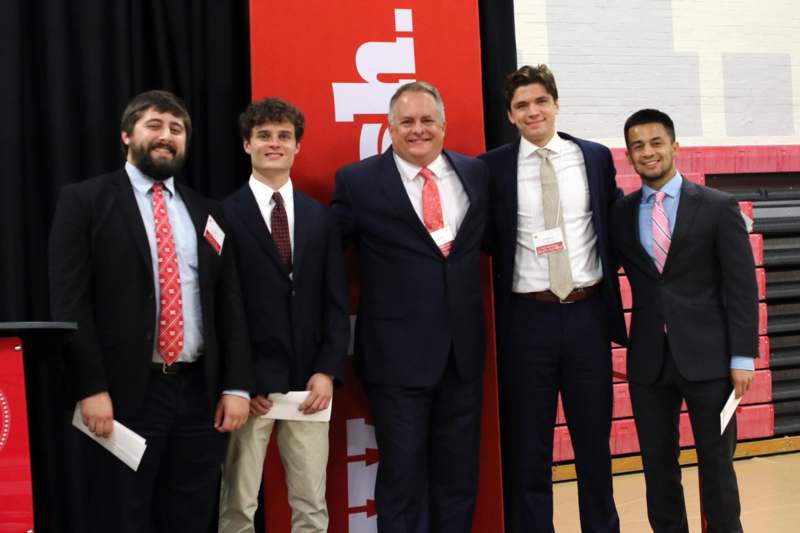
The James E. Bingham Award was established by members of Dentons Bingham Greenebaum LLP in memory of James E. Bingham [W1911]. This award is given annually to one or more distinguished seniors who plan to enroll in law school. 2024 winners of the Bingham Award are (from left) Cole Bergman '24, Samuel Hooton '24, presenter Andrew Rankin '98, Jackson Grabill '24, and Thomas Joven '24.
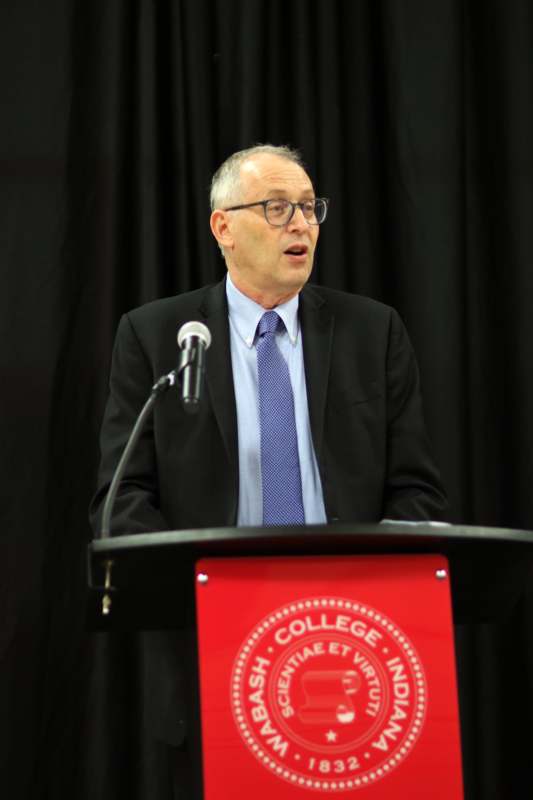
Hasen said during his Peck Lecture, “We’ve lost our muscle memory. We’ve forgotten how to amend the Constitution. We need to think about reinvigorating that as a way of trying to deal with our problems. The issue is that amending the Constitution is very, very difficult. You need to get two thirds of each house of Congress to agree on language, and then three quarters of the states have to agree. That’s a really big, really big burden.”

